Tiffany Chung is globally noted for her interdisciplinary practice that enquires into a complex framework of social, political, economic, and environmental processes, at times entwined in landscape archaeology and historical ecology. Unpacking conflict, geopolitical partitioning, spatial transformation, environmental crisis, and forced migration across time and terrain, Chung analyzes and materializes researched findings into hand-drawn and embroidered cartographic works and mixed media installations consisting of drawings, paintings, photographs, sculptures, and videos. Chung’s work strives to create interventions into the narrative produced through statecraft or is dominant in the public sphere with people’s memories and lived experiences.
Her mid-career retrospective, Tiffany Chung: indelible traces, is presented at the Art, Design & Architecture Museum at the University of California, Santa Barbara, before traveling to the Weisman Art Museum at the University of Minnesota (Fall 2026) and the Blaffer Art Museum at the University of Houston (Summer 2027). Chung has exhibited at museums and biennials worldwide including The Museum of Modern Art, NY (USA); Smithsonian American Art Museum, DC (USA); Getty Museum, CA, (USA); Hammer Museum, CA (USA); Dallas Museum of Art, TX (USA); British Museum, London (UK); M+ (Hong Kong); Louisiana Museum of Modern Art (Denmark); The National Gallery of Denmark (Denmark); Schirn Kunsthalle, Frankfurt (Germany); Kaohsiung Museum of Fine Arts (Taiwan); Nobel Peace Center (Norway); Venice Biennale (Italy); Sharjah Biennale (UAE); Singapore Art Museum (Singapore); Biennial de Cuenca (Ecuador); Sydney Biennale (Australia); EVA International–Ireland’s Biennial, Centre de Cultura Conteporània de Barcelona (Spain); 21st Century Museum of Contemporary Art, Kanazawa (Japan); Gwangju Bienalle (South Korea); Museum of Contemporary Art, Busan (South Korea) among other venues.
Her work has been collected by Smithsonian American Art Museum, British Museum, Louisiana Museum of Modern Art , San Francisco Museum of Modern Art, Minneapolis Institute of Art, M+, Queensland Art Gallery | Gallery of Modern Art, Singapore Art Museum, Dallas Museum of Art, Orange County Museum of Art, Sharjah Art Foundation and others.
Chung is an inaugural fellow of the KAVAH Fermata Fellowship at the University of Chicago (2025) and a Mellon Arts & Practitioner Fellow at RITM, Yale University (2021). She was a finalist for the Vera List Center Prize and named Jane Lombard Fellow for Art & Social Justice (2018-2020). Chung has been a recipient of Asia Arts Game Changer Award by Asia Society (India, 2020), Asian Cultural Council Grant (NY, 2015), Sharjah Biennial Artist Prize (2013). She is a co-founder of Sàn Art (HCMC, Vietnam). Chung holds an MFA from University of California, Santa Barbara (2000).
Tiffany Chung Houston, USA, B. Vietnam, 1969
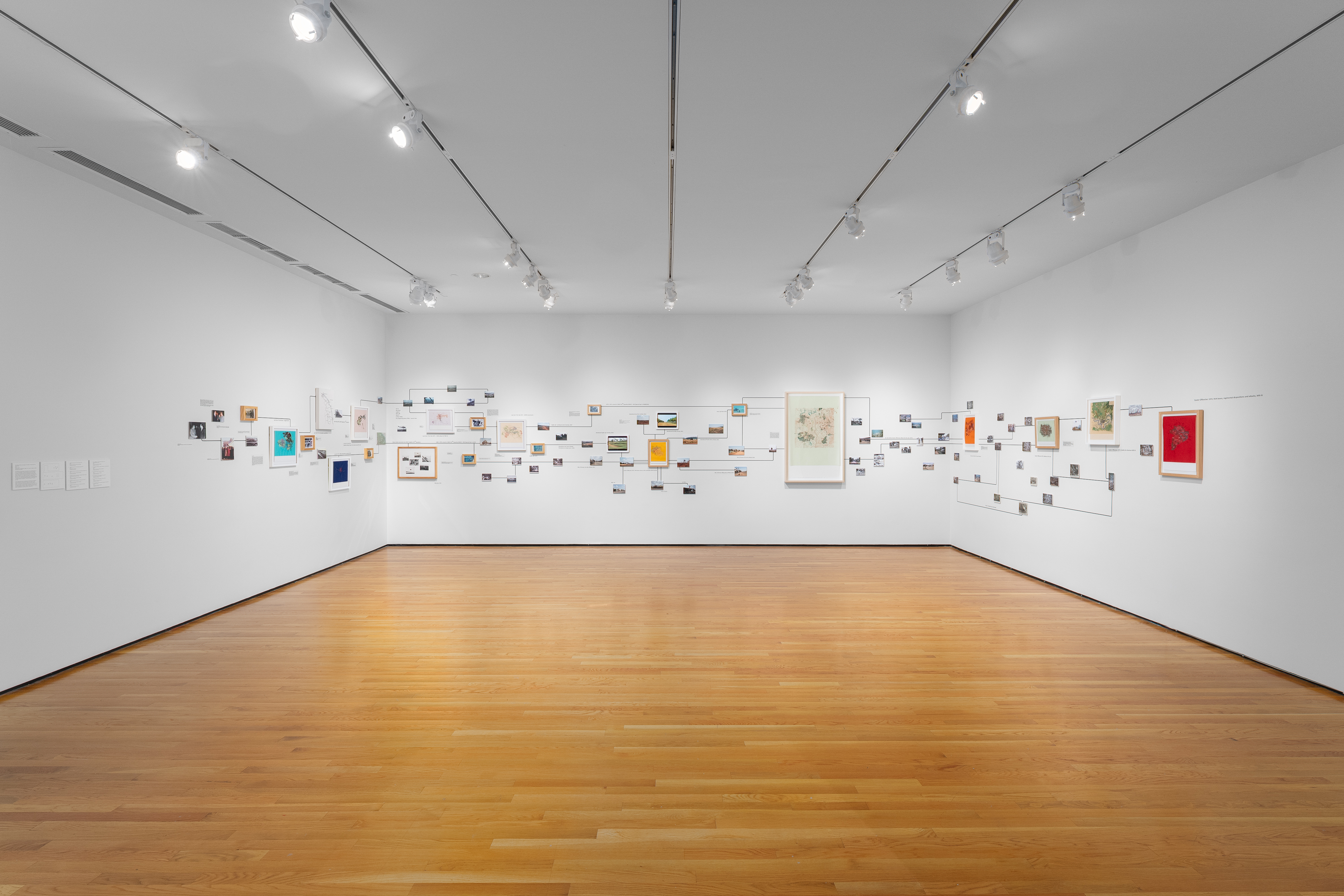
Installation view, “Tiffany Chung: indelible traces”, Art, Design & Architecture Museum, University of California, CA, USA, 2026.
Courtesy of the Art, Design & Architecture Museum at UC Santa Barbara. Photography by Yubo Dong,
ofstudio.
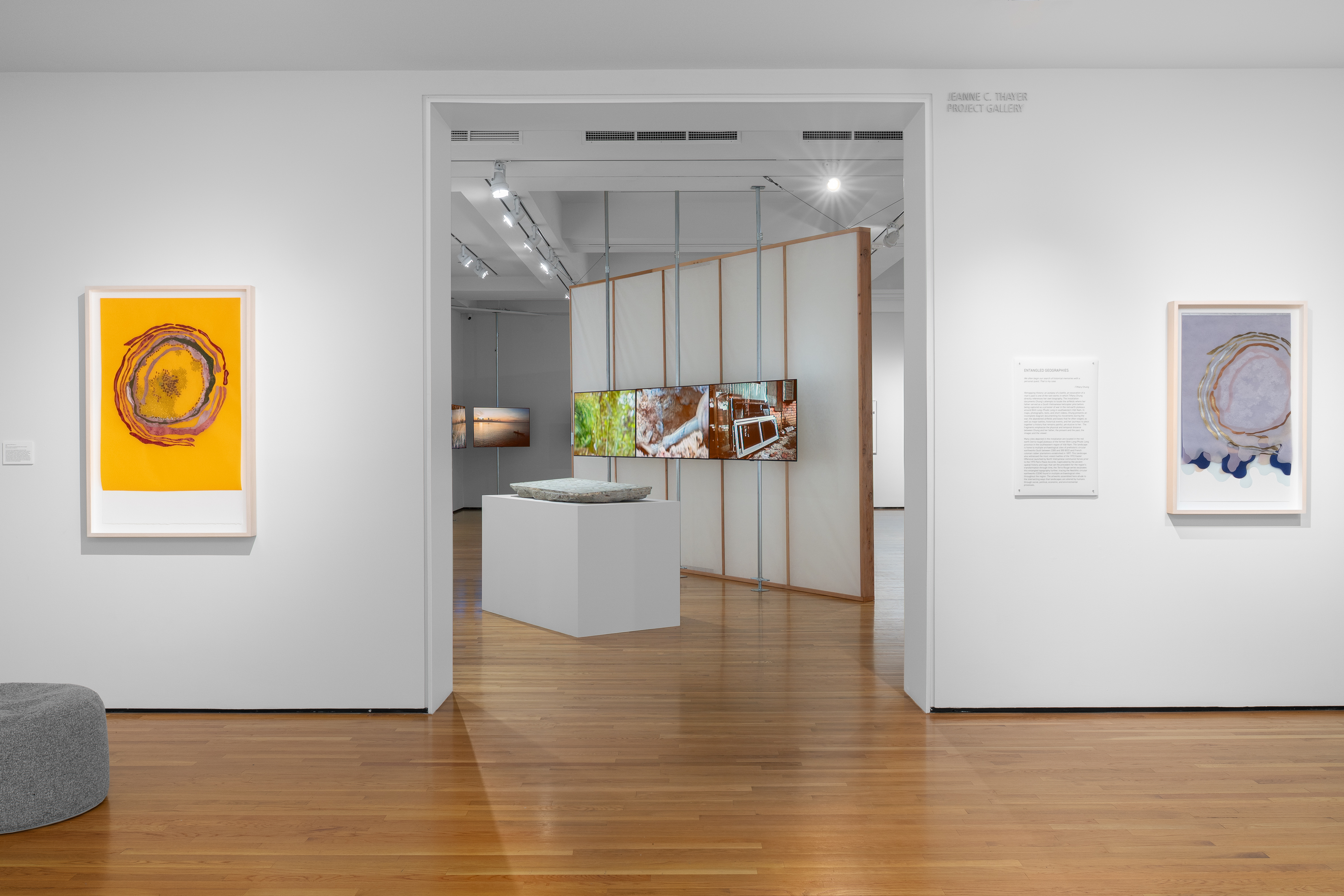
Installation view, “Tiffany Chung: indelible traces”, Art, Design & Architecture Museum, University of California, CA, USA, 2026.
Courtesy of the Art, Design & Architecture Museum at UC Santa Barbara. Photography by Yubo Dong,
ofstudio.
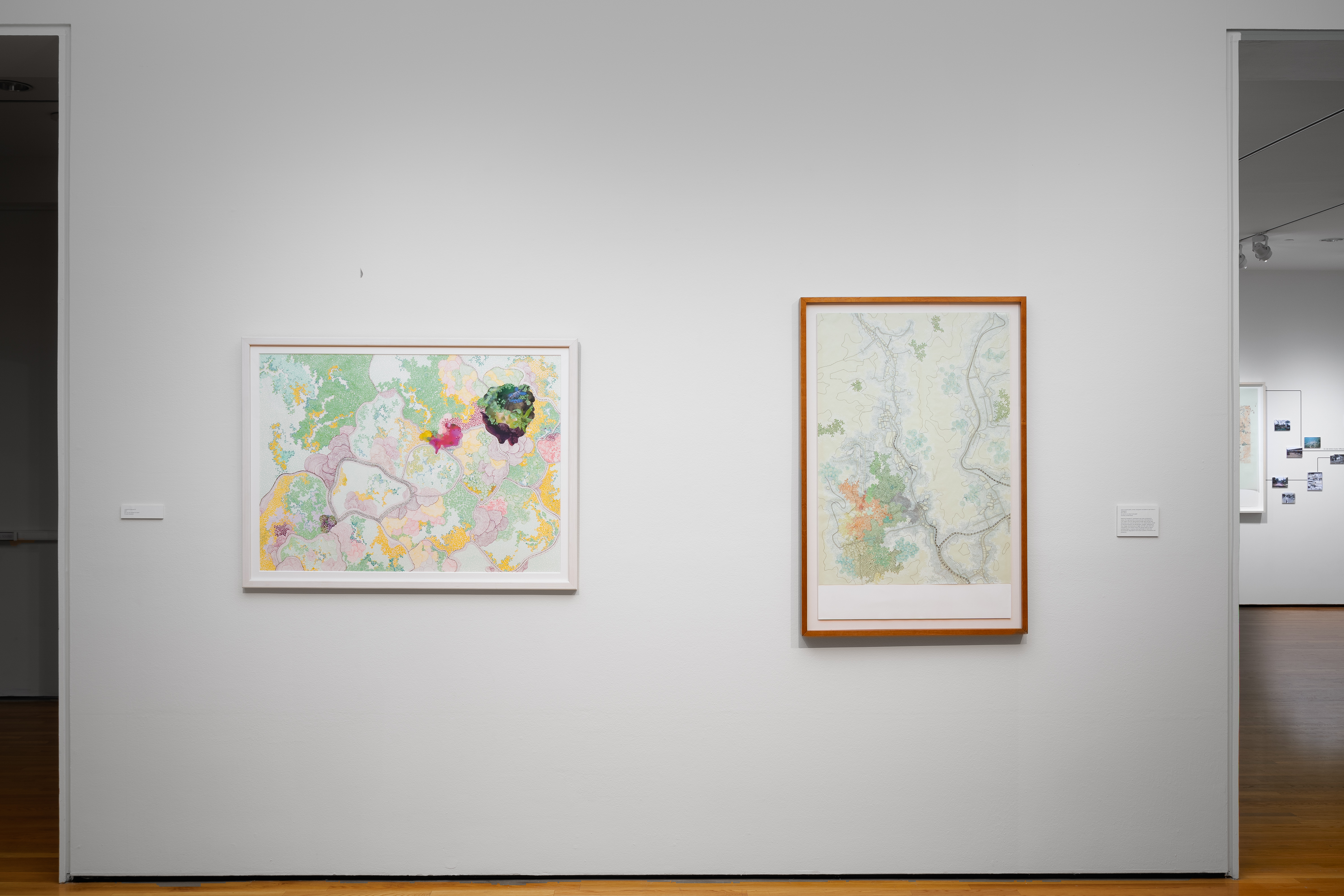
Installation view, “Tiffany Chung: indelible traces”, Art, Design & Architecture Museum, University of California, CA, USA, 2026.
Courtesy of the Art, Design & Architecture Museum at UC Santa Barbara. Photography by Yubo Dong,
ofstudio.
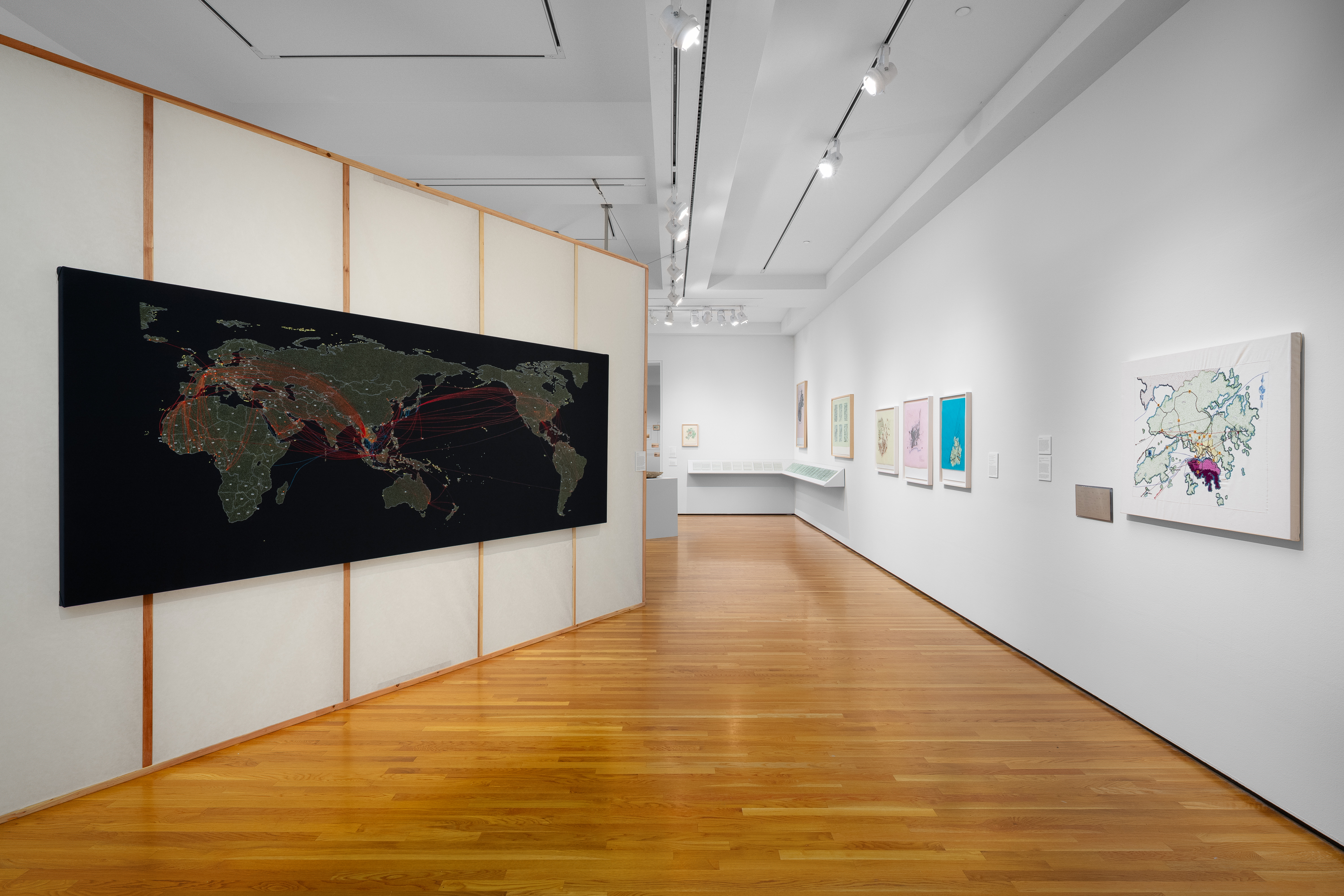
Installation view, “Tiffany Chung: indelible traces”, Art, Design & Architecture Museum, University of California, CA, USA, 2026.
Courtesy of the Art, Design & Architecture Museum at UC Santa Barbara. Photography by Yubo Dong,
ofstudio.
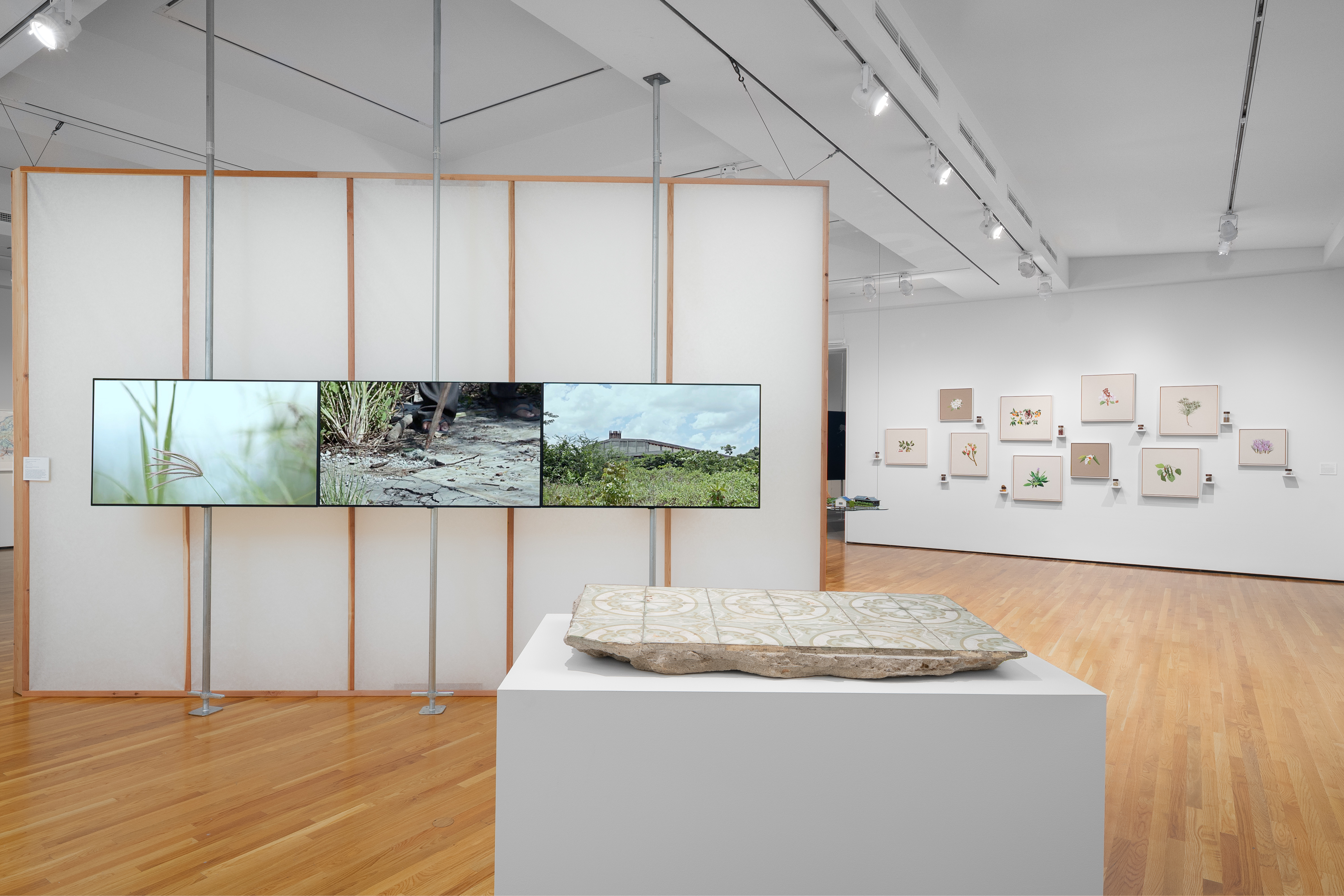
Installation view, “Tiffany Chung: indelible traces”, Art, Design & Architecture Museum, University of California, CA, USA, 2026.
Courtesy of the Art, Design & Architecture Museum at UC Santa Barbara. Photography by Yubo Dong,
ofstudio.
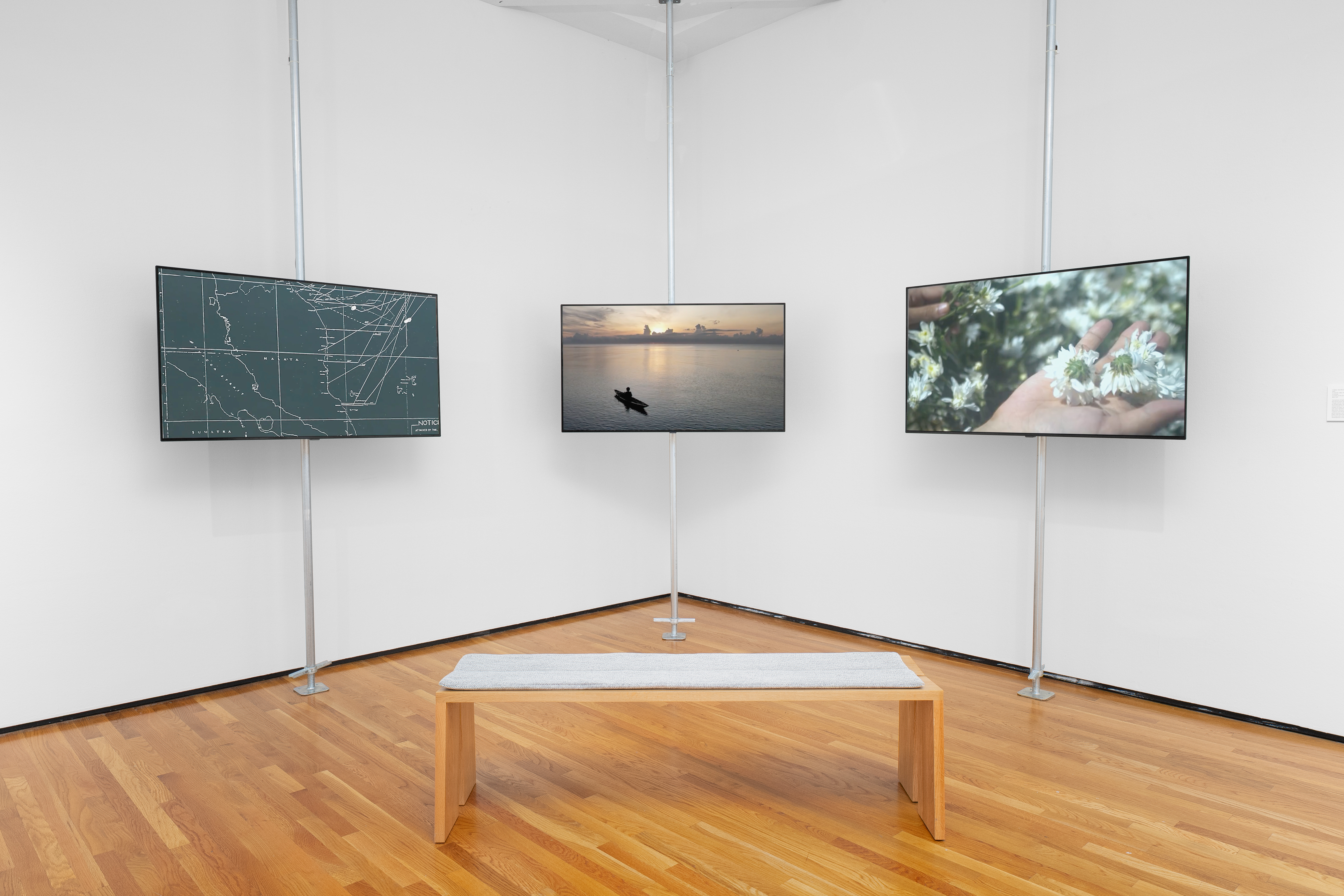
Courtesy of the Art, Design & Architecture Museum at UC Santa Barbara. Photography by Yubo Dong,
ofstudio.
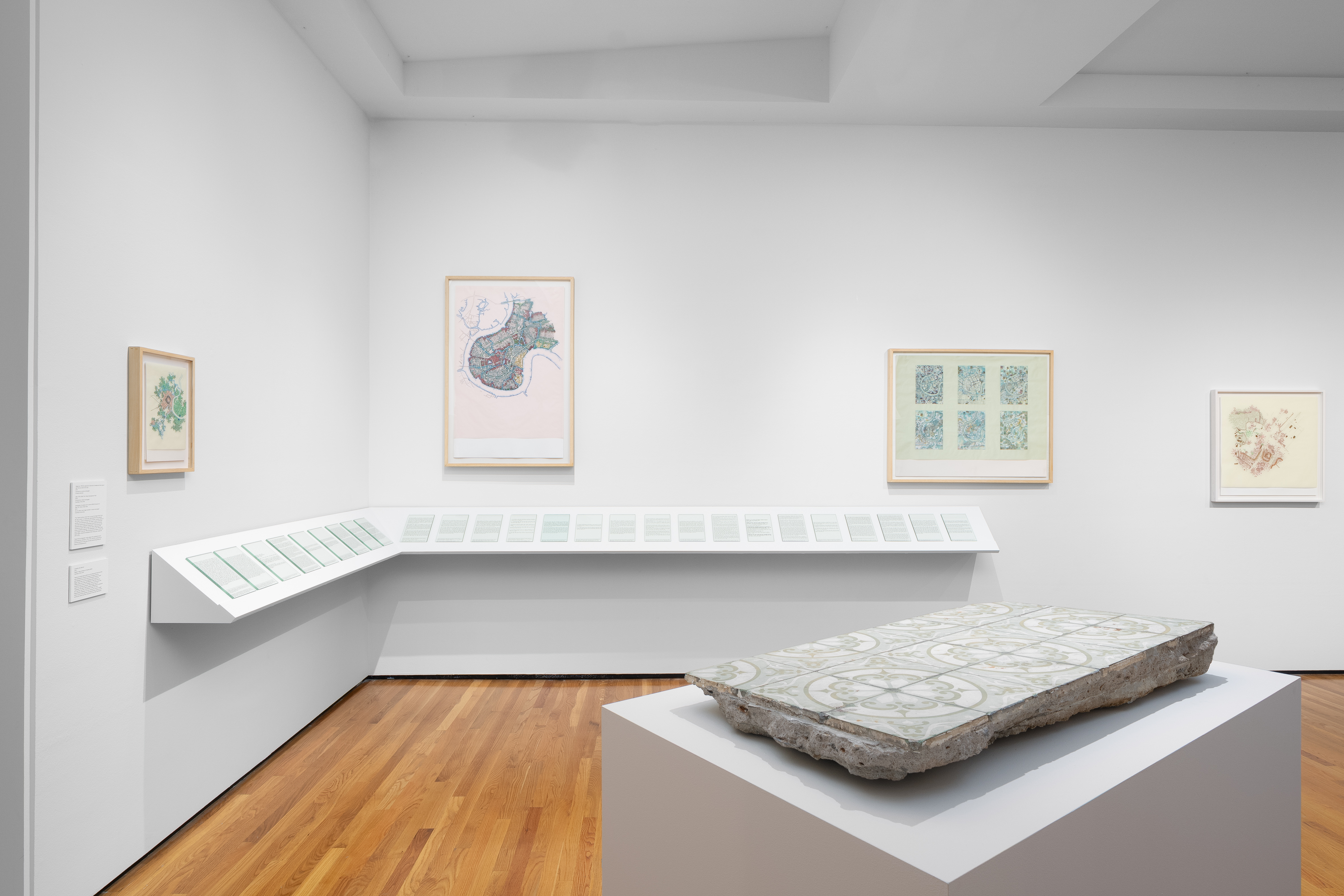
Installation view, “Tiffany Chung: indelible traces”, Art, Design & Architecture Museum, University of California, CA, USA, 2026.
Courtesy of the Art, Design & Architecture Museum at UC Santa Barbara. Photography by Yubo Dong,
ofstudio.
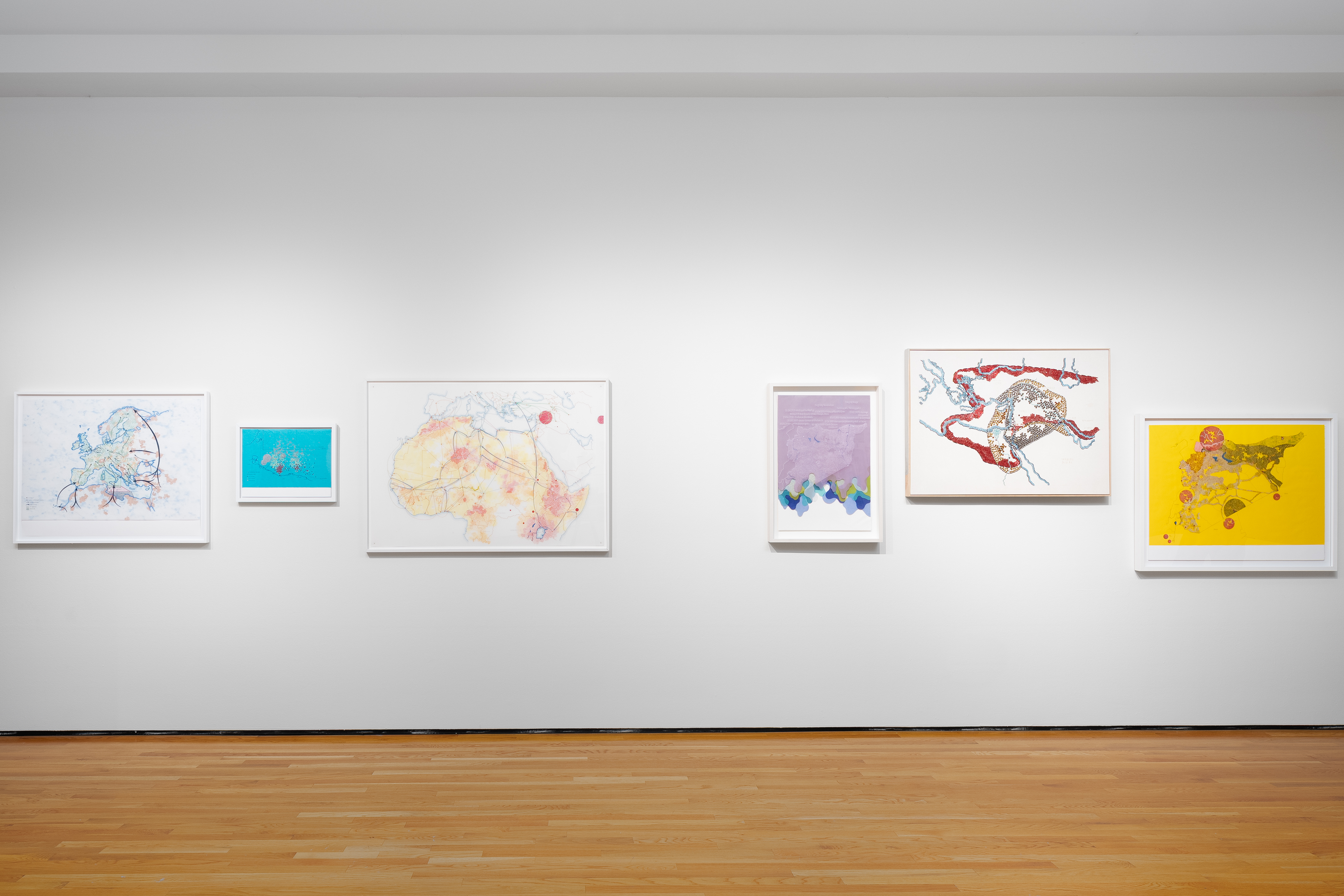
Installation view, “Tiffany Chung: indelible traces”, Art, Design & Architecture Museum, University of California, CA, USA, 2026.
Courtesy of the Art, Design & Architecture Museum at UC Santa Barbara. Photography by Yubo Dong,
ofstudio.
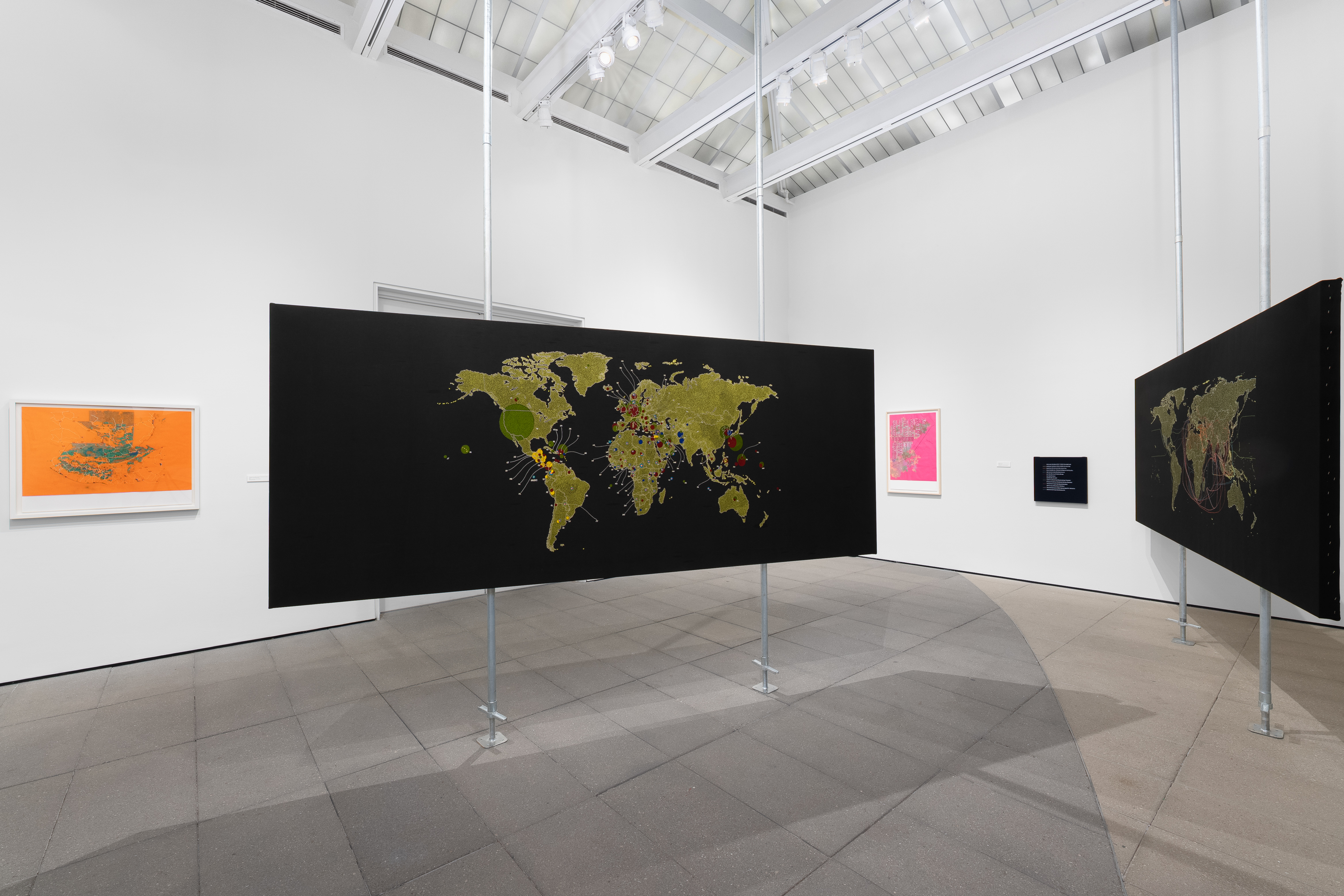
Tiffany Chung, USM Global, 2022-2023. Embroidery on fabric, size varies, 140 x 350 cm, 39 x 68cm.
Installation view, “Tiffany Chung: indelible traces”, Art, Design & Architecture Museum, University of California, CA, USA, 2026.
Courtesy of the Art, Design & Architecture Museum at UC Santa Barbara. Photography by Yubo Dong,
ofstudio.
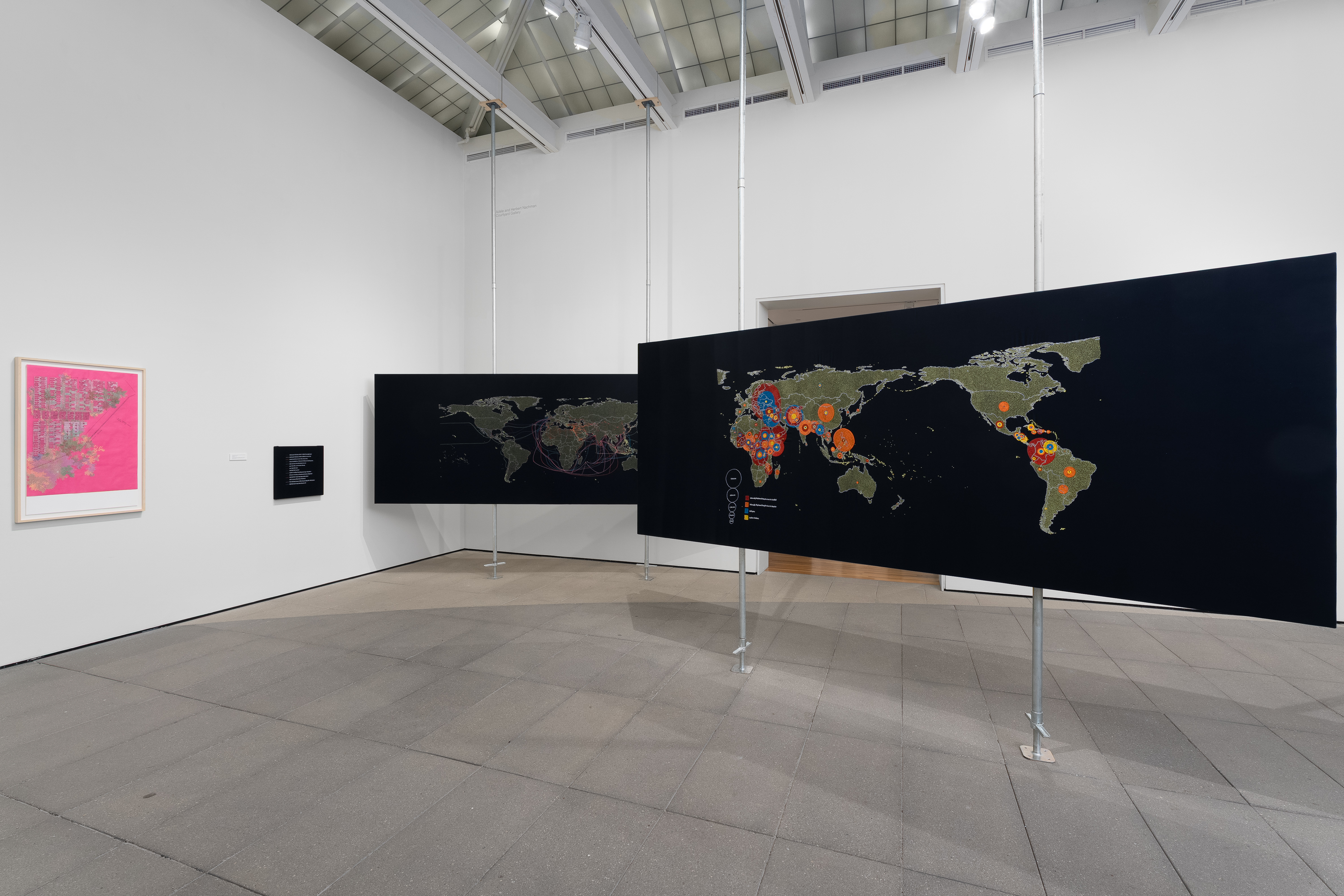
Installation view, “Tiffany Chung: indelible traces”, Art, Design & Architecture Museum, University of California, CA, USA, 2026.
Courtesy of the Art, Design & Architecture Museum at UC Santa Barbara. Photography by Yubo Dong,
ofstudio.
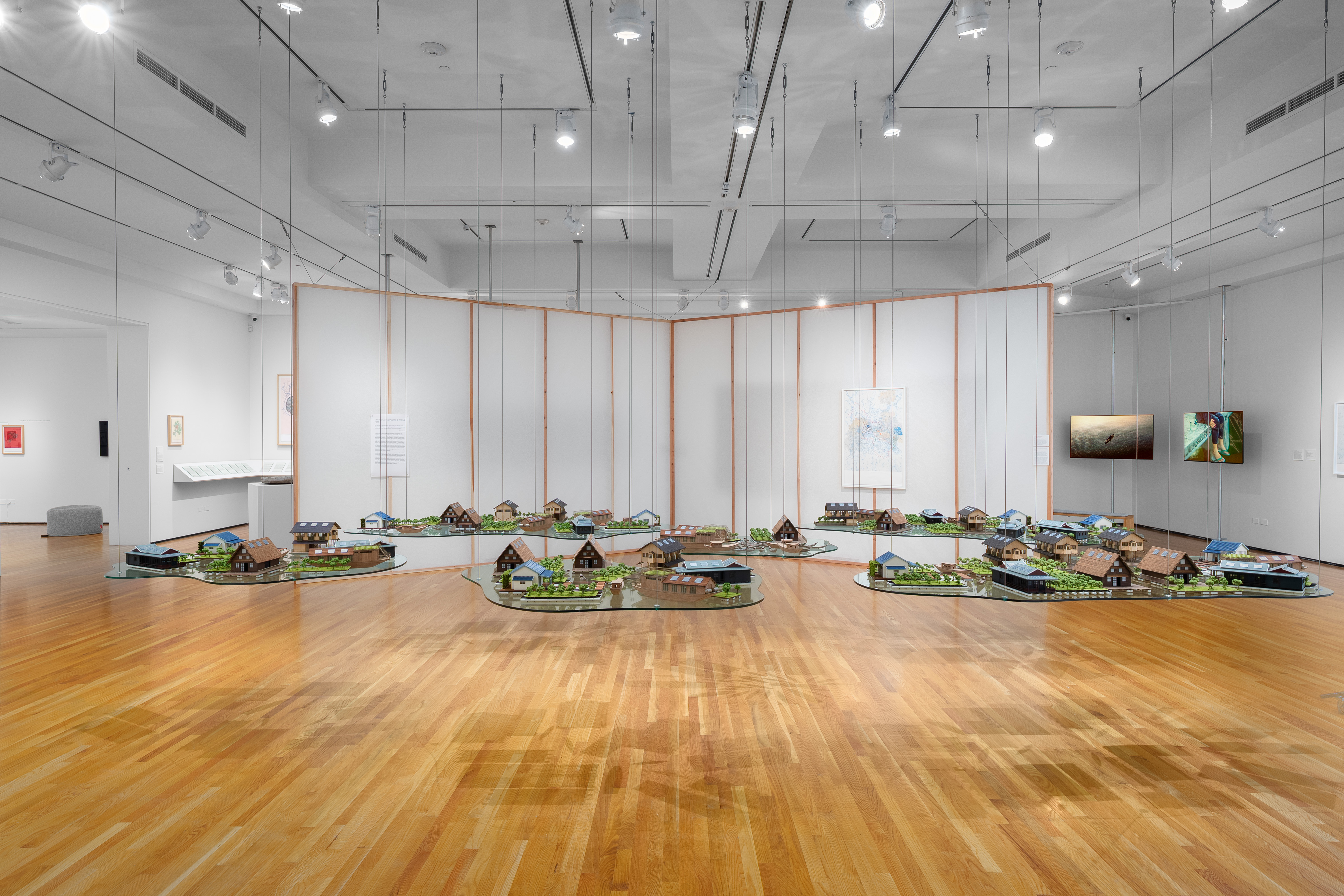
Installation view, “Tiffany Chung: indelible traces”, Art, Design & Architecture Museum, University of California, CA, USA, 2026.
Courtesy of the Art, Design & Architecture Museum at UC Santa Barbara. Photography by Yubo Dong,
ofstudio.
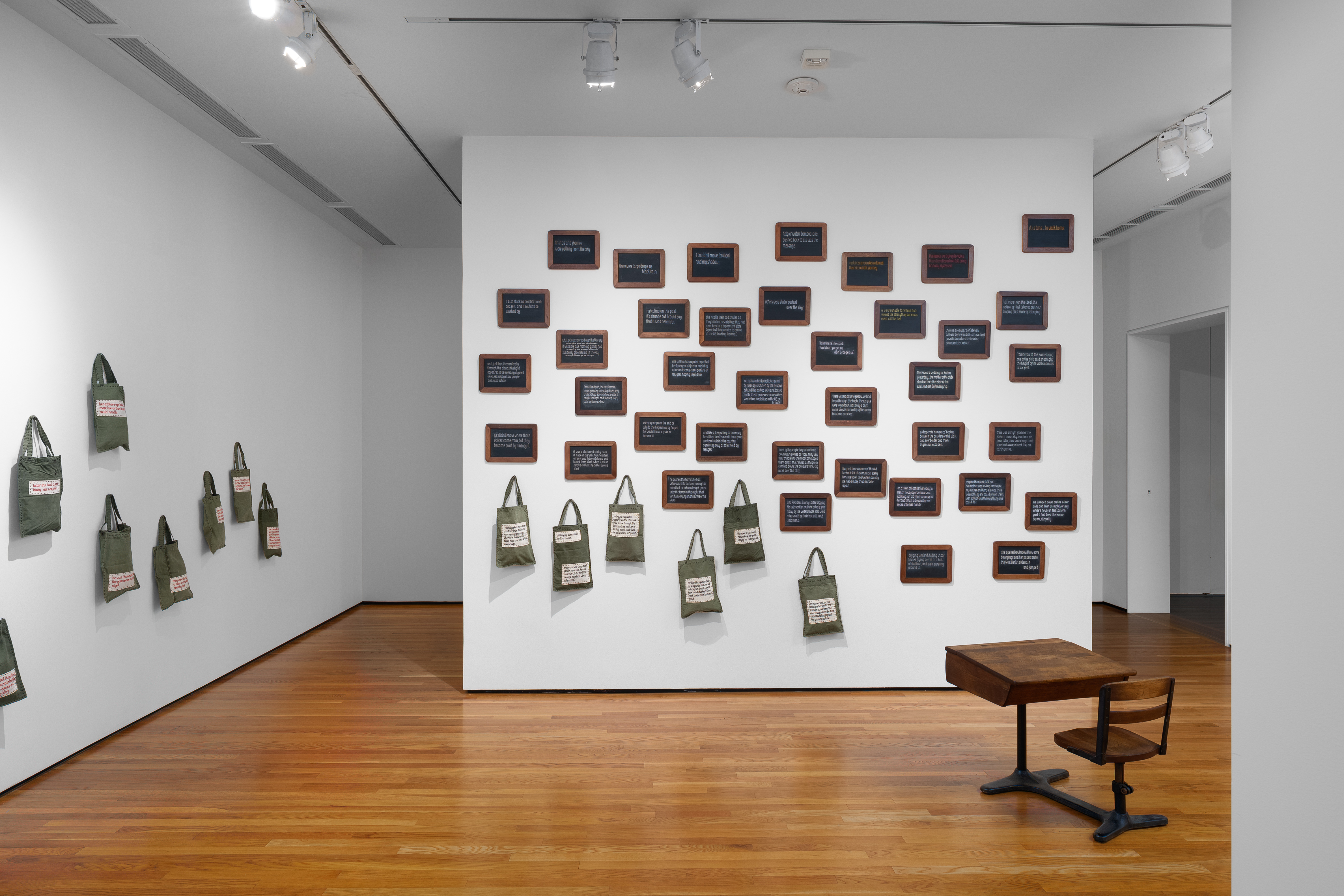
Installation view, “Tiffany Chung: indelible traces”, Art, Design & Architecture Museum, University of California, CA, USA, 2026.
Courtesy of the Art, Design & Architecture Museum at UC Santa Barbara. Photography by Yubo Dong,
ofstudio.
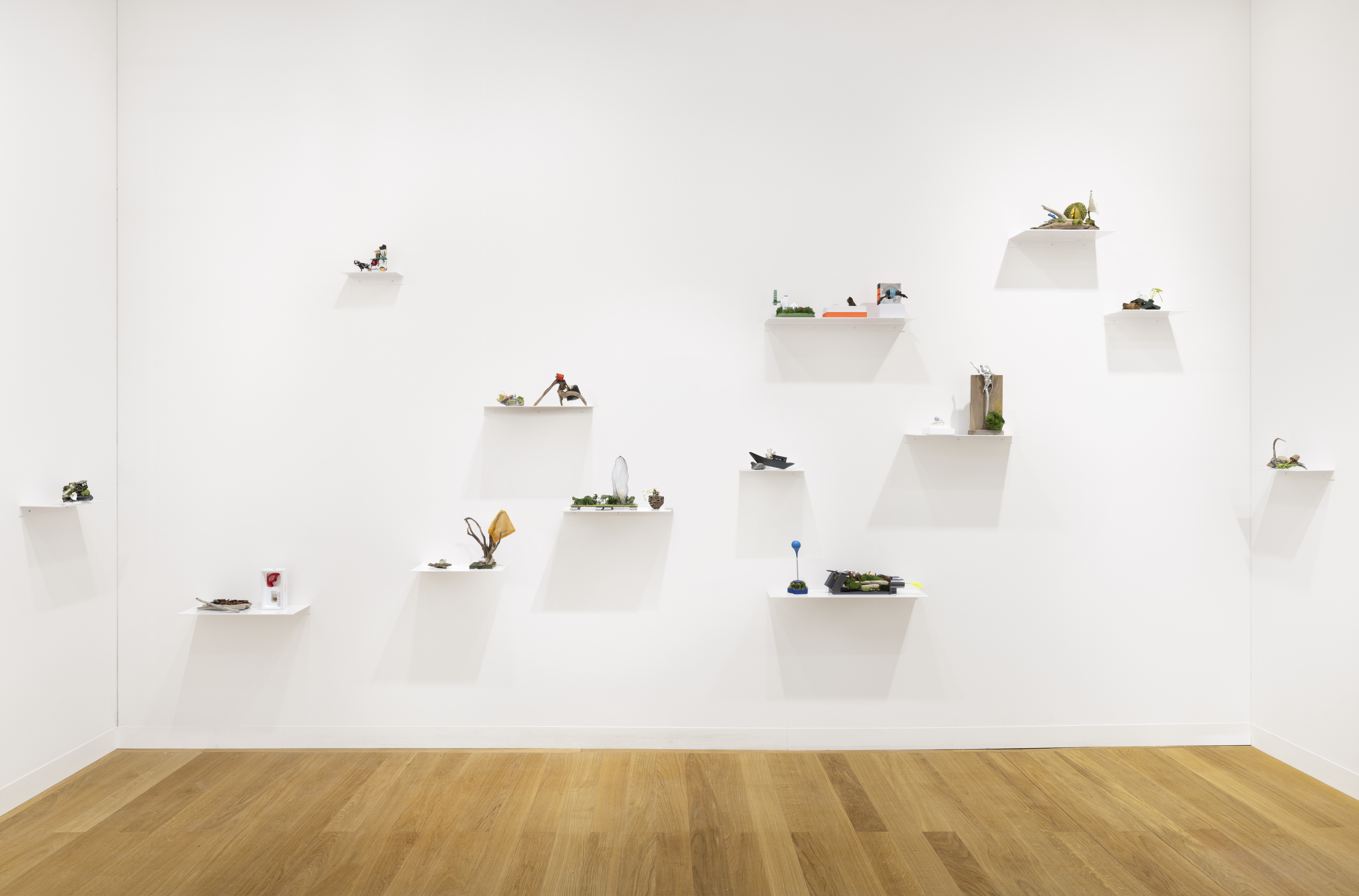
Tiffany Chung, the world through my mother’s cabinets of curiosities, 2025
Mixed media, an installation of 39 assemblages
Dimensions variable.
Installation view, Kiang Malingue at Art Basel Paris, 2025.
Image courtesy of the artists and Kiang Malingue. Photo by Andrea Rossetti.
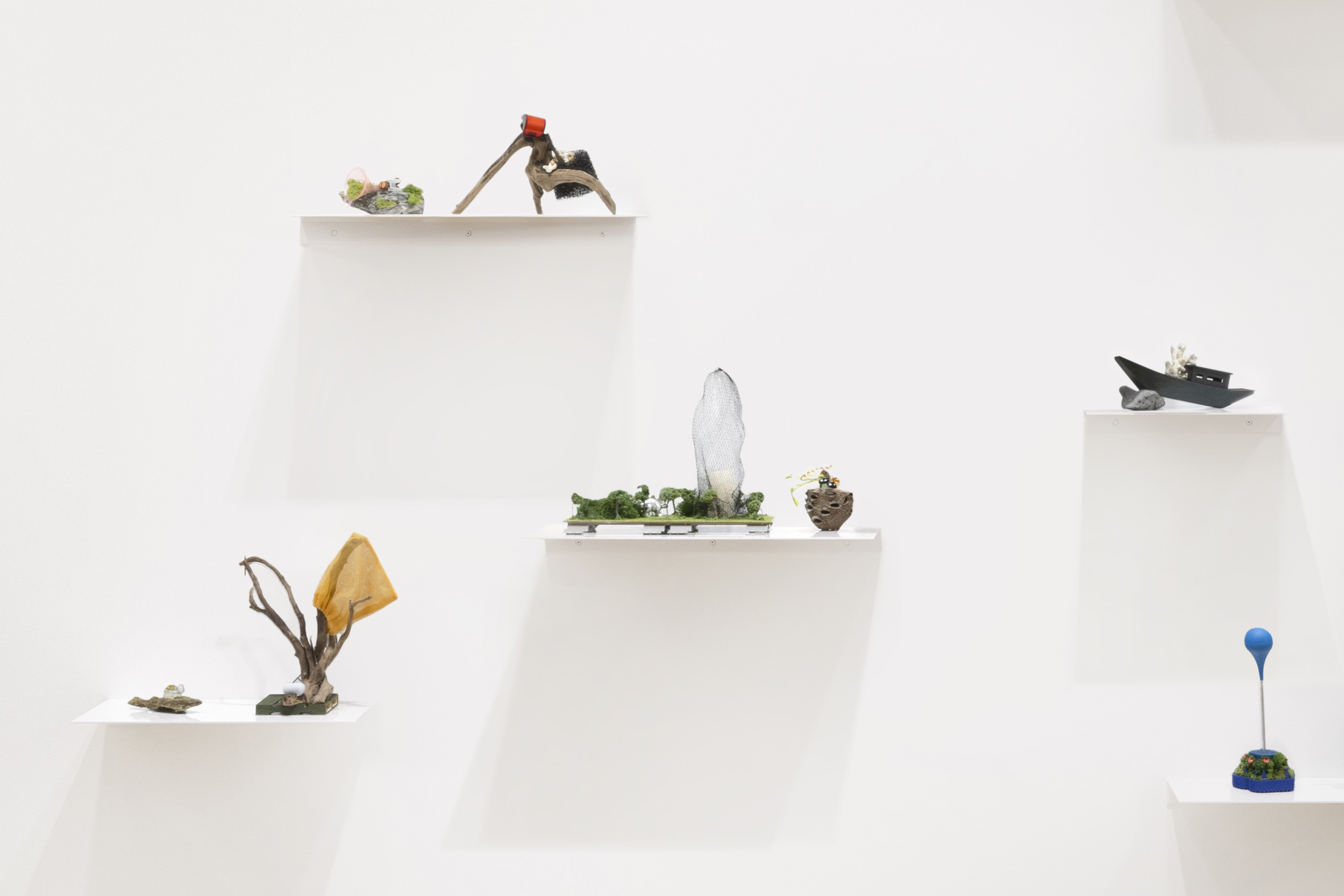
(Details) Tiffany Chung, the world through my mother’s cabinets of curiosities, 2025
Mixed media, an installation of 39 assemblages
Dimensions variable.
Installation view, Kiang Malingue at Art Basel Paris, 2025.
Image courtesy of the artists and Kiang Malingue. Photo by Andrea Rossetti.
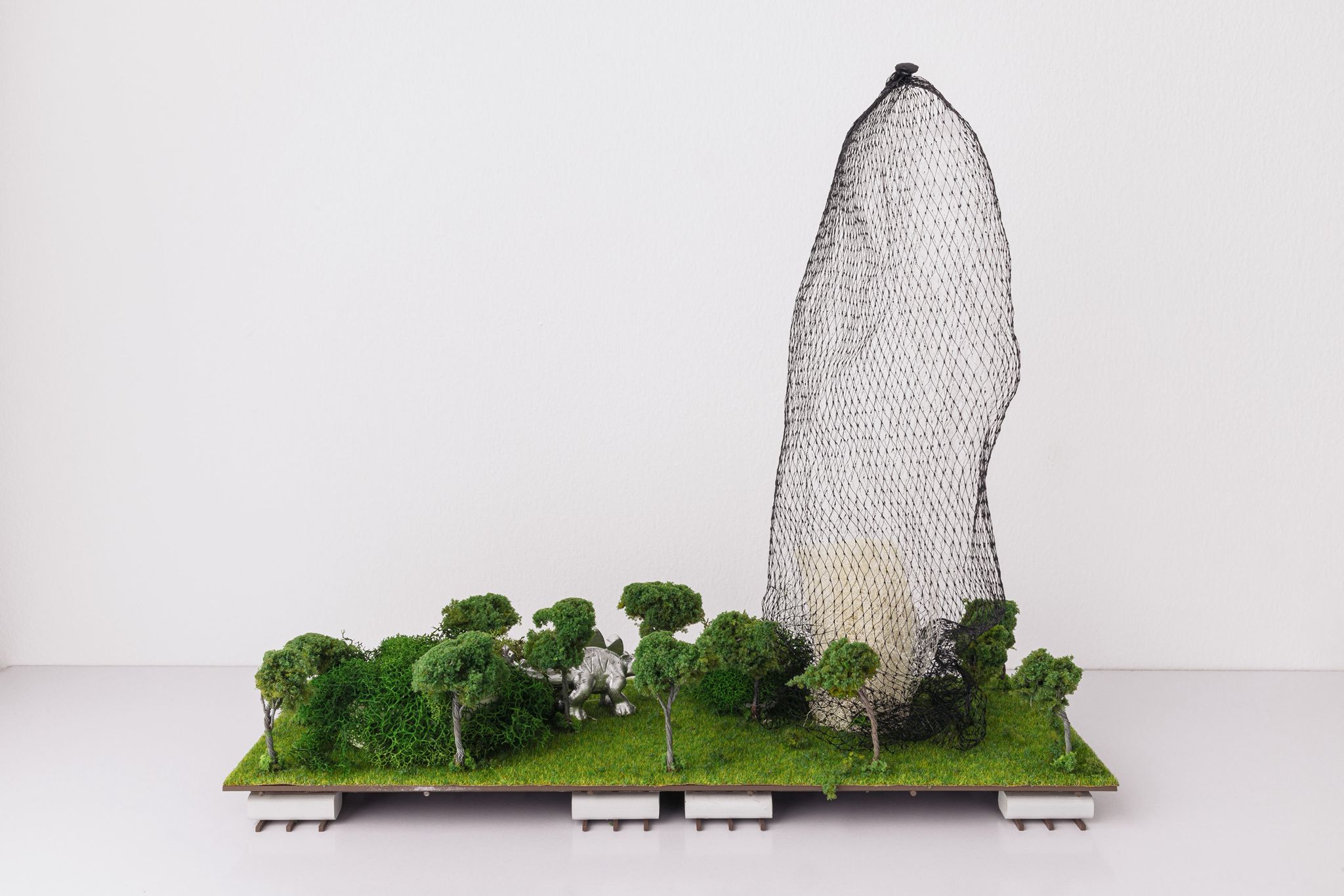
(Details) Tiffany Chung, the world through my mother’s cabinets of curiosities, 2025
Mixed media, an installation of 39 assemblages
Dimensions variable.
Installation view, Kiang Malingue at Art Basel Paris, 2025.
Image courtesy of the artists and Kiang Malingue. Photo by Andrea Rossetti.
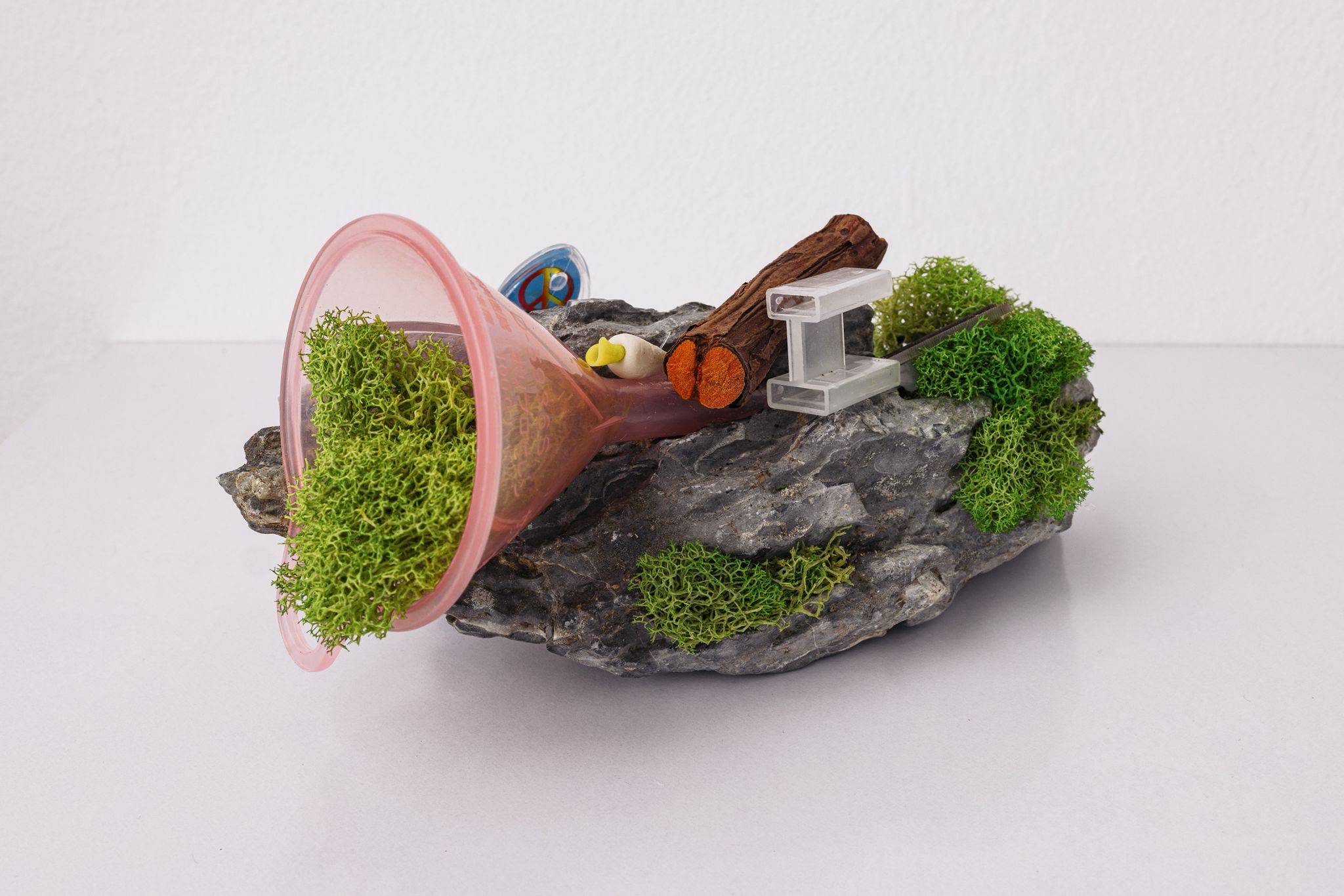
(Details) Tiffany Chung, the world through my mother’s cabinets of curiosities, 2025
Mixed media, an installation of 39 assemblages
Dimensions variable.
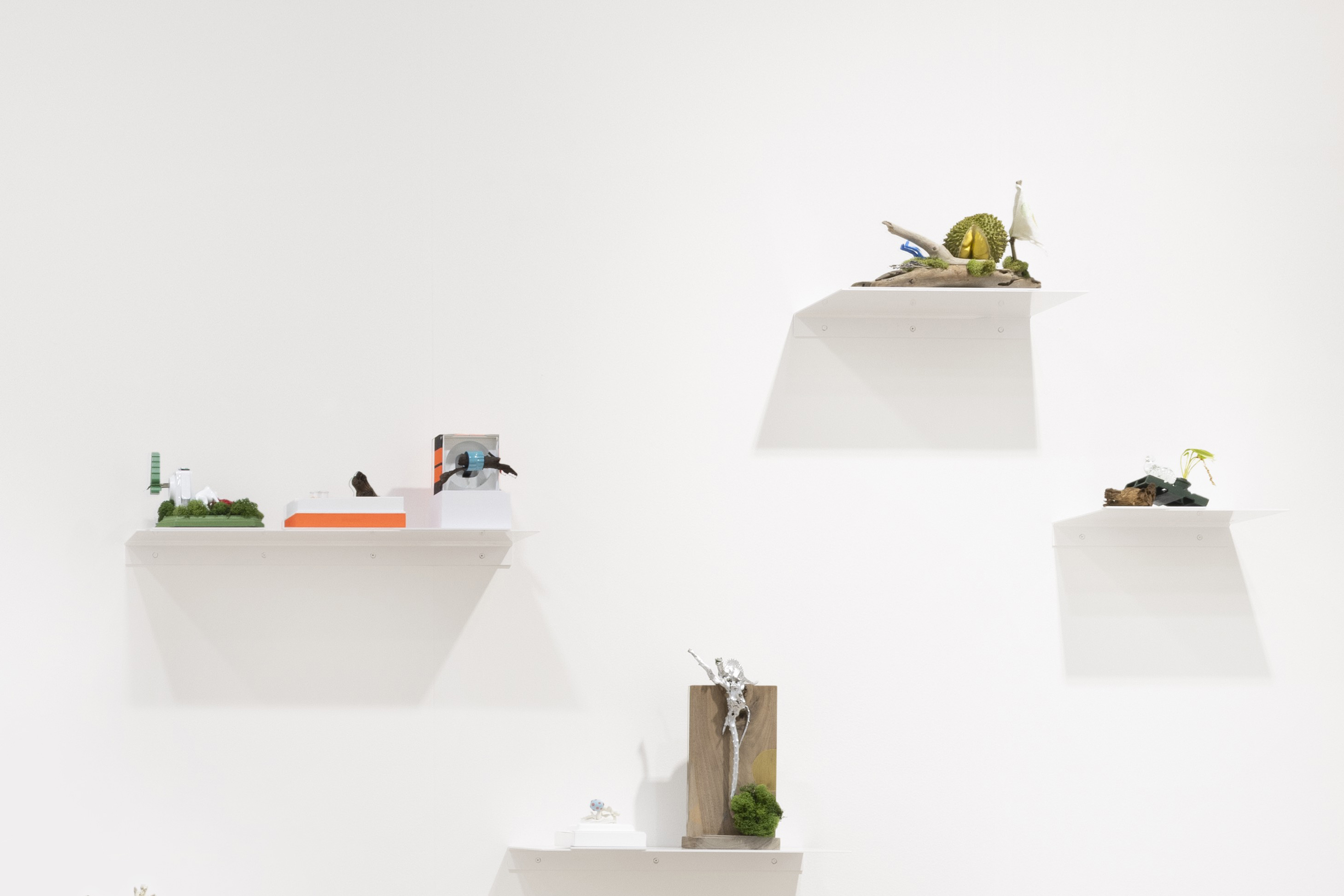
(Details) Tiffany Chung, the world through my mother’s cabinets of curiosities, 2025
Mixed media, an installation of 39 assemblages
Dimensions variable.
Installation view, Kiang Malingue at Art Basel Paris, 2025.
Image courtesy of the artists and Kiang Malingue. Photo by Andrea Rossetti.
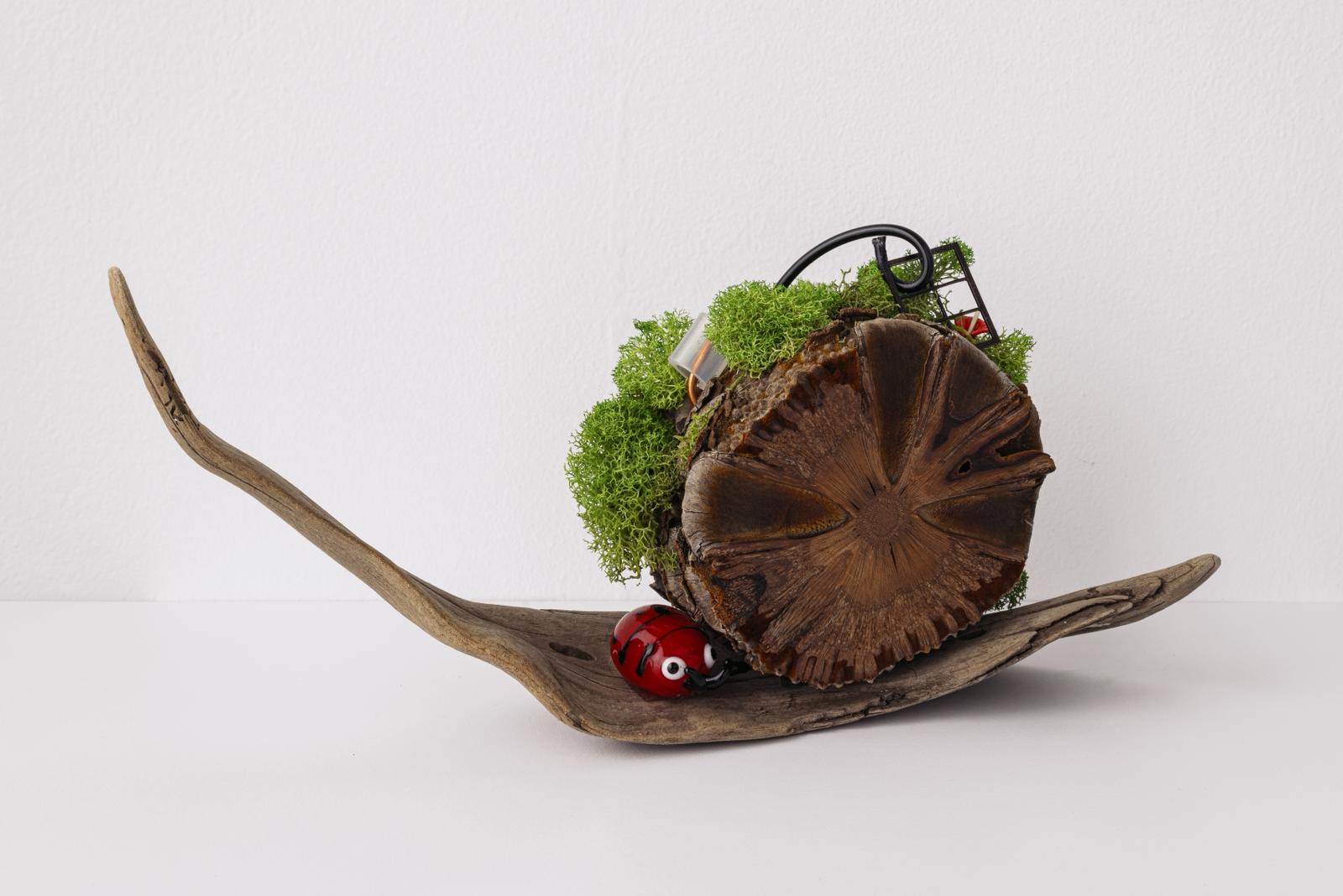
(Details) Tiffany Chung, the world through my mother’s cabinets of curiosities, 2025
Mixed media, an installation of 39 assemblages
Dimensions variable.
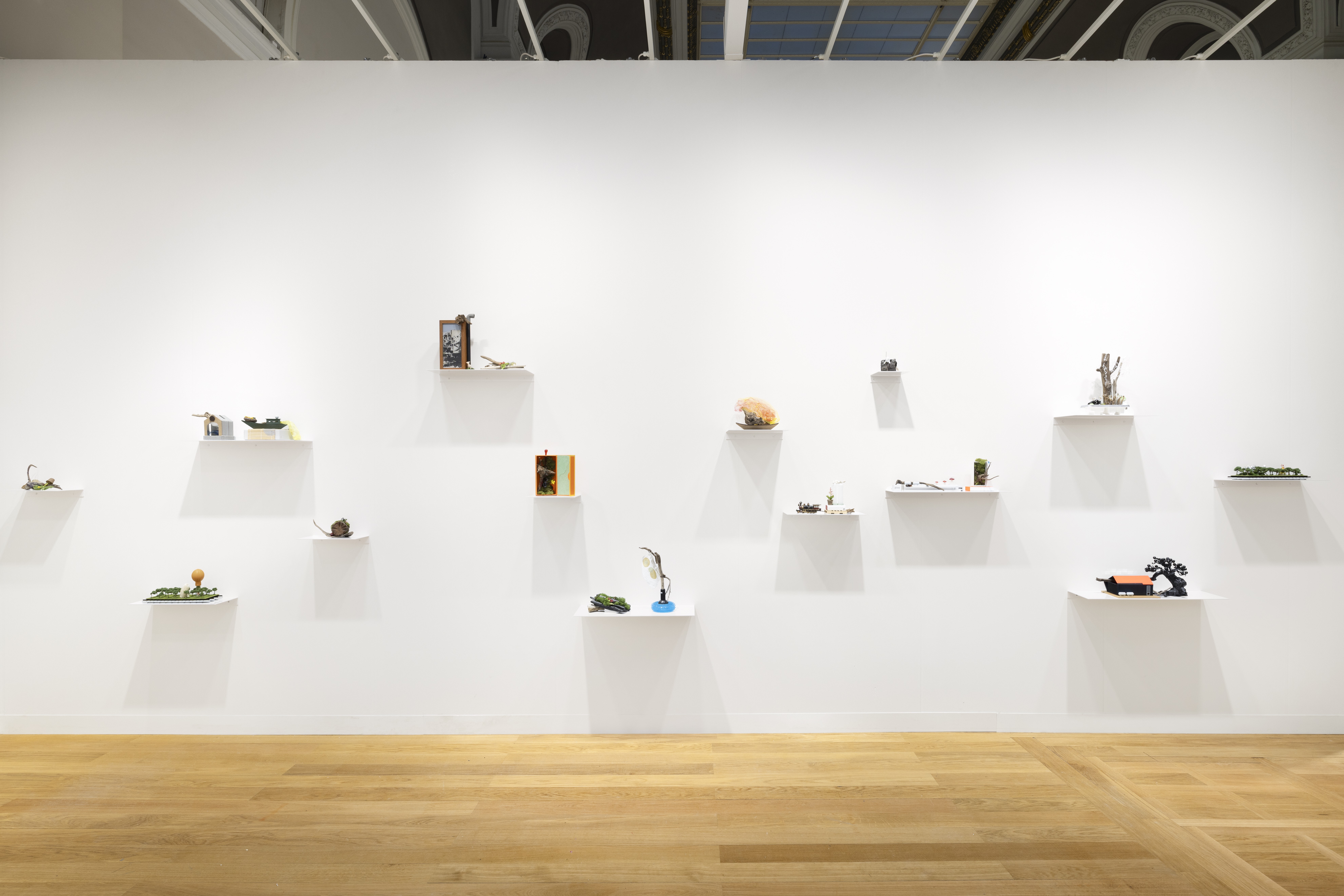
Tiffany Chung, the world through my mother’s cabinets of curiosities, 2025
Mixed media, an installation of 39 assemblages
Dimensions variable.
Installation view, Kiang Malingue at Art Basel Paris, 2025.
Image courtesy of the artists and Kiang Malingue. Photo by Andrea Rossetti.
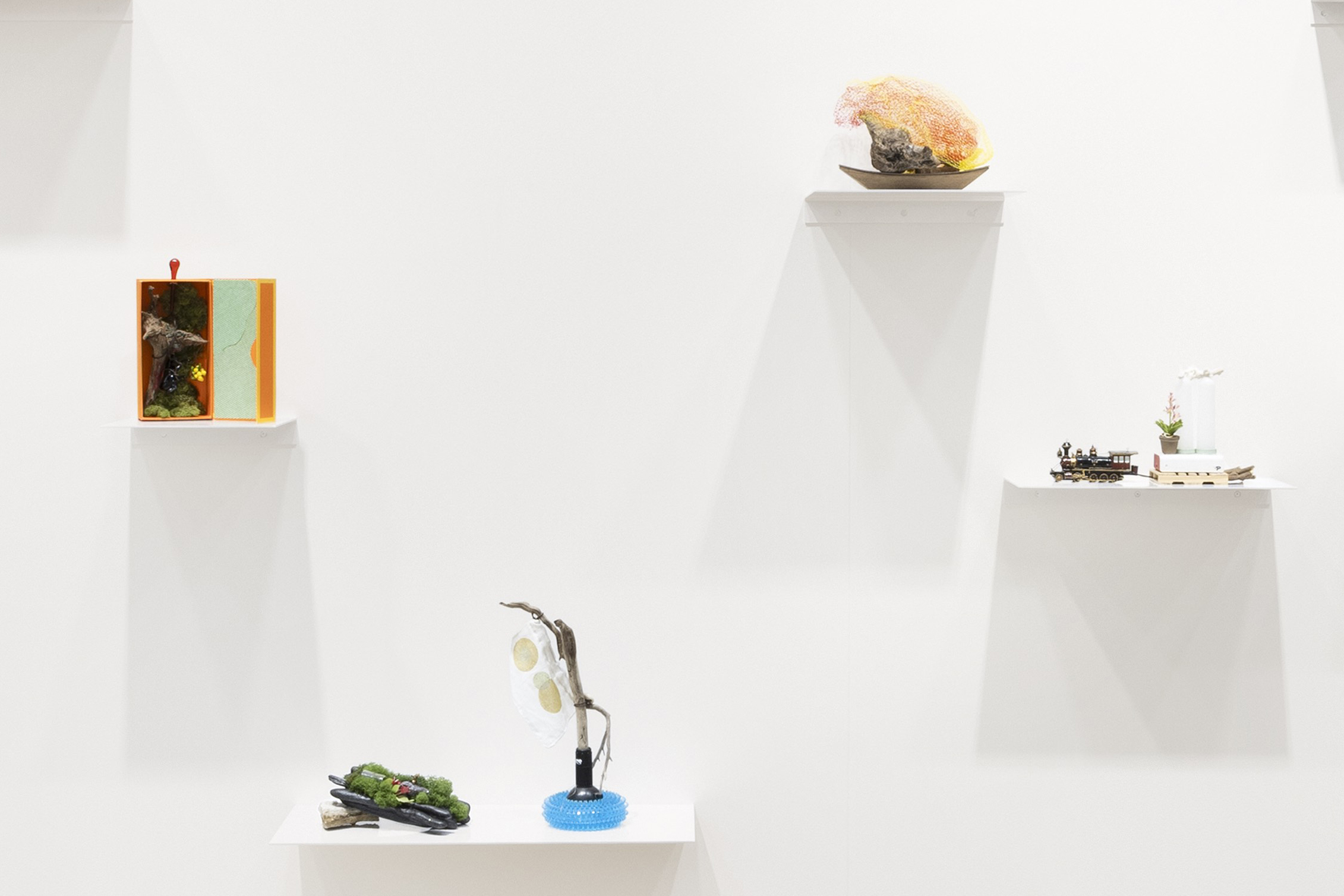
(Details) Tiffany Chung, the world through my mother’s cabinets of curiosities, 2025
Mixed media, an installation of 39 assemblages
Dimensions variable.
Installation view, Kiang Malingue at Art Basel Paris, 2025.
Image courtesy of the artists and Kiang Malingue. Photo by Andrea Rossetti.
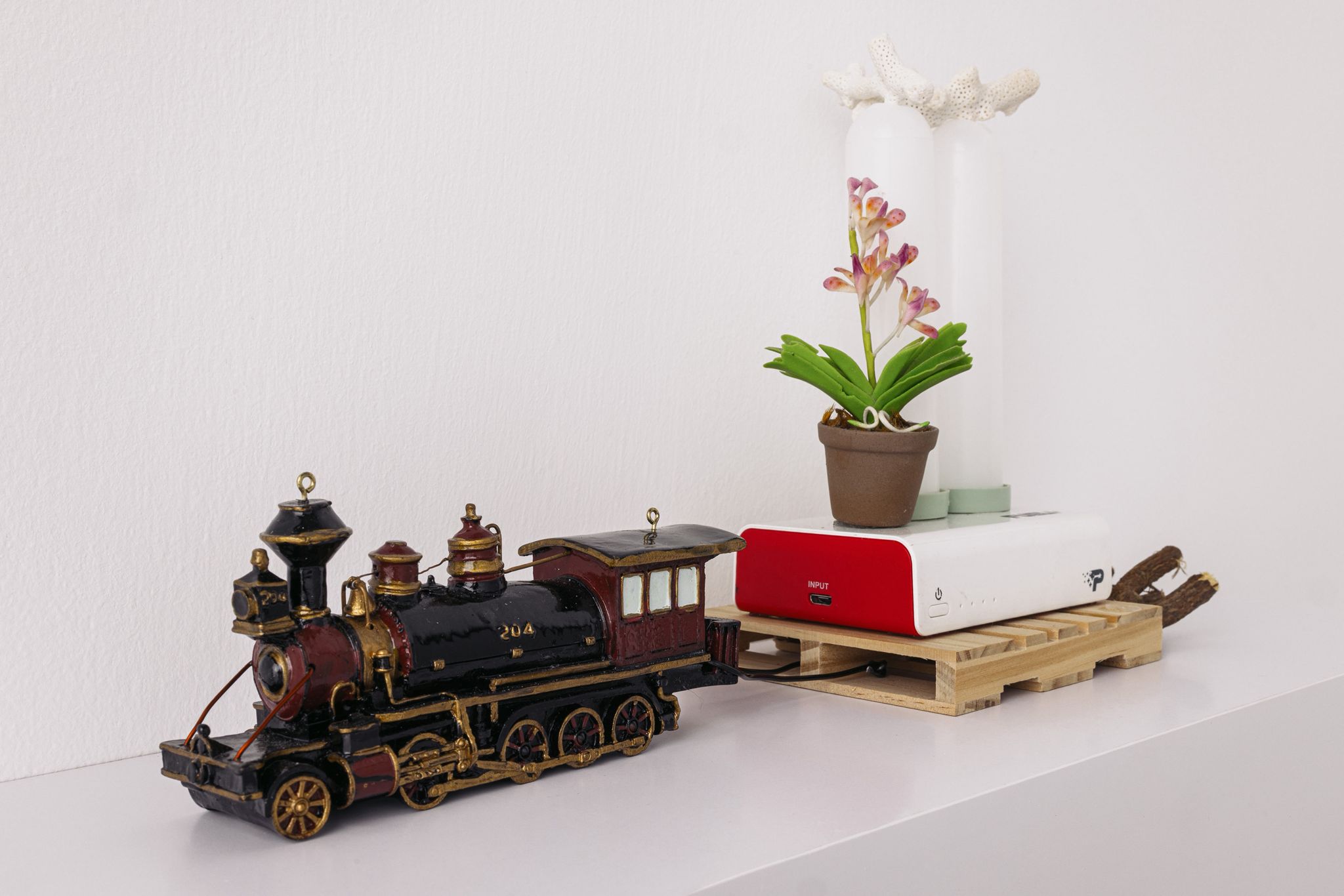
(Details) Tiffany Chung, the world through my mother’s cabinets of curiosities, 2025
Mixed media, an installation of 39 assemblages
Dimensions variable.
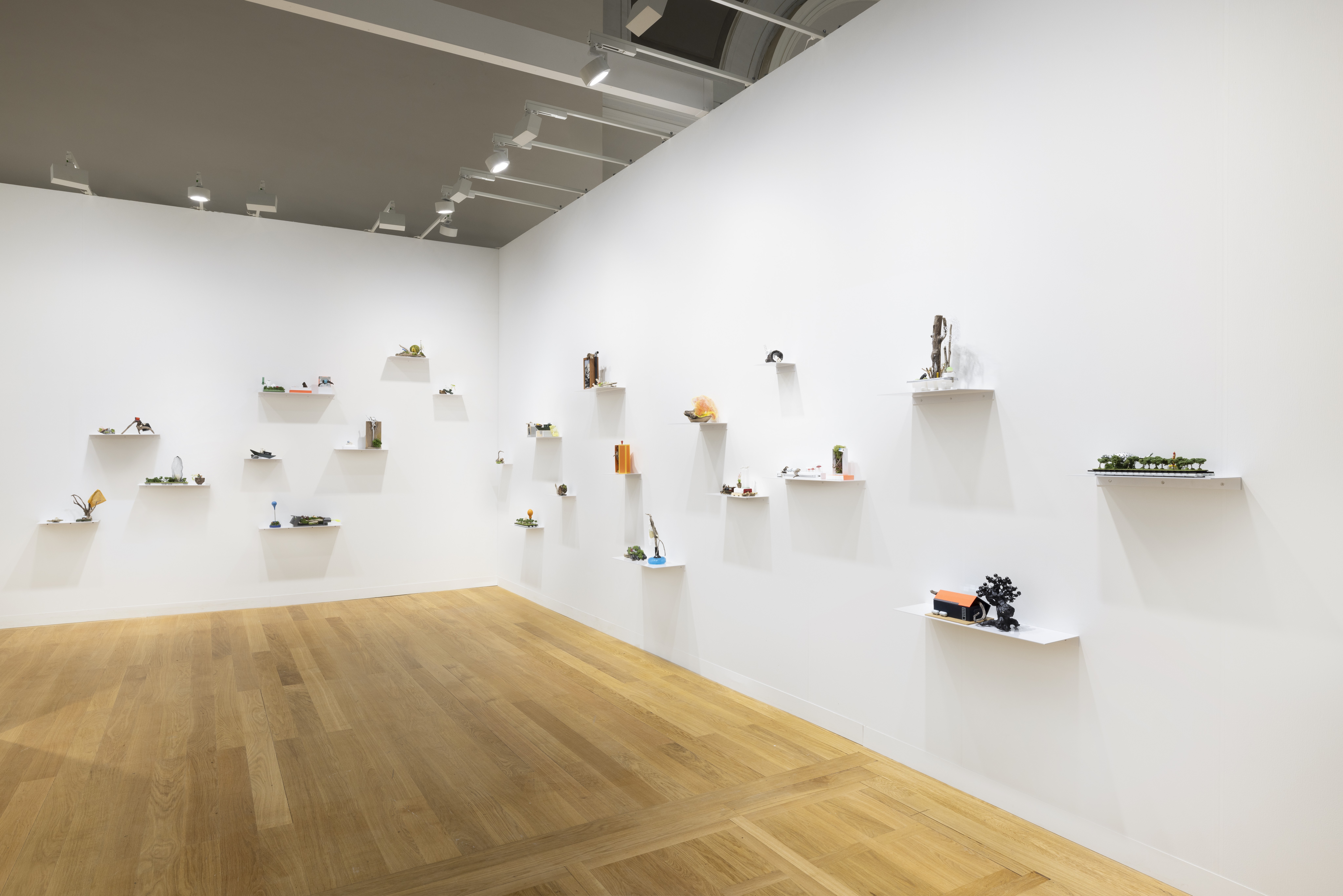
Tiffany Chung, the world through my mother’s cabinets of curiosities, 2025
Mixed media, an installation of 39 assemblages
Dimensions variable.
Installation view, Kiang Malingue at Art Basel Paris, 2025.
Image courtesy of the artists and Kiang Malingue. Photo by Andrea Rossetti.
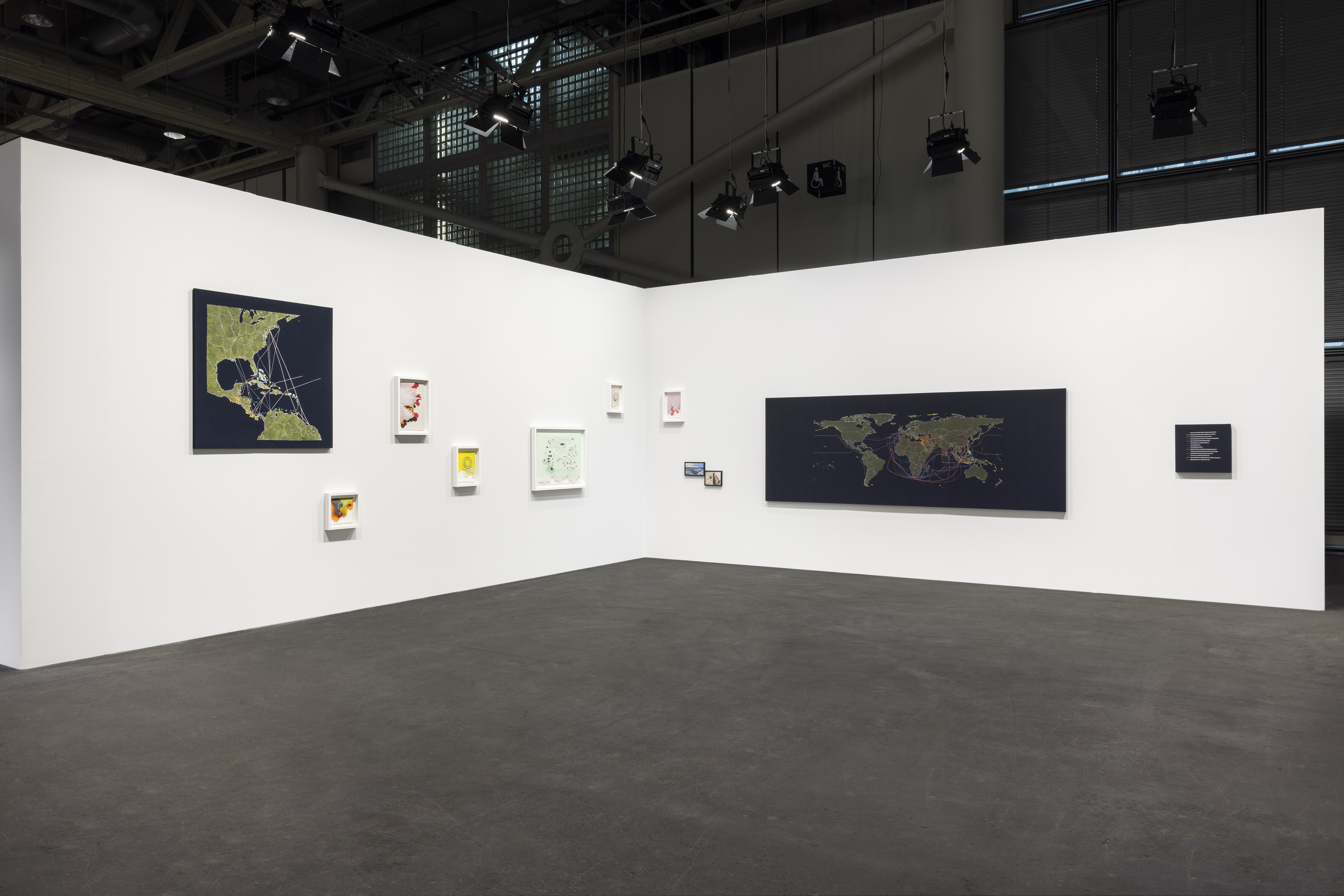
Tiffany Chung, traces, 2025
Embroidery on fabric, ink & oil on paper, digital C-print
Dimensions variable
Installation view, Tiffany Chung at Unlimited, Art Basel Basel 2025.
Photo by Andrea Rossetti.

Installation view, Tiffany Chung at Unlimited, Art Basel Basel 2025.
Photo by Andrea Rossetti.
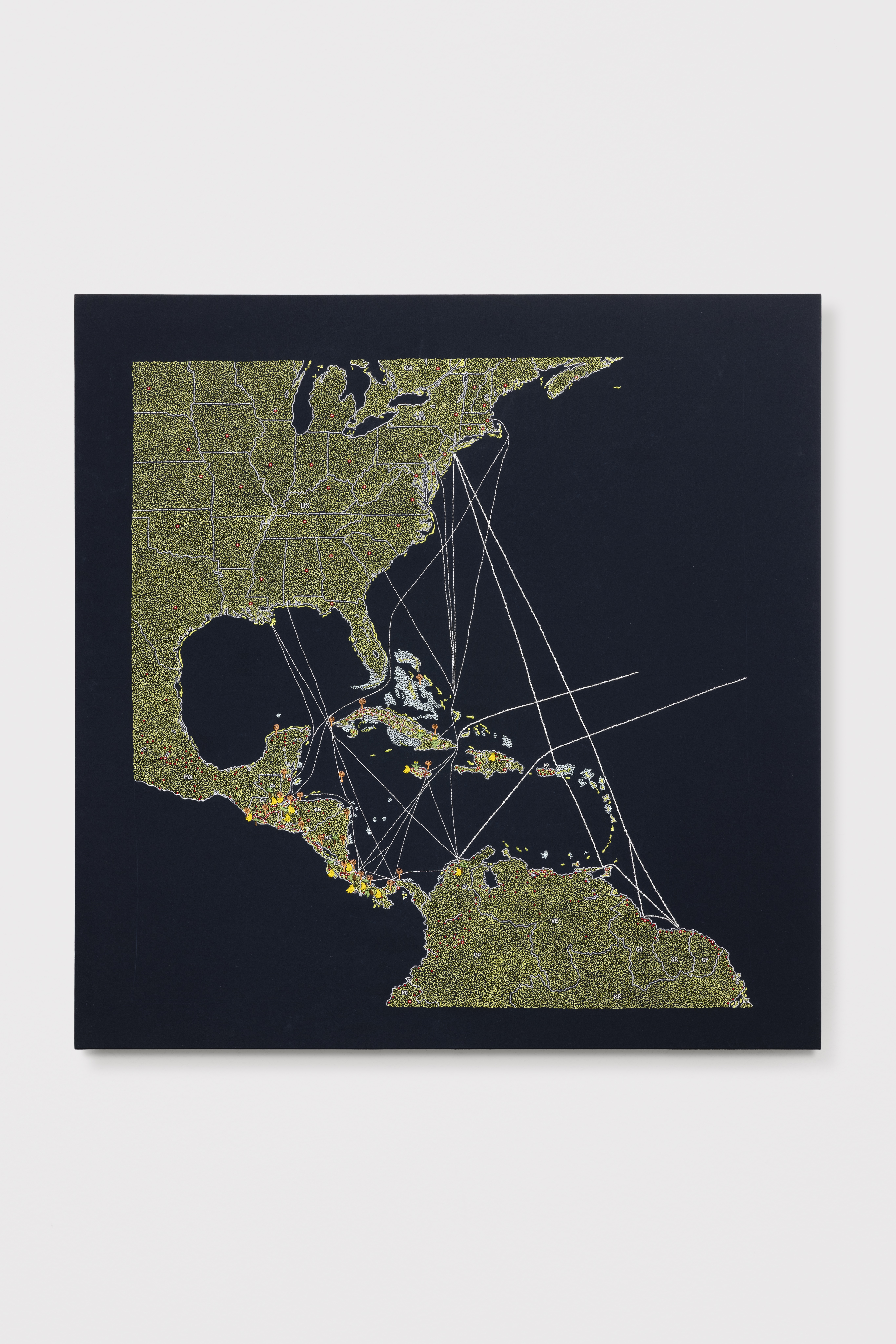
Tiffany Chung, El Pulpo: UFCo’s Great White Fleet Routes and Properties in Central America & the Caribbean, 2020
54 3/4 x 54 3/4 in
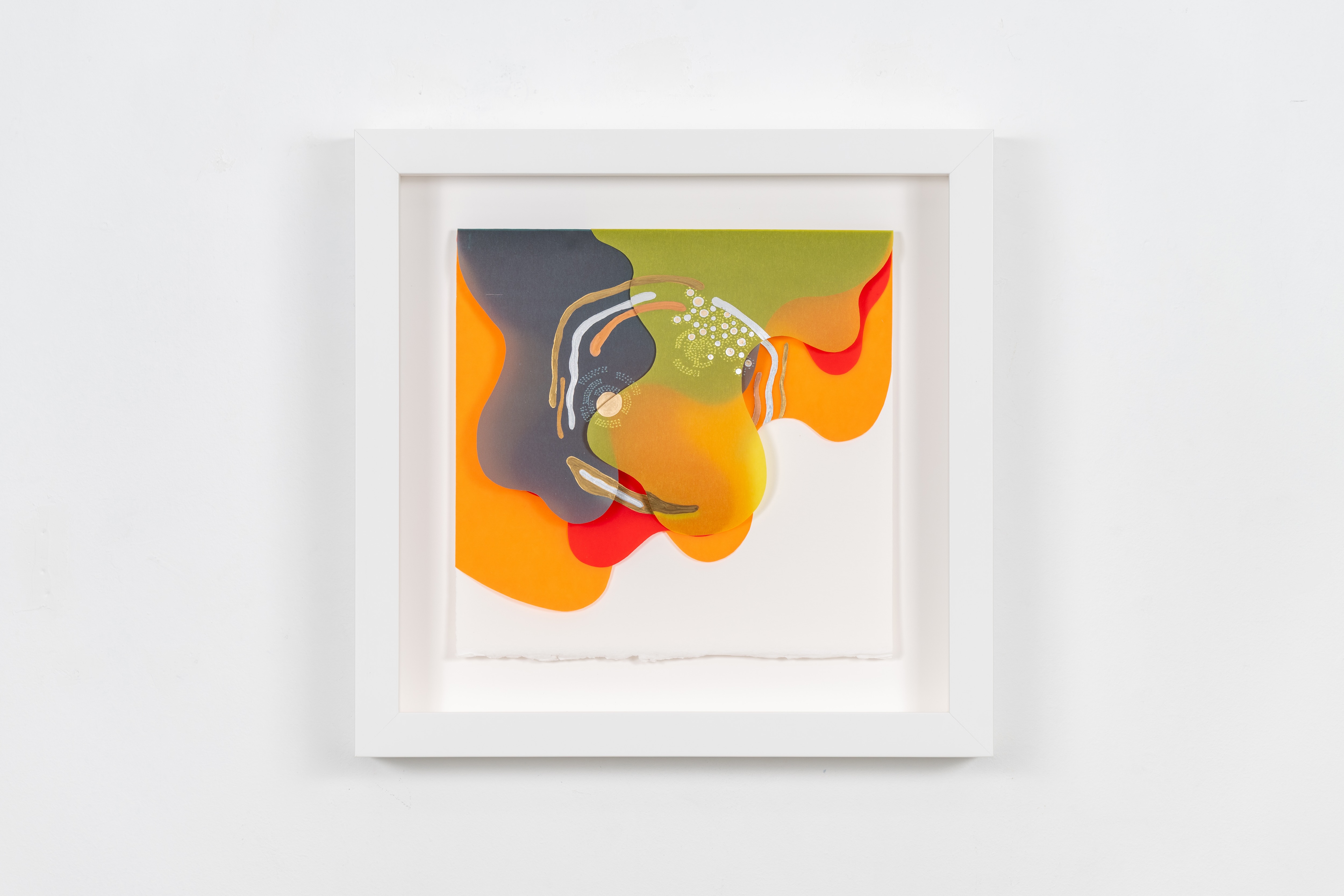
Framed: 36.2 x 37 cm; 14 1/4 x 14 5/8 in
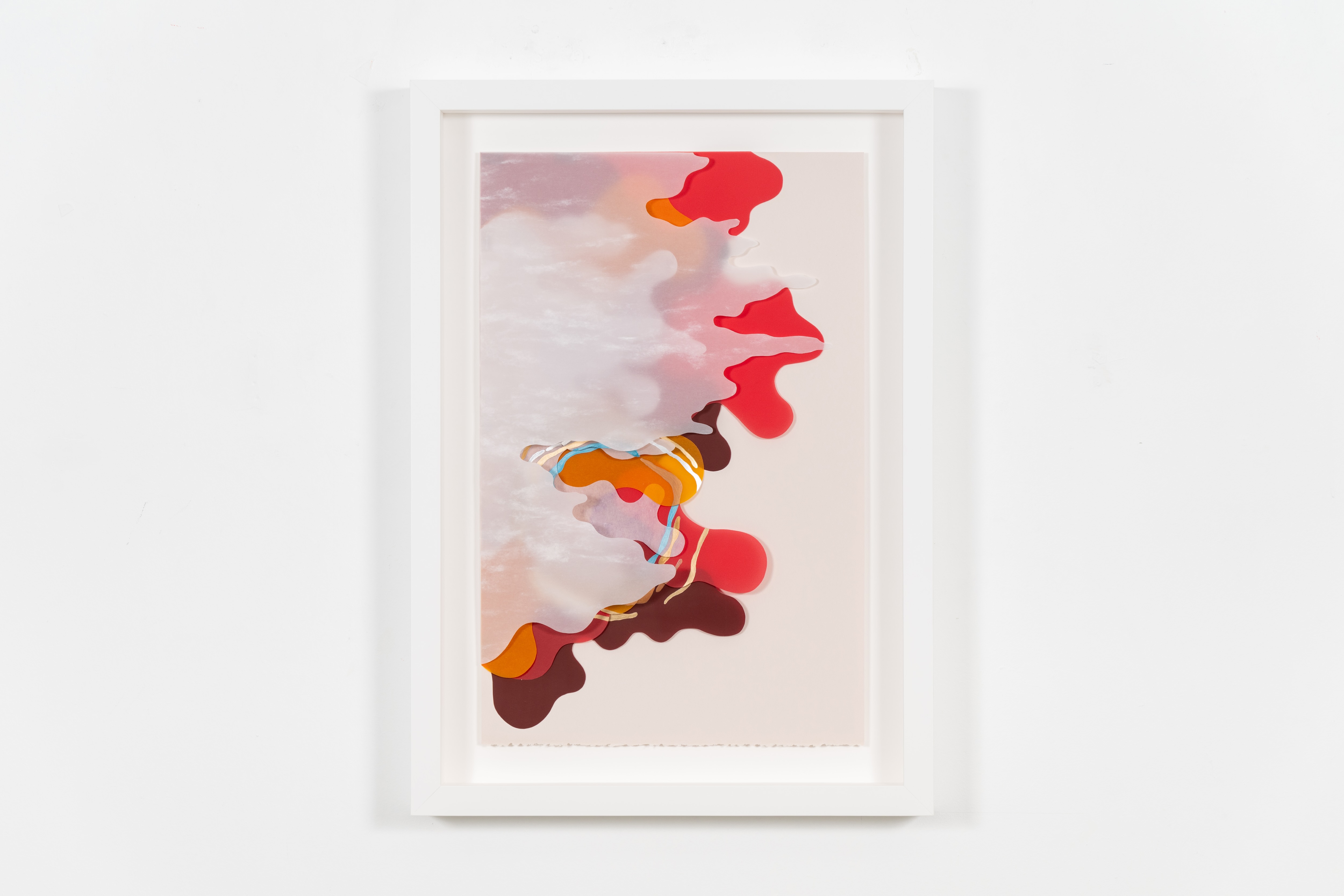
Framed: 62.5 x 44.5 cm; 24 5/8 x 17 1/2 in
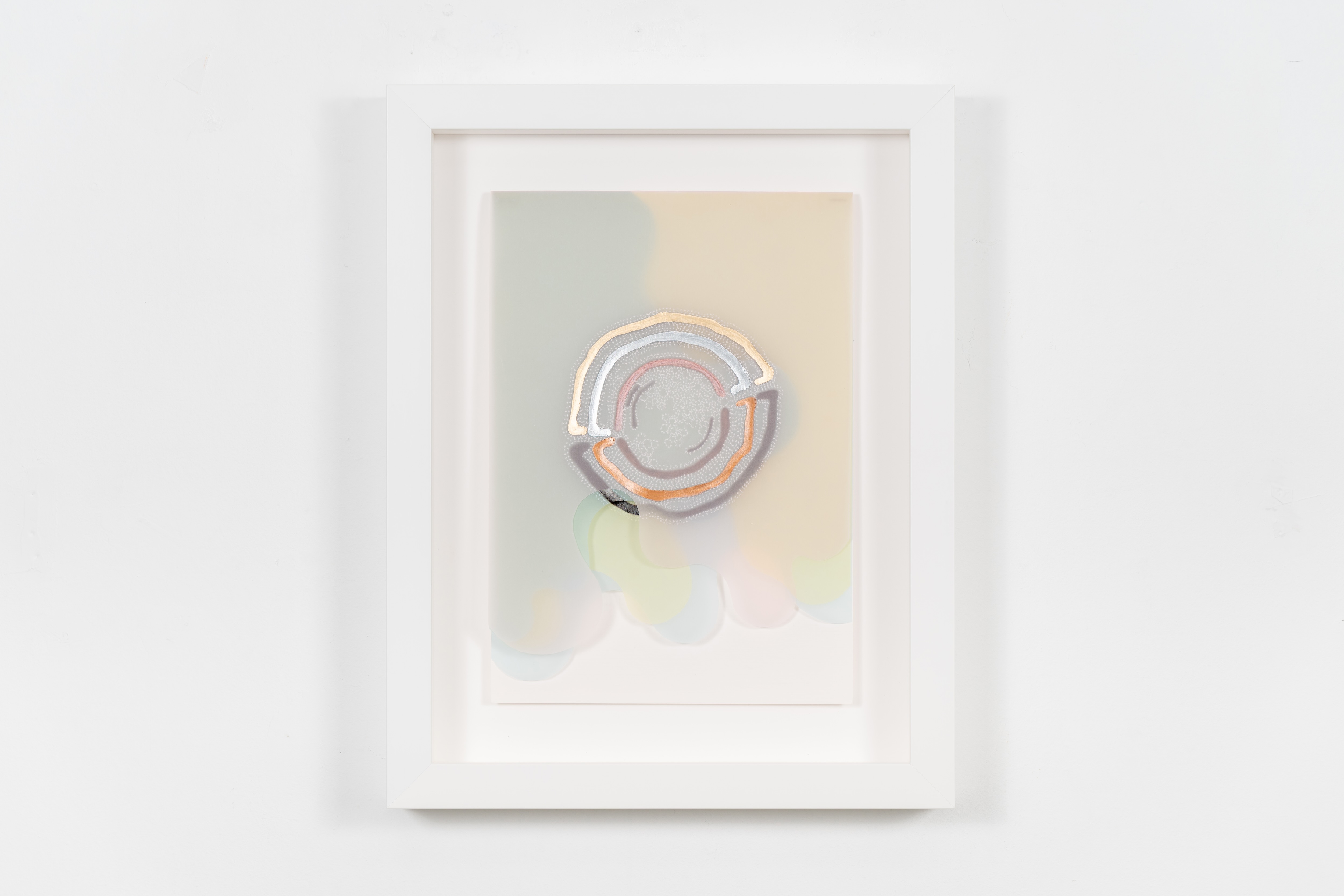
Framed: 41.5 x 32.5 cm; 16 3/8 x 12 3/4 in
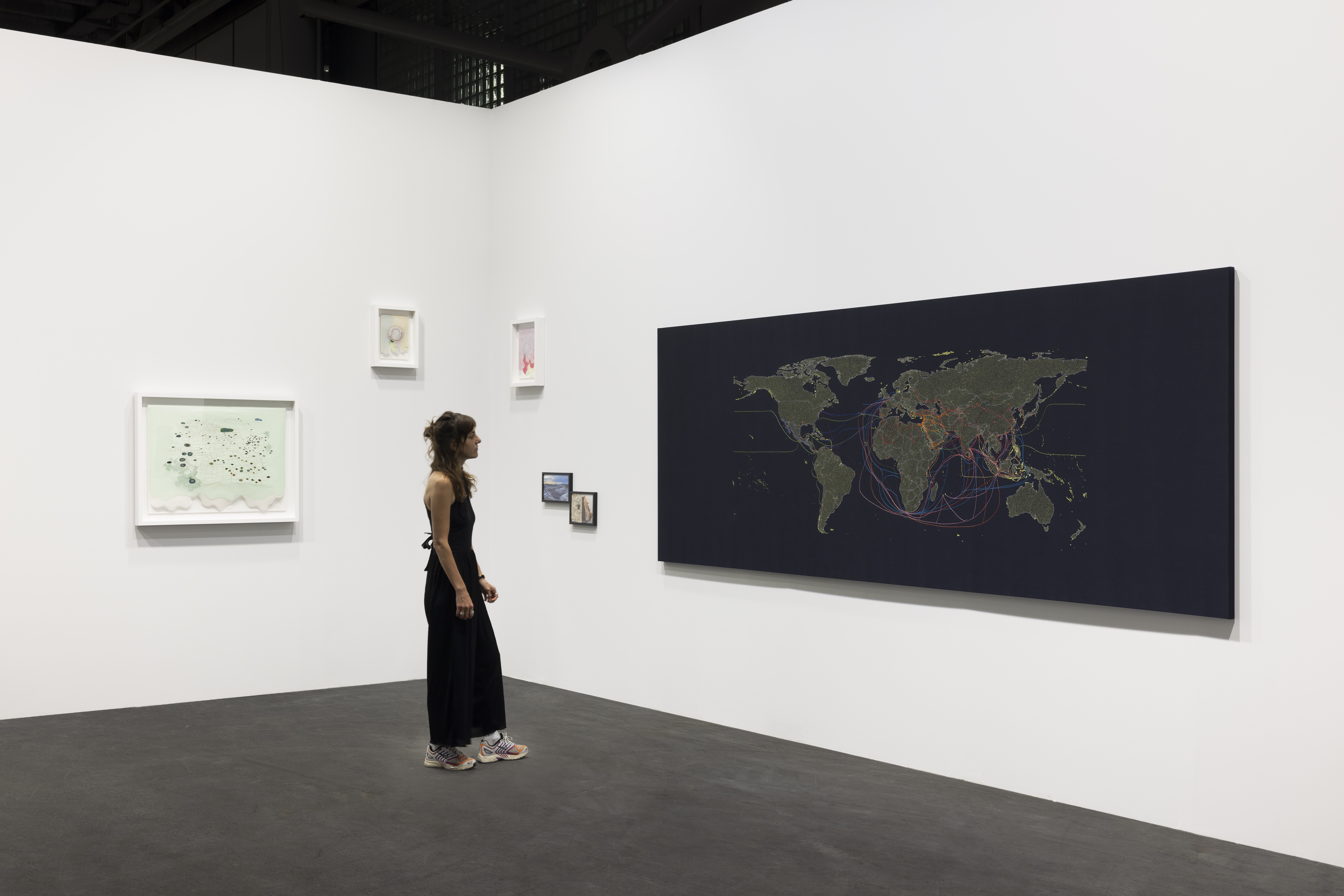
Installation view, Tiffany Chung at Unlimited, Art Basel Basel 2025.
Photo by Andrea Rossetti.
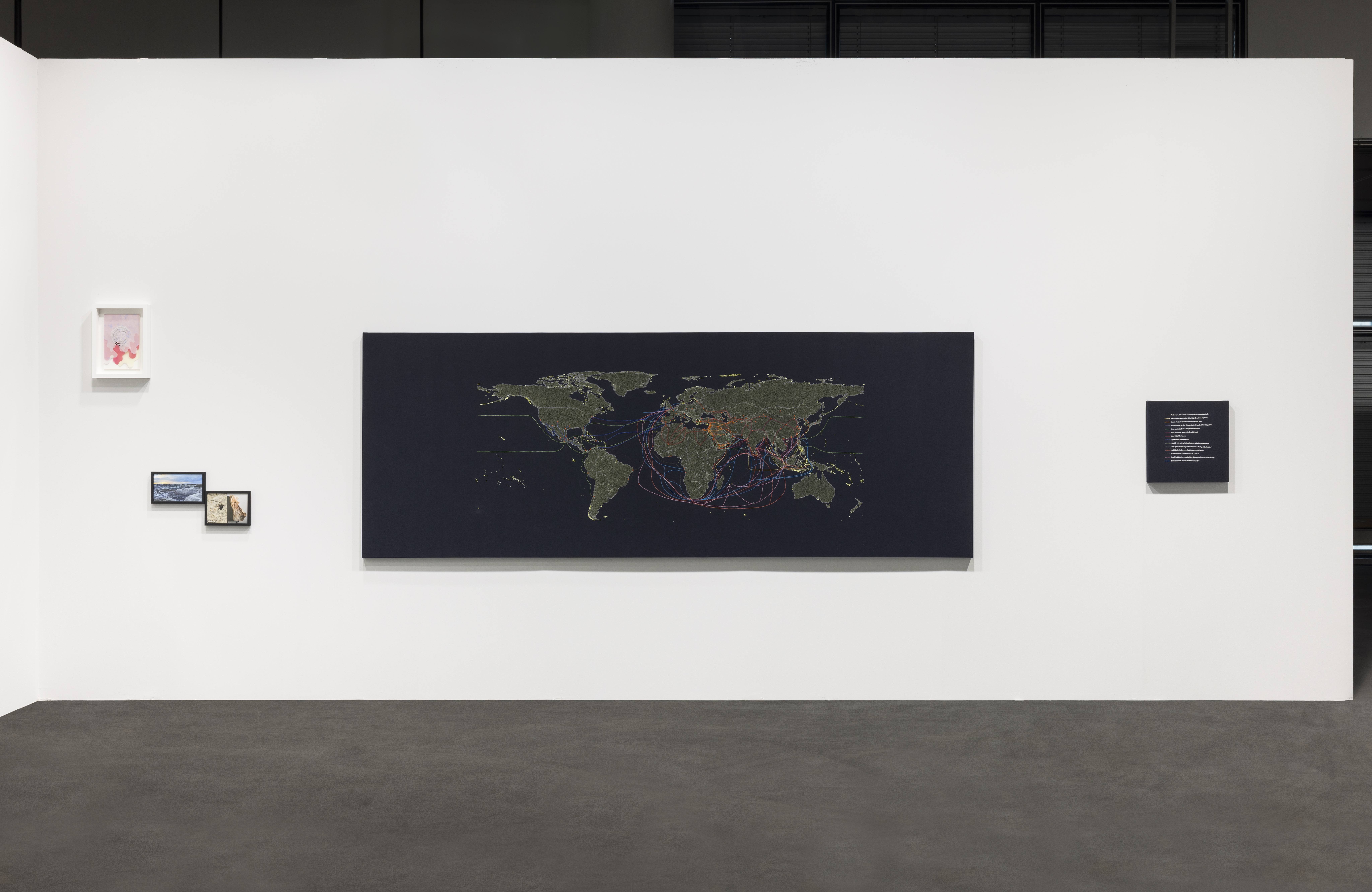
Installation view, Tiffany Chung at Unlimited, Art Basel Basel 2025.
Photo by Andrea Rossetti.
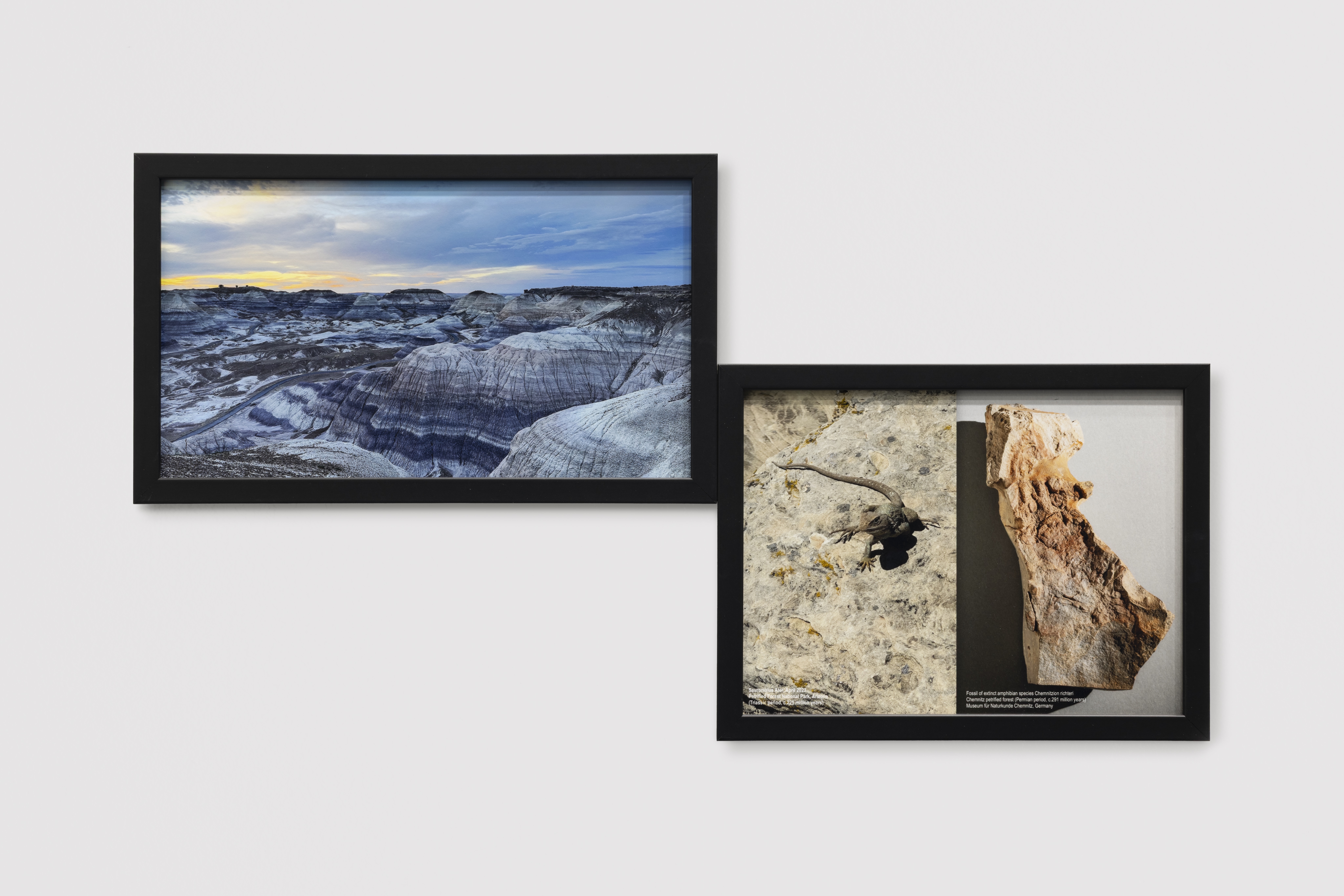
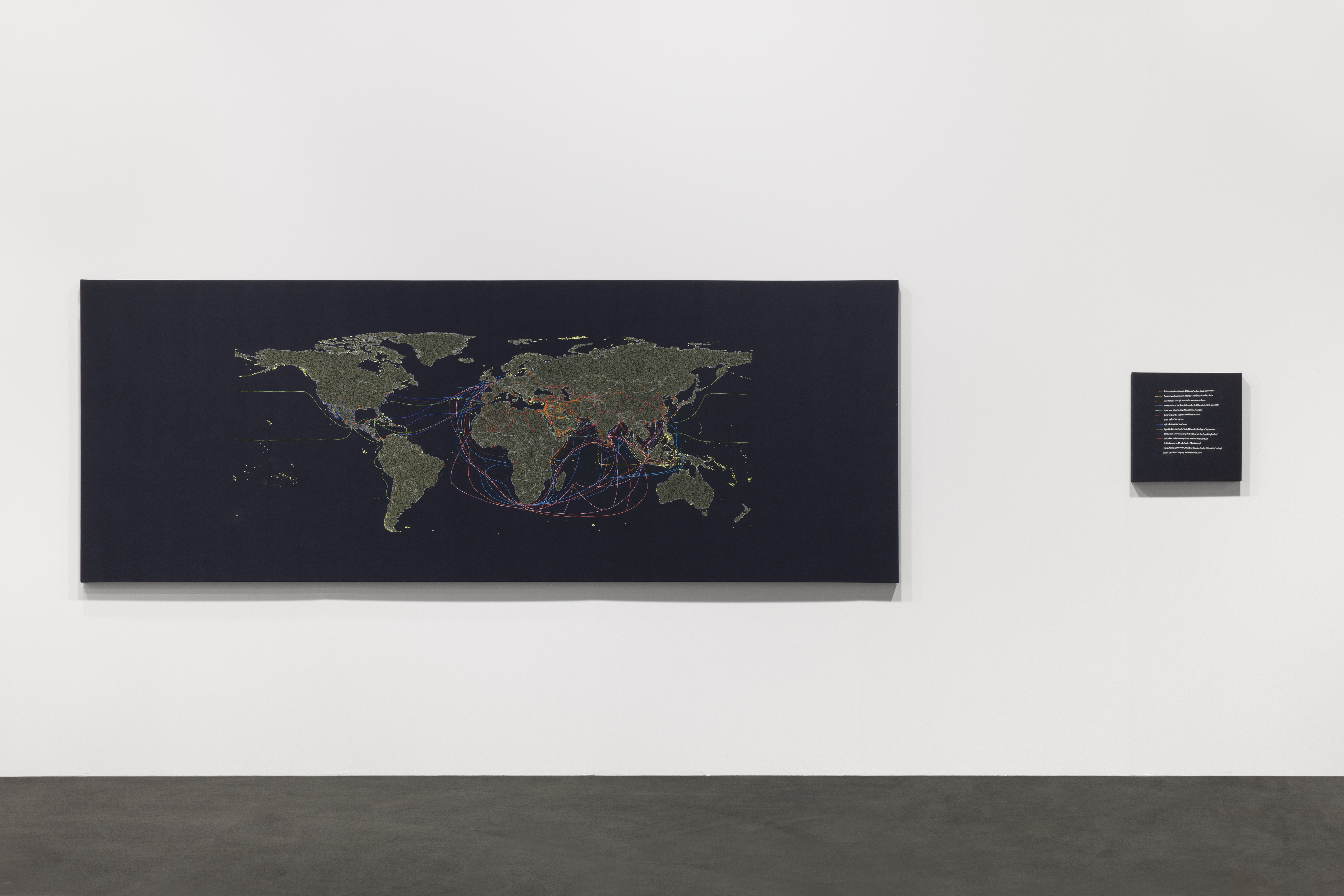
55 1/8 x 149 5/8 in, 23 5/8 x 23 5/8 in
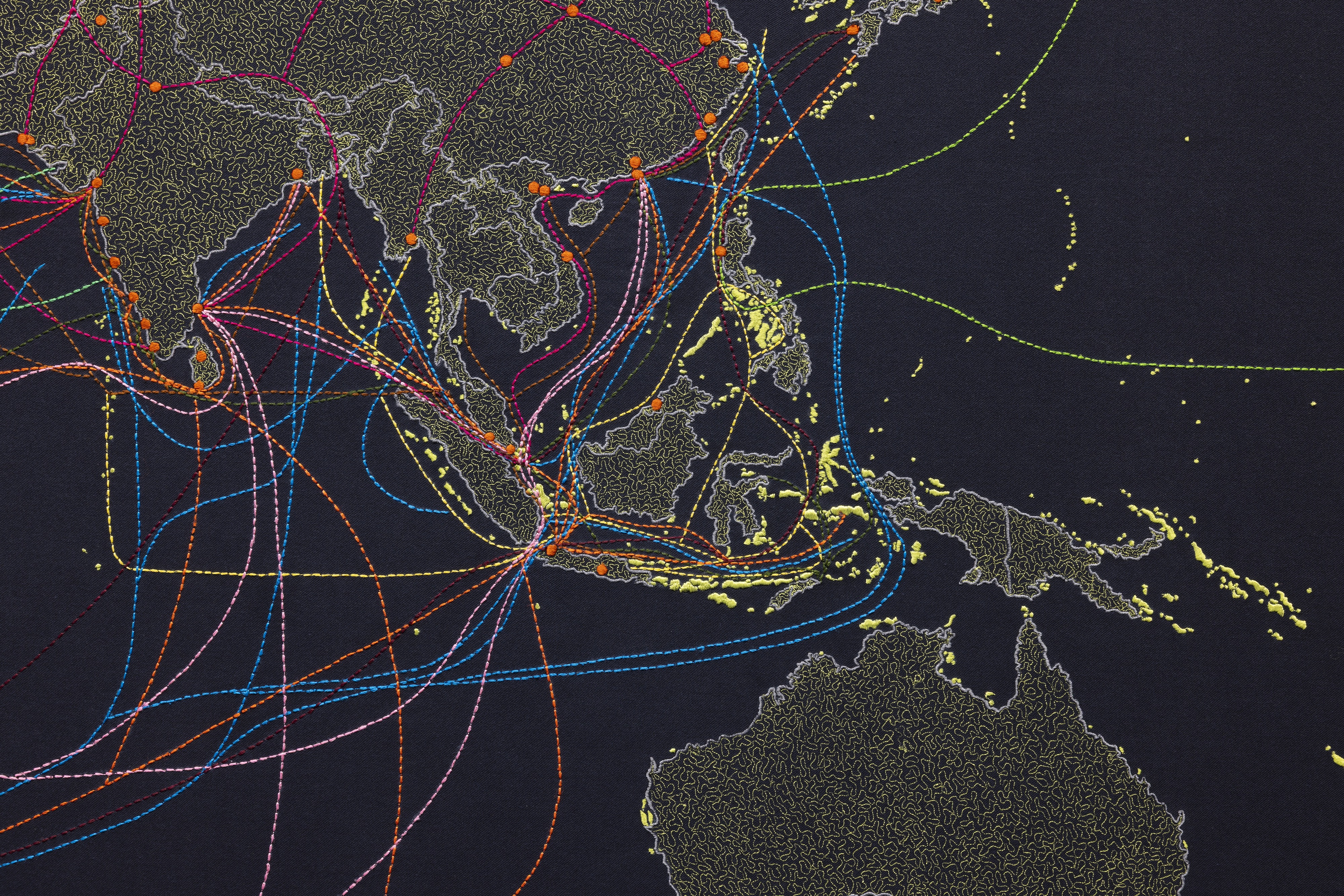
55 1/8 x 149 5/8 in, 23 5/8 x 23 5/8 in
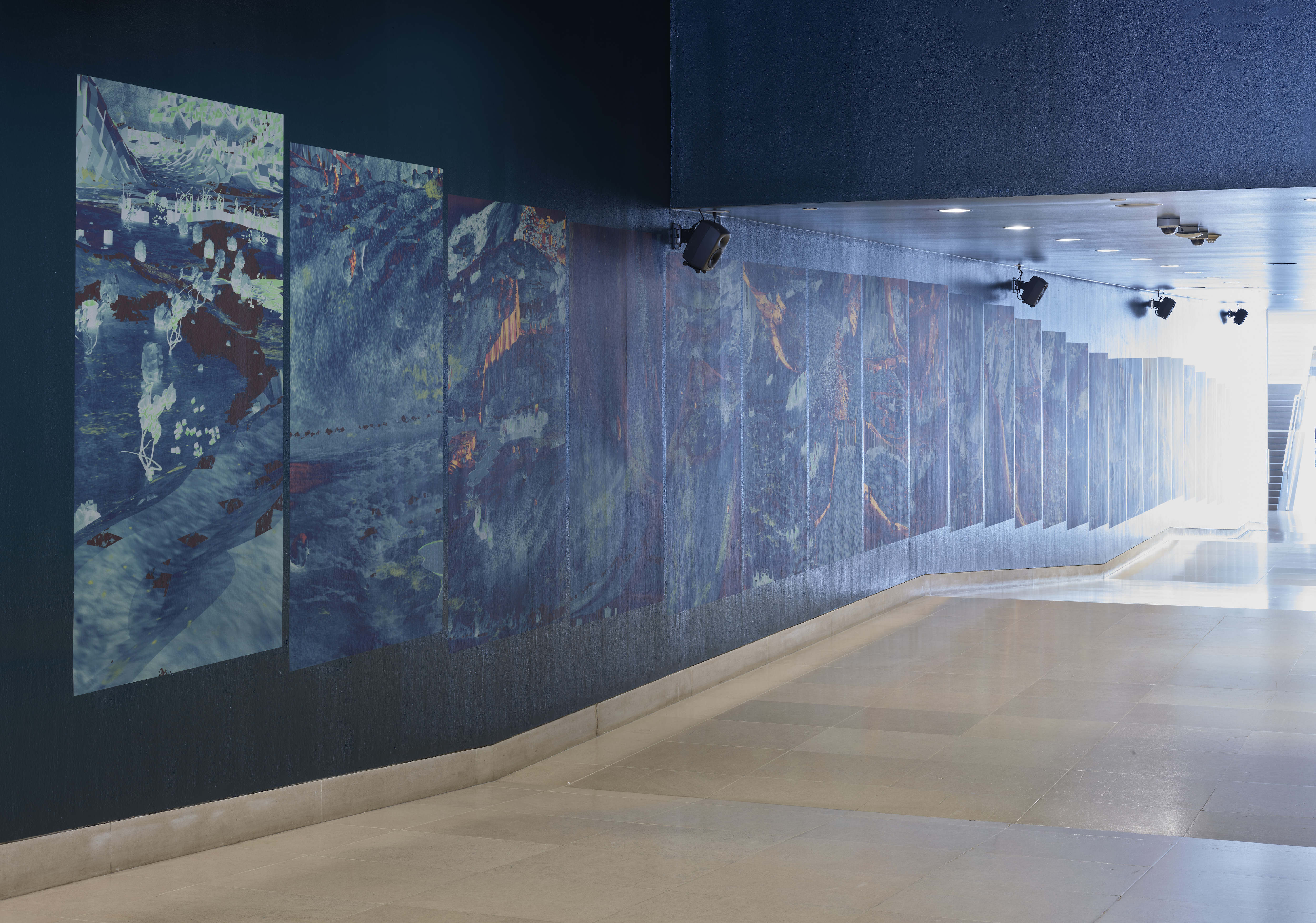
Rise Into the Atmosphere was a collaboration between Tiffany Chung and 28 international participants:
Omran Adrah, Jose Antonio Agüero, Ahmad Aljarrah, Julianna Banks, Drishti Bathija, Nipun Bhatnagar, Isaac Hernández Campos, Jose Rodrigo Contreras, Sara Fakhry, Sebastián Izaciga, Robbie Koeck, Nelleke Kuipers, Yuna Lee, Meiling Liu, Ankita Mathew, Yousseff Moustafa, Mario Norton, Alliyah Qualls, Renz Ren, Randy Reynolds, Pablo Schuller, Nimrod Schwartz, Aviram Spies, Shankara Srikantan, Manos Stratis, Tala Sukkar, Edwin Toh, and Lucas Zapiola.
Image courtesy of the artist and Dallas Museum of Art.
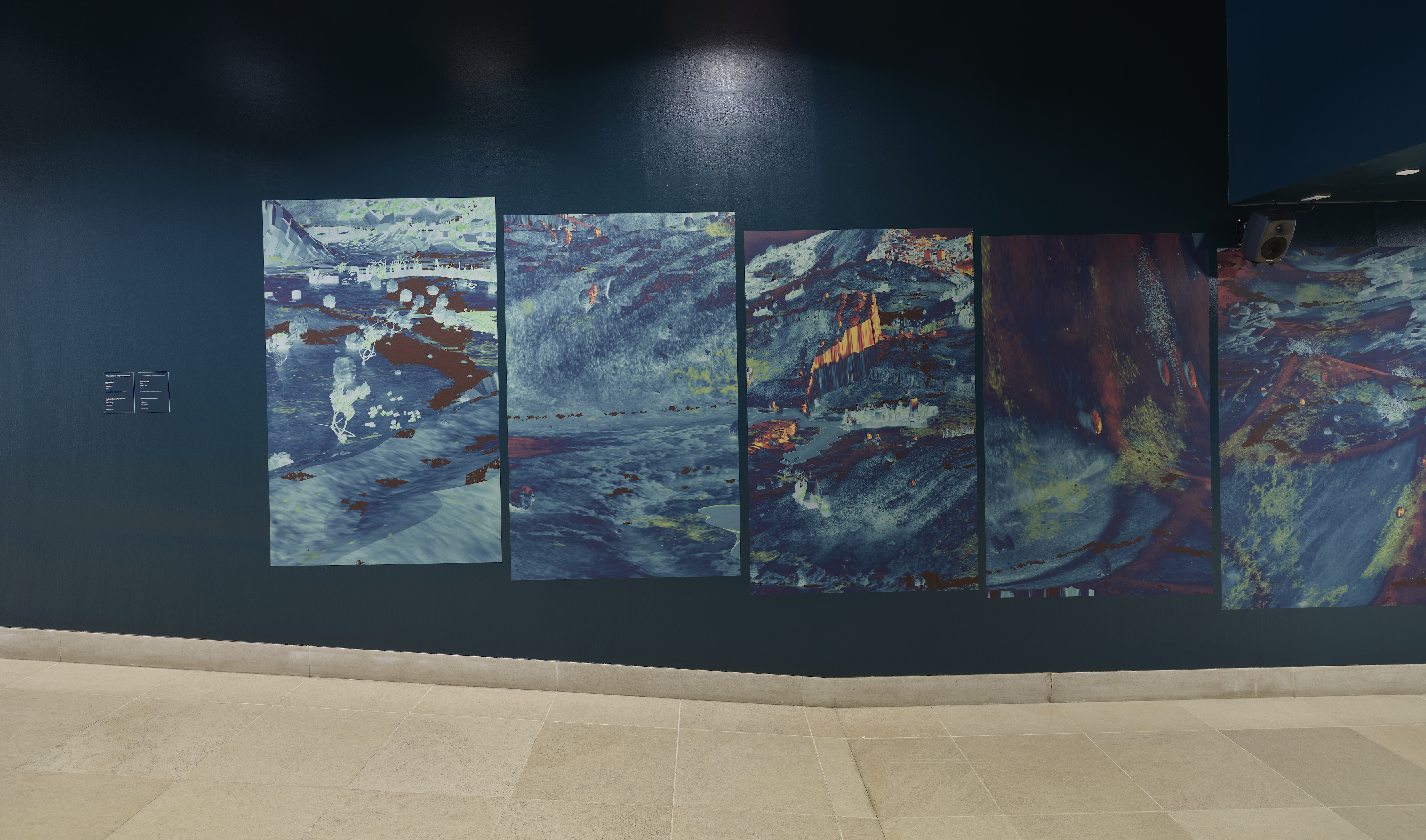
Rise Into the Atmosphere was a collaboration between Tiffany Chung and 28 international participants:
Omran Adrah, Jose Antonio Agüero, Ahmad Aljarrah, Julianna Banks, Drishti Bathija, Nipun Bhatnagar, Isaac Hernández Campos, Jose Rodrigo Contreras, Sara Fakhry, Sebastián Izaciga, Robbie Koeck, Nelleke Kuipers, Yuna Lee, Meiling Liu, Ankita Mathew, Yousseff Moustafa, Mario Norton, Alliyah Qualls, Renz Ren, Randy Reynolds, Pablo Schuller, Nimrod Schwartz, Aviram Spies, Shankara Srikantan, Manos Stratis, Tala Sukkar, Edwin Toh, and Lucas Zapiola.
Image courtesy of the artist and Dallas Museum of Art.
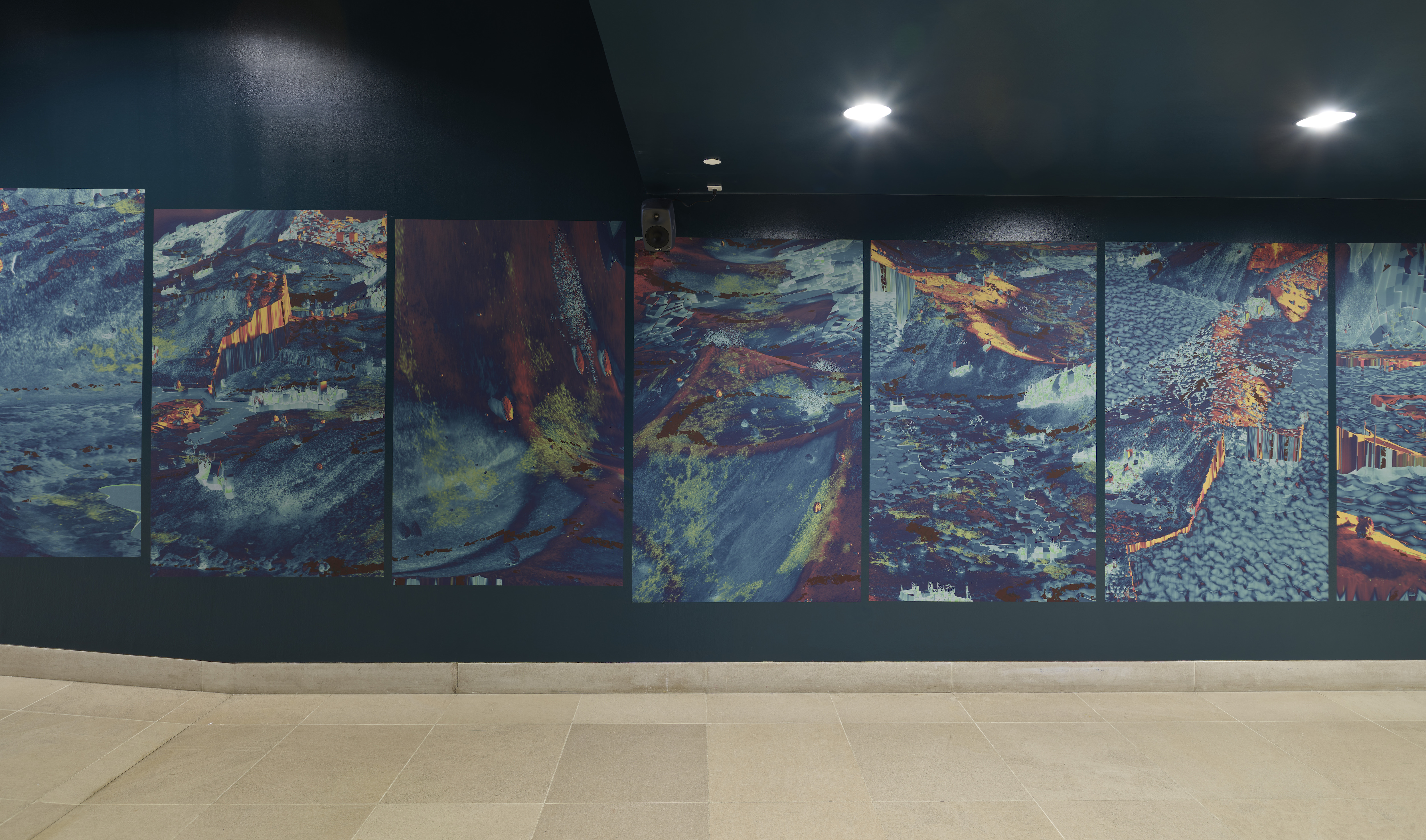
Rise Into the Atmosphere was a collaboration between Tiffany Chung and 28 international participants:
Omran Adrah, Jose Antonio Agüero, Ahmad Aljarrah, Julianna Banks, Drishti Bathija, Nipun Bhatnagar, Isaac Hernández Campos, Jose Rodrigo Contreras, Sara Fakhry, Sebastián Izaciga, Robbie Koeck, Nelleke Kuipers, Yuna Lee, Meiling Liu, Ankita Mathew, Yousseff Moustafa, Mario Norton, Alliyah Qualls, Renz Ren, Randy Reynolds, Pablo Schuller, Nimrod Schwartz, Aviram Spies, Shankara Srikantan, Manos Stratis, Tala Sukkar, Edwin Toh, and Lucas Zapiola.
Image courtesy of the artist and Dallas Museum of Art.
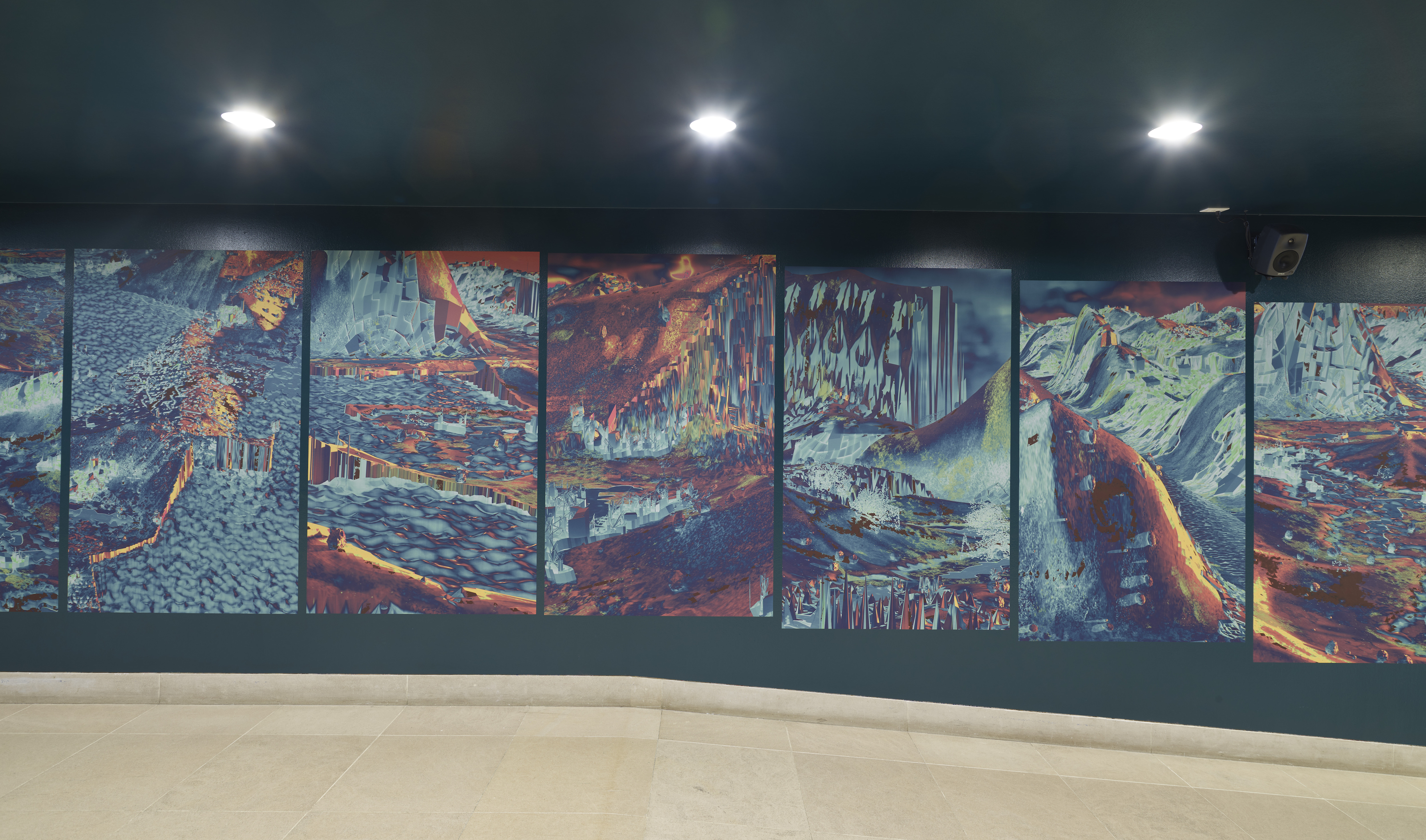
Rise Into the Atmosphere was a collaboration between Tiffany Chung and 28 international participants:
Omran Adrah, Jose Antonio Agüero, Ahmad Aljarrah, Julianna Banks, Drishti Bathija, Nipun Bhatnagar, Isaac Hernández Campos, Jose Rodrigo Contreras, Sara Fakhry, Sebastián Izaciga, Robbie Koeck, Nelleke Kuipers, Yuna Lee, Meiling Liu, Ankita Mathew, Yousseff Moustafa, Mario Norton, Alliyah Qualls, Renz Ren, Randy Reynolds, Pablo Schuller, Nimrod Schwartz, Aviram Spies, Shankara Srikantan, Manos Stratis, Tala Sukkar, Edwin Toh, and Lucas Zapiola.
Image courtesy of the artist and Dallas Museum of Art.
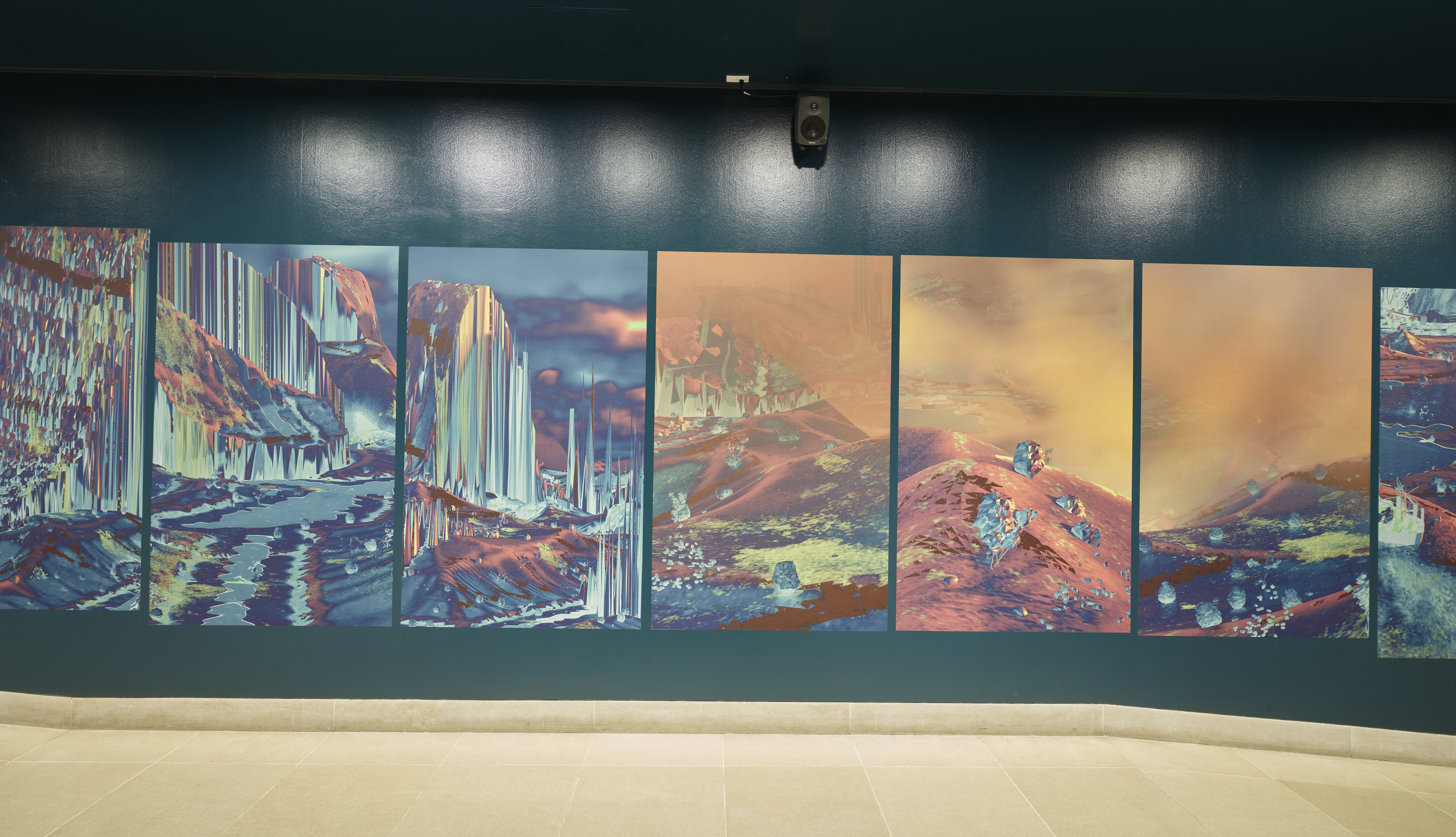
Rise Into the Atmosphere was a collaboration between Tiffany Chung and 28 international participants:
Omran Adrah, Jose Antonio Agüero, Ahmad Aljarrah, Julianna Banks, Drishti Bathija, Nipun Bhatnagar, Isaac Hernández Campos, Jose Rodrigo Contreras, Sara Fakhry, Sebastián Izaciga, Robbie Koeck, Nelleke Kuipers, Yuna Lee, Meiling Liu, Ankita Mathew, Yousseff Moustafa, Mario Norton, Alliyah Qualls, Renz Ren, Randy Reynolds, Pablo Schuller, Nimrod Schwartz, Aviram Spies, Shankara Srikantan, Manos Stratis, Tala Sukkar, Edwin Toh, and Lucas Zapiola.
Image courtesy of the artist and Dallas Museum of Art.
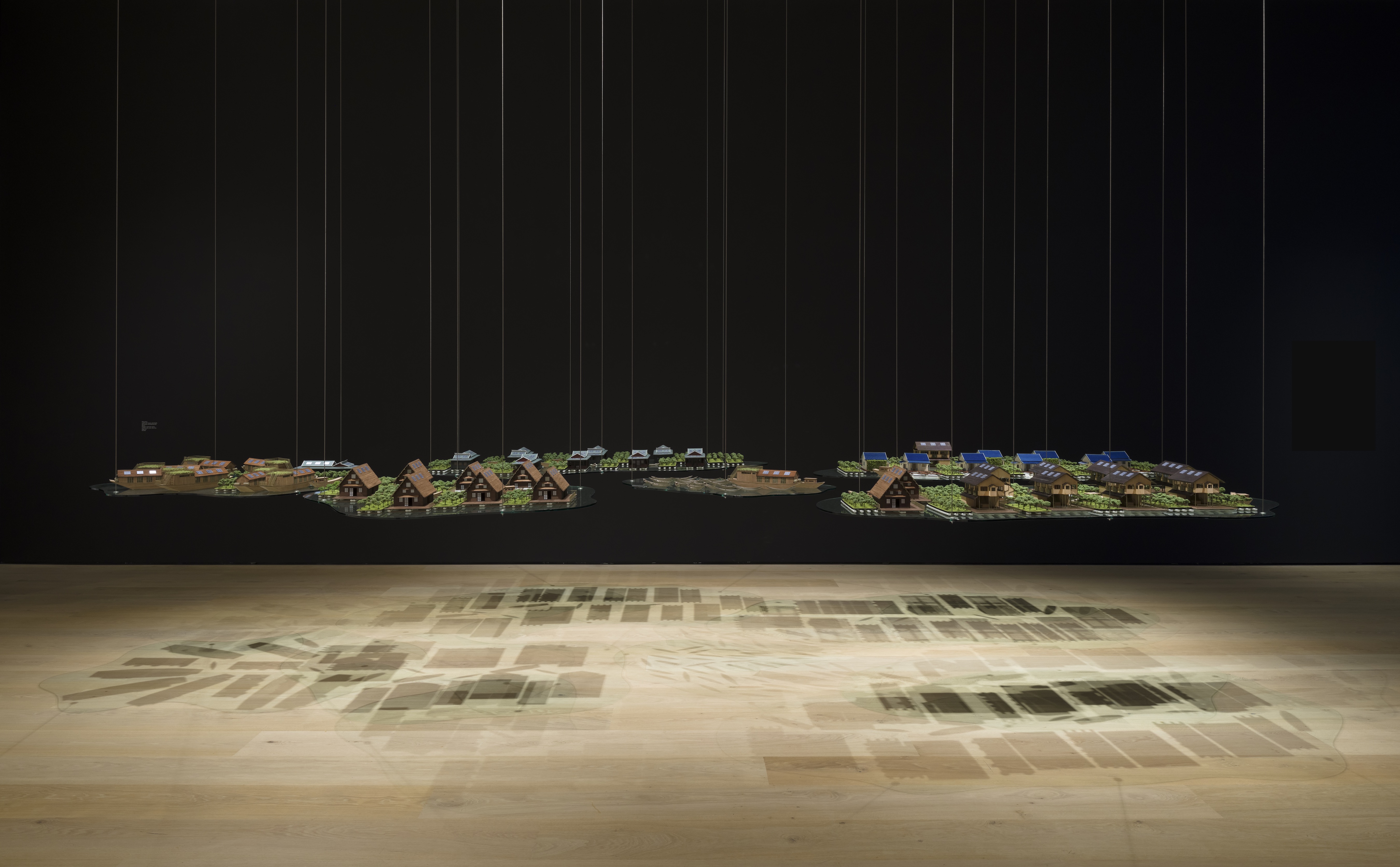
Plexiglas, wood veneer, plastic, aluminum, paint, steel, cable, foam, copper wire
236 ¼ × 118 1/8 in. (600 × 300 cm)
Installation view of “Breath(e): Toward Climate and Social Justice”, Hammer Museum, Los Angeles, USA, 2024.
Photo: Jeff McLane for Hammer Museum.
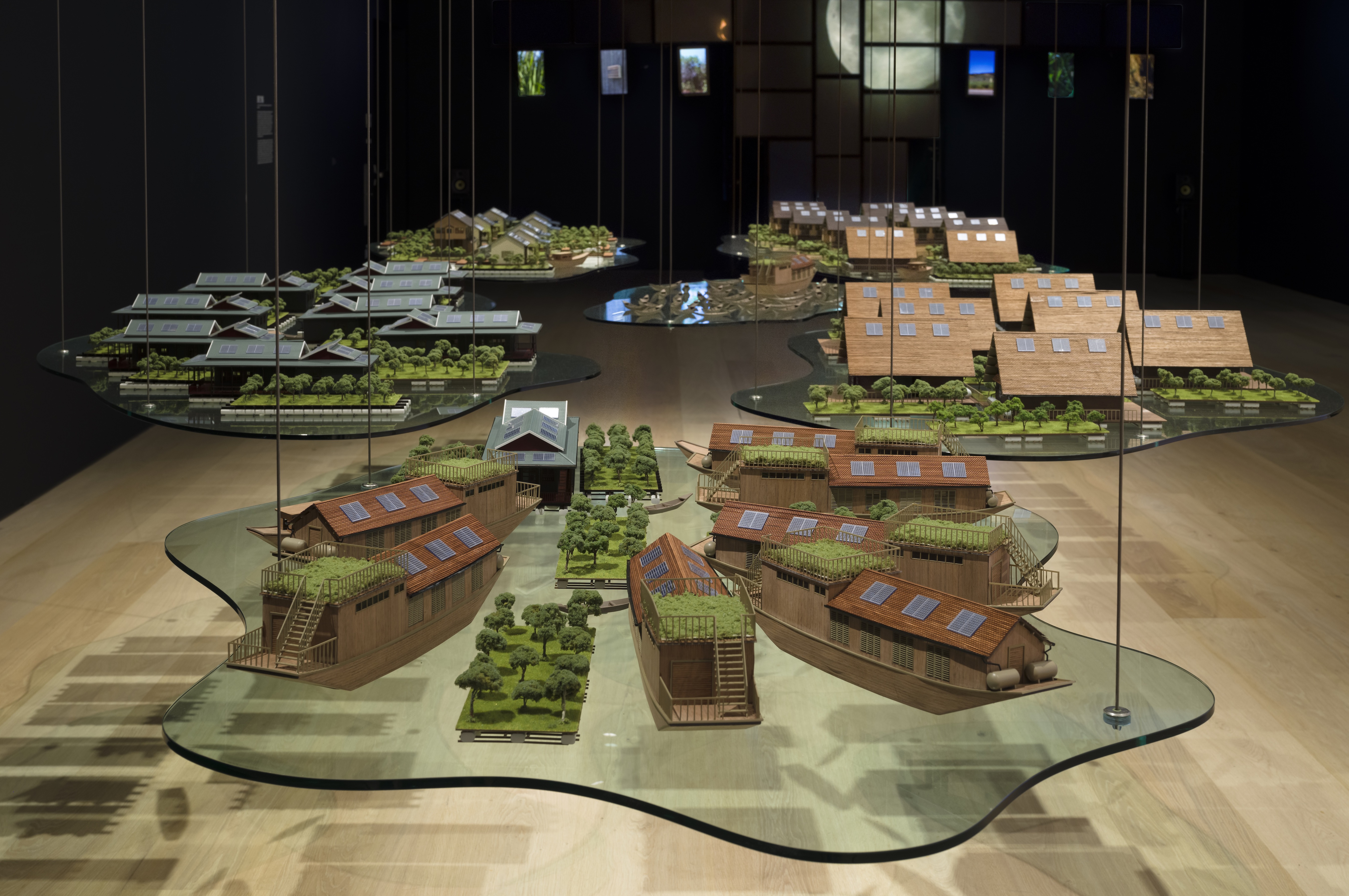
Plexiglas, wood veneer, plastic, aluminum, paint, steel, cable, foam, copper wire
236 ¼ × 118 1/8 in. (600 × 300 cm)
Installation view of “Breath(e): Toward Climate and Social Justice”, Hammer Museum, Los Angeles, USA, 2024.
Photo: Jeff McLane for Hammer Museum.
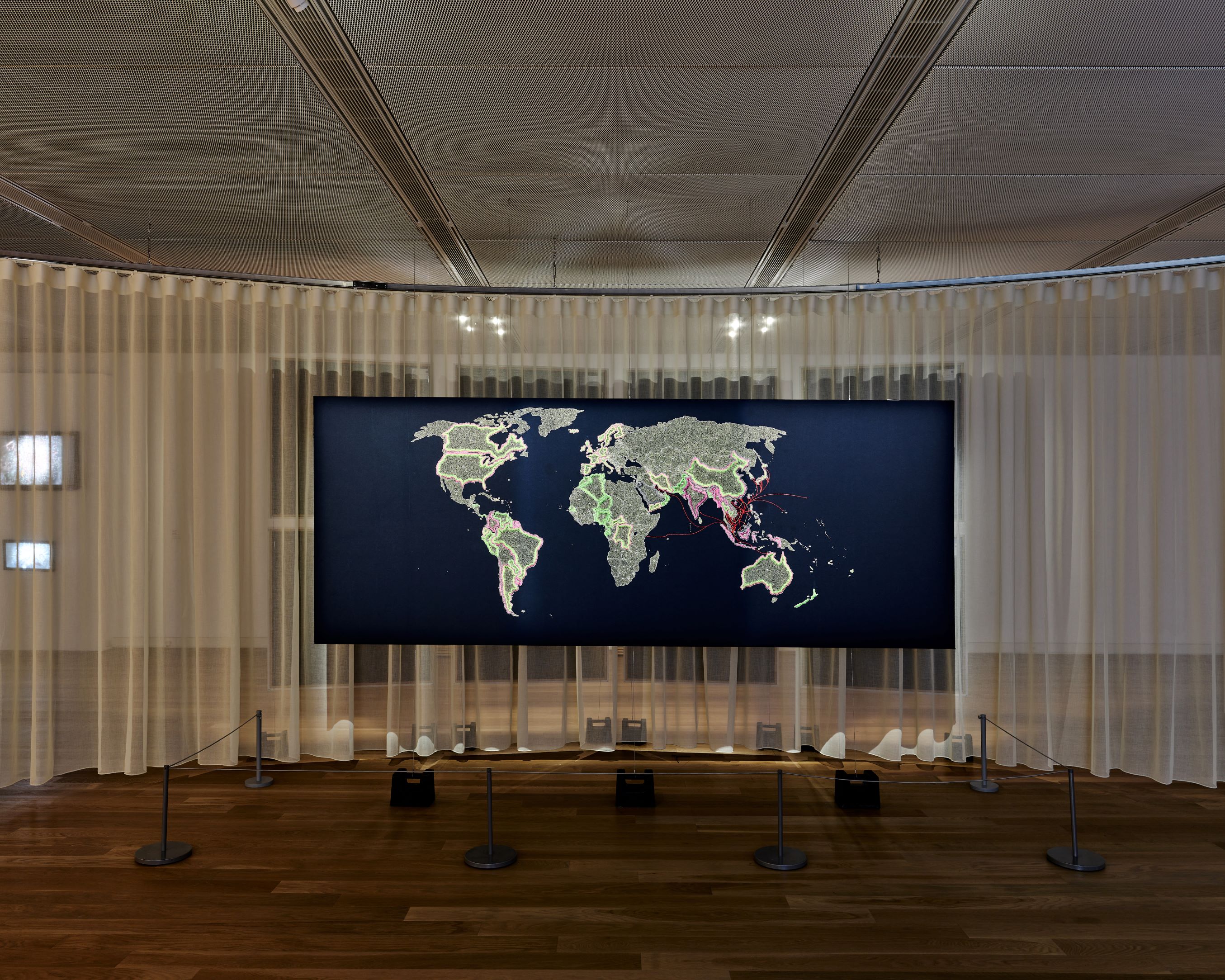
Embroidery on fabric
140 x 350 cm
Collection of Singapore Art Museum
Installation view of “Ocean in Us: Southern Visions of Women Artists”, Kaohsiung Museum of Fine Arts, Kaohsiung, Taiwan, 2024.
Photo by Studio Millspace.
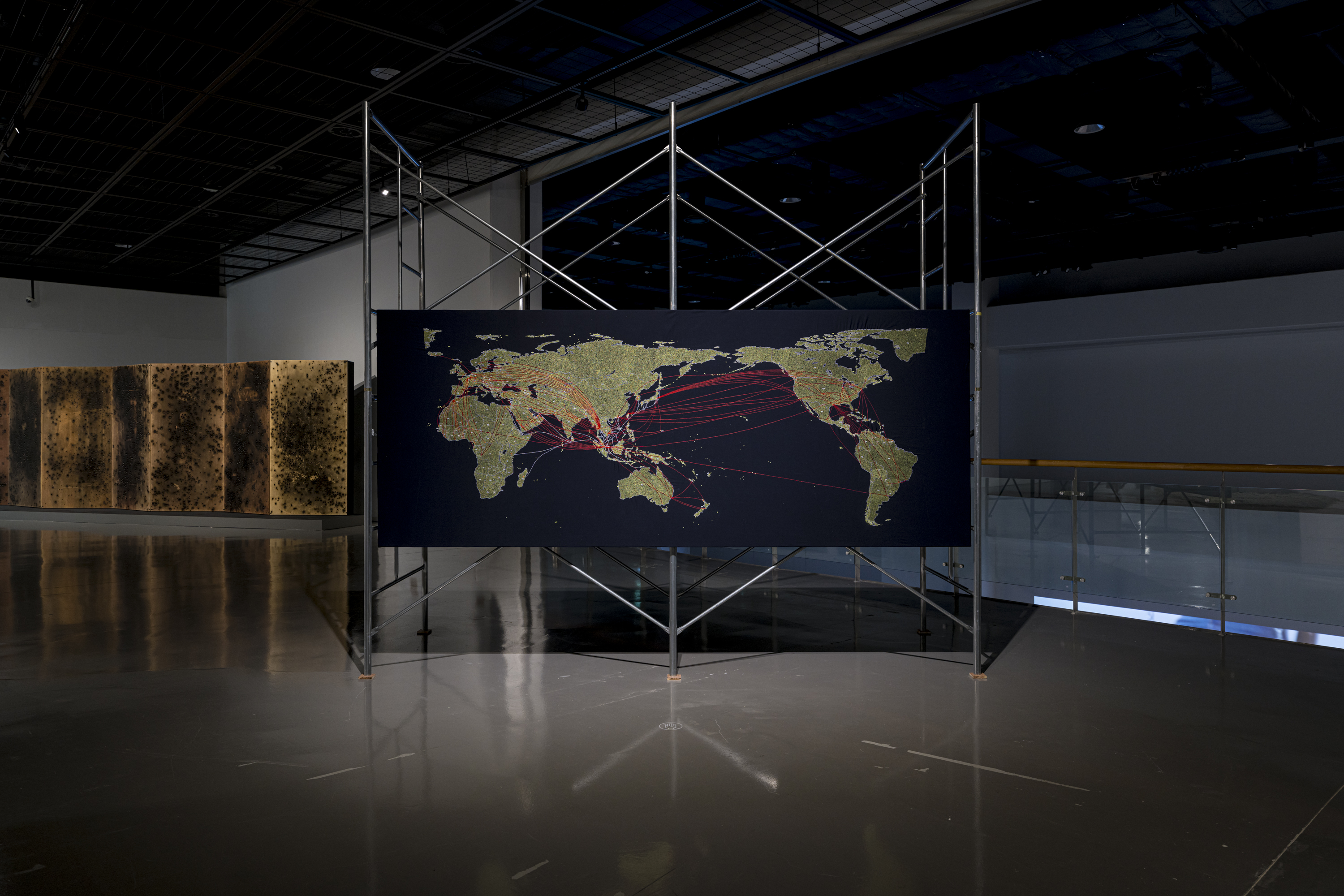
Embroidery on fabric
140 x 350 cm
Installation view, “This is Not Just Local: Tactical Practices”, Busan Museum of Contemporary Art, Busan, South Korea, 2024.
Courtesy of Busan Museum of Contemporary Art
Photo: Studio Jeongbiso
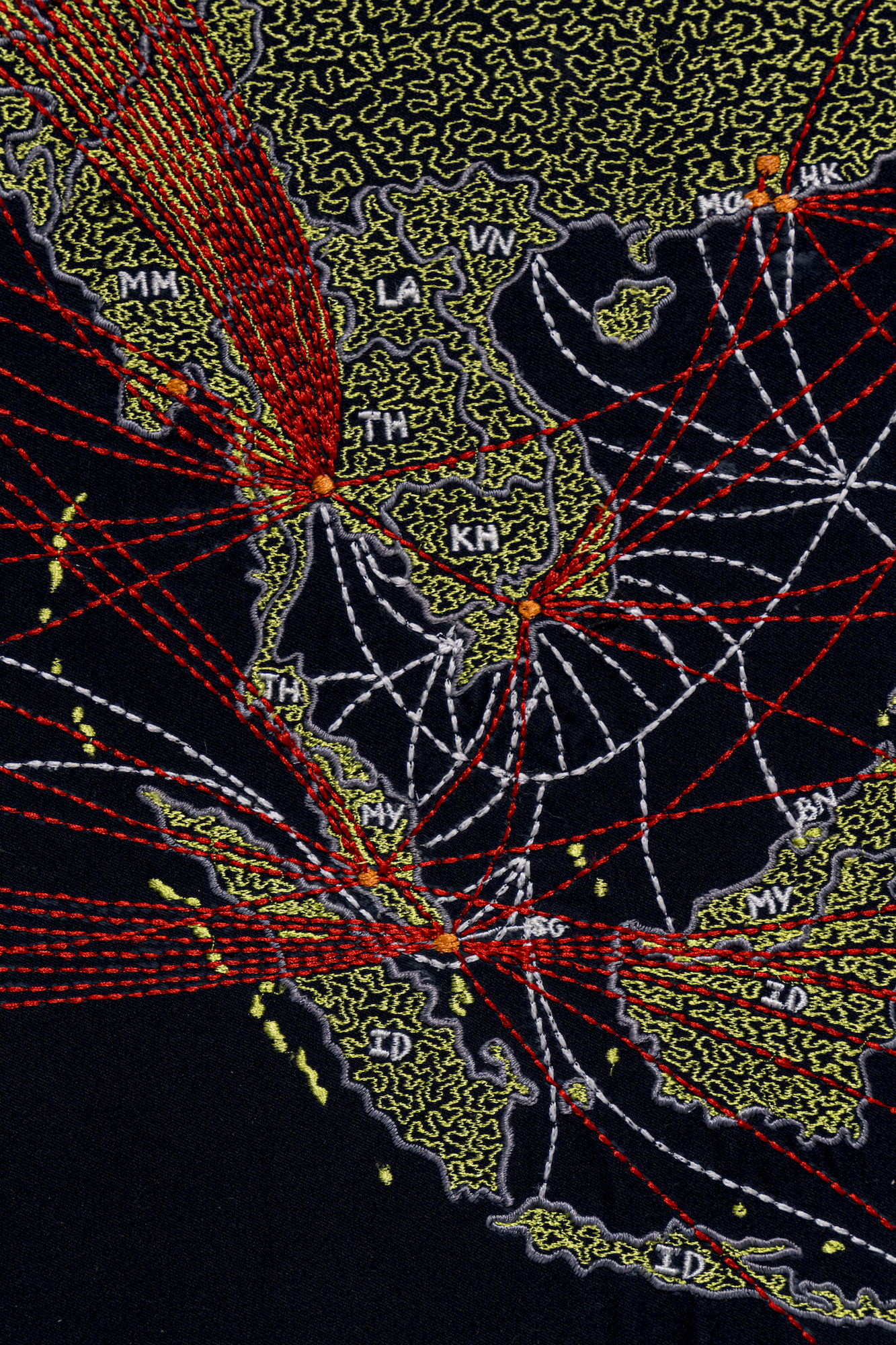
Embroidery on fabric
140 x 350 cm
Installation view, “This is Not Just Local: Tactical Practices”, Busan Museum of Contemporary Art, Busan, South Korea, 2024.
Courtesy of Busan Museum of Contemporary Art
Photo: Studio Jeongbiso
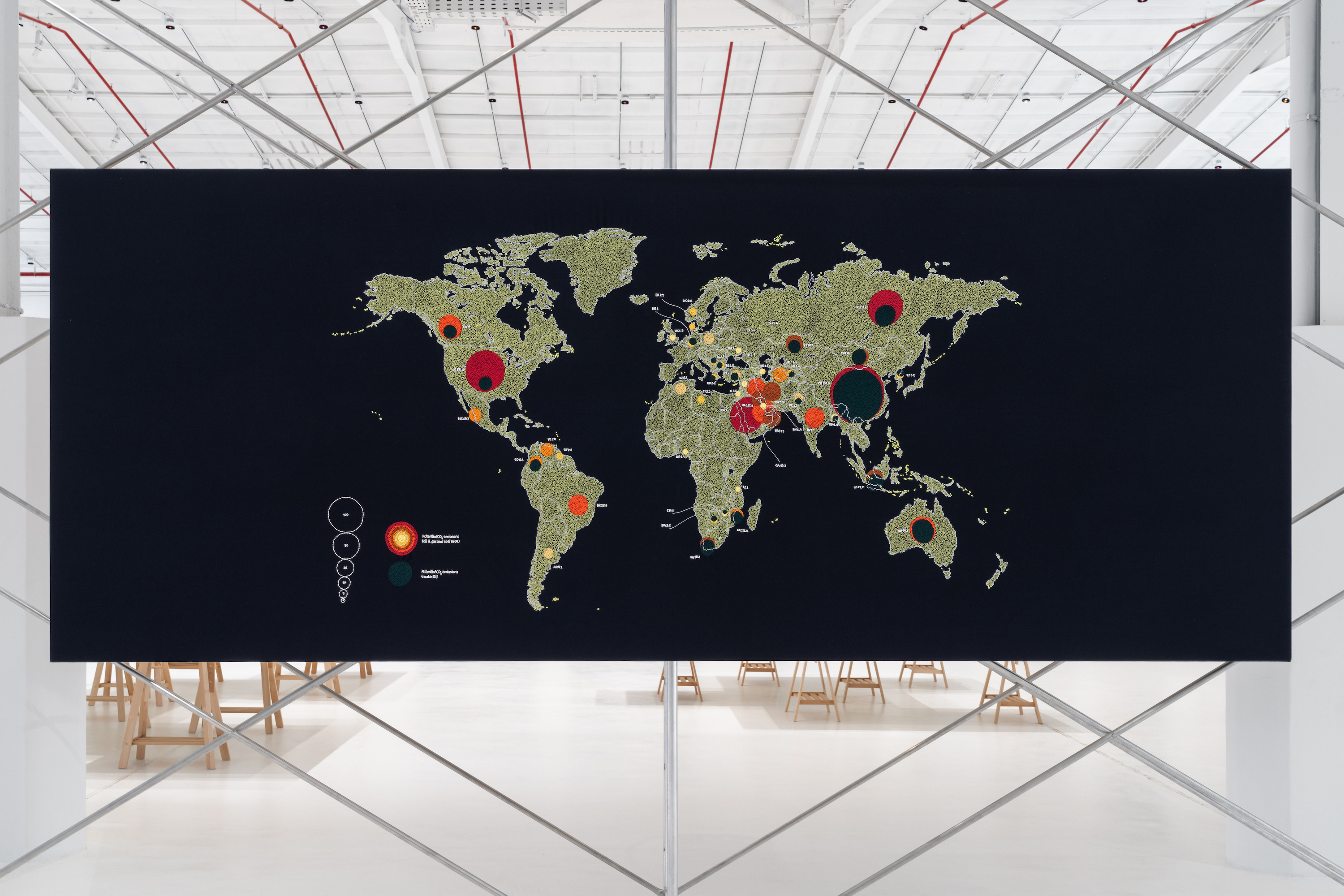
Embroidery on fabric
Installation view of “After Rain” –
the 2nd Diriyah Contemporary Art Biennale 2024.
Photo by Marco Cappelletti.
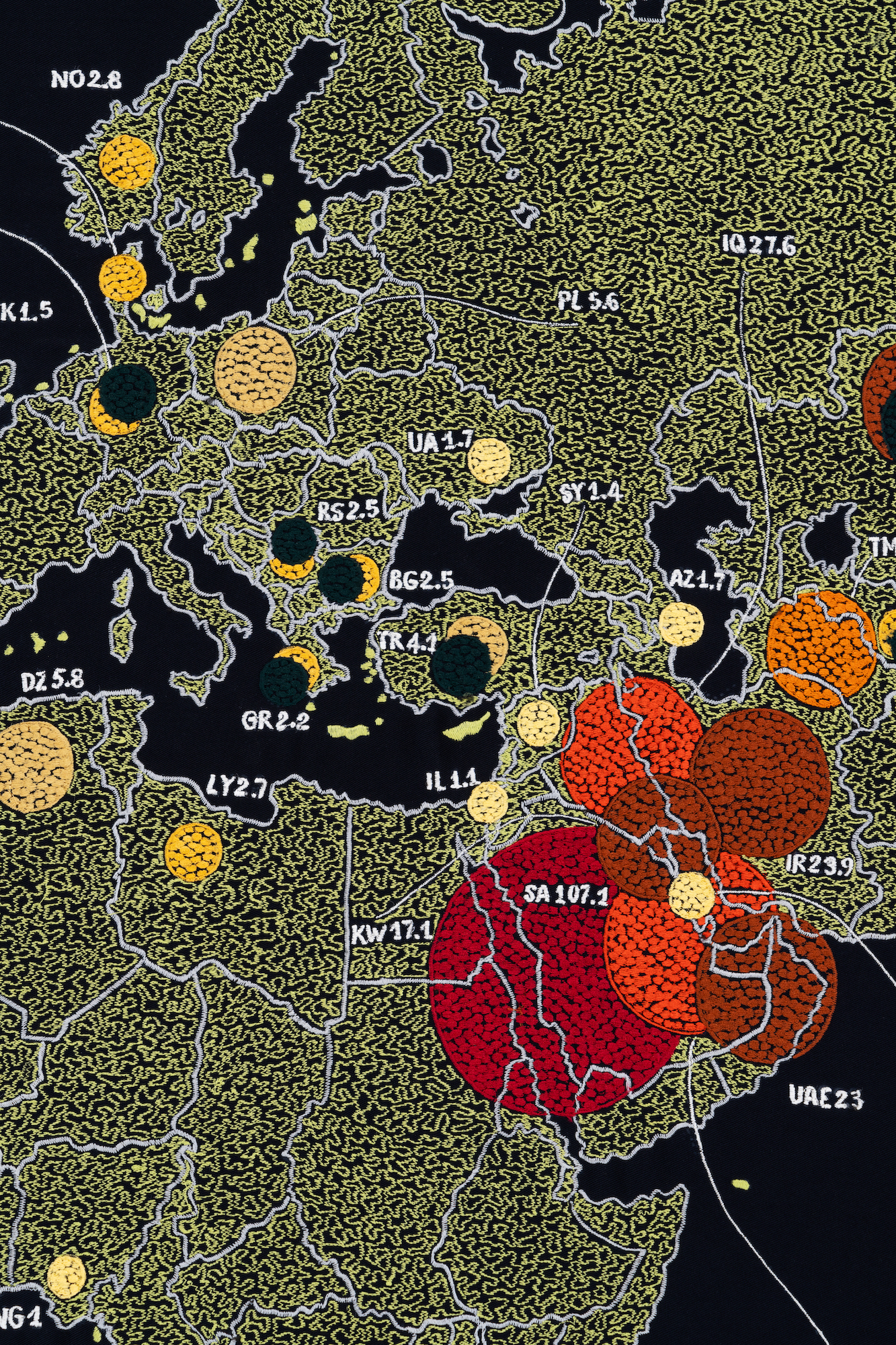
Embroidery on fabric
Installation view of “After Rain” –
the 2nd Diriyah Contemporary Art Biennale 2024.
Photo by Marco Cappelletti.
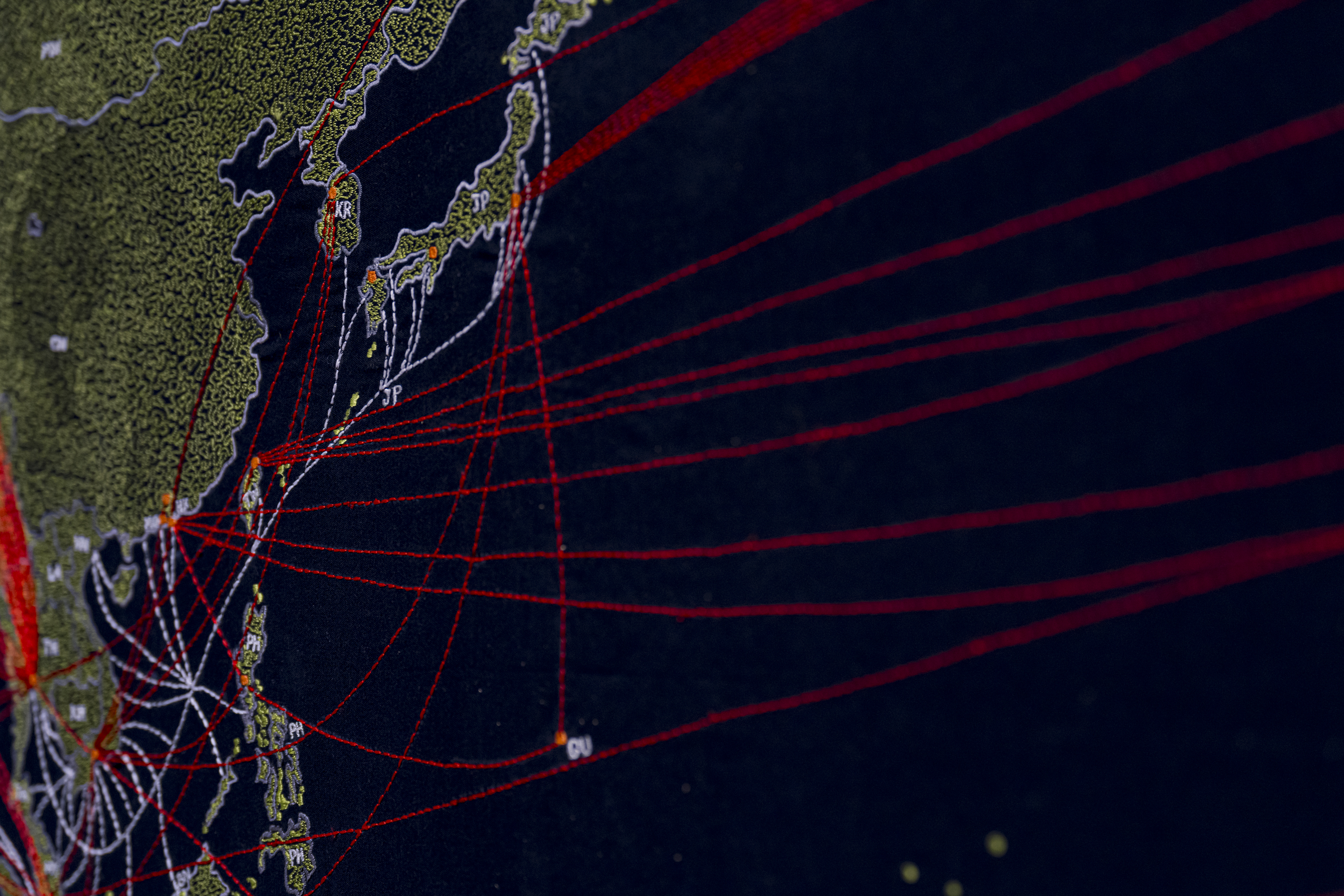
Embroidery on fabric
Installation view of “After Rain” –
the 2nd Diriyah Contemporary Art Biennale 2024.
Photo by Marco Cappelletti.
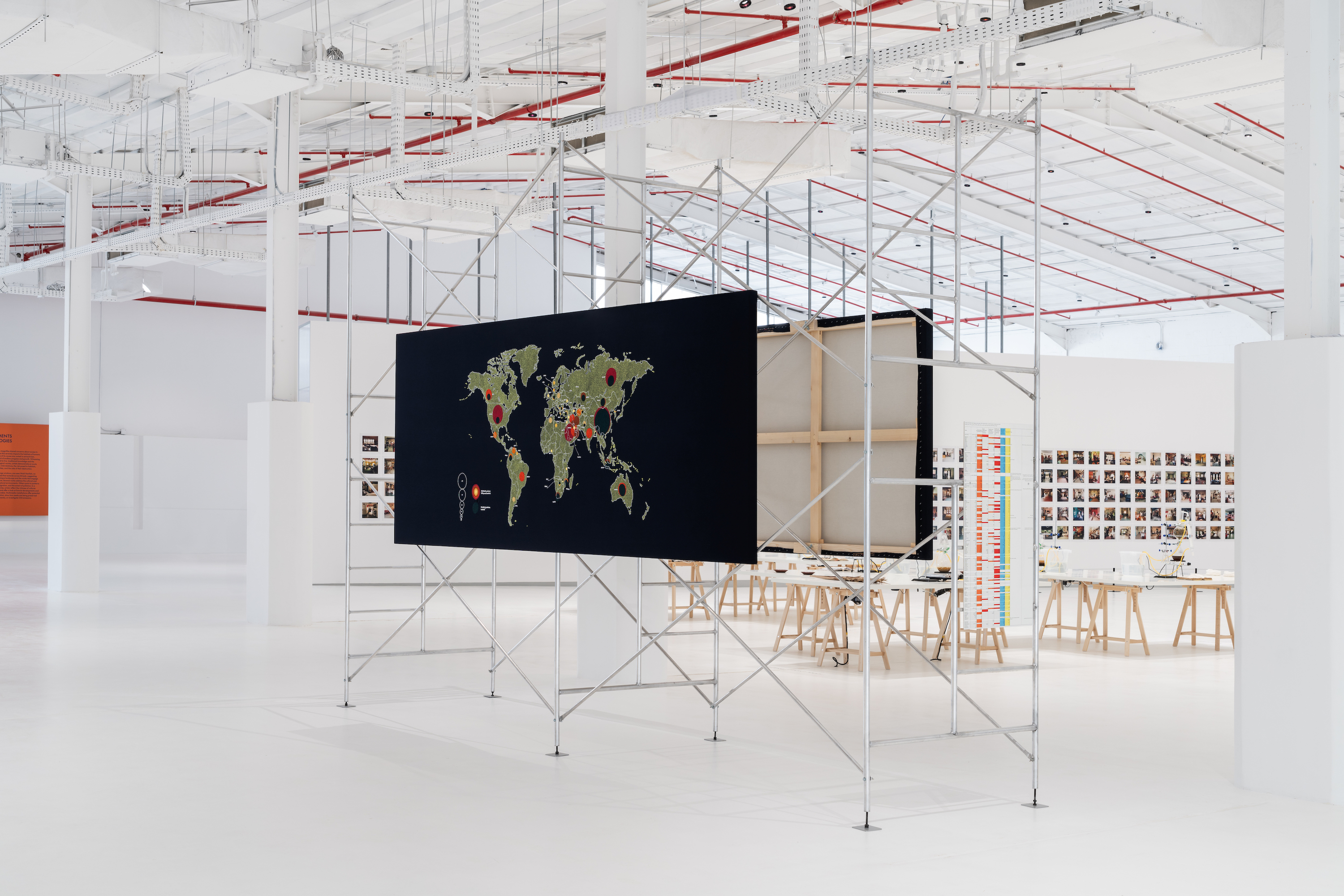
Installation view of “After Rain” –
the 2nd Diriyah Contemporary Art Biennale 2024.
Photo by Marco Cappelletti.
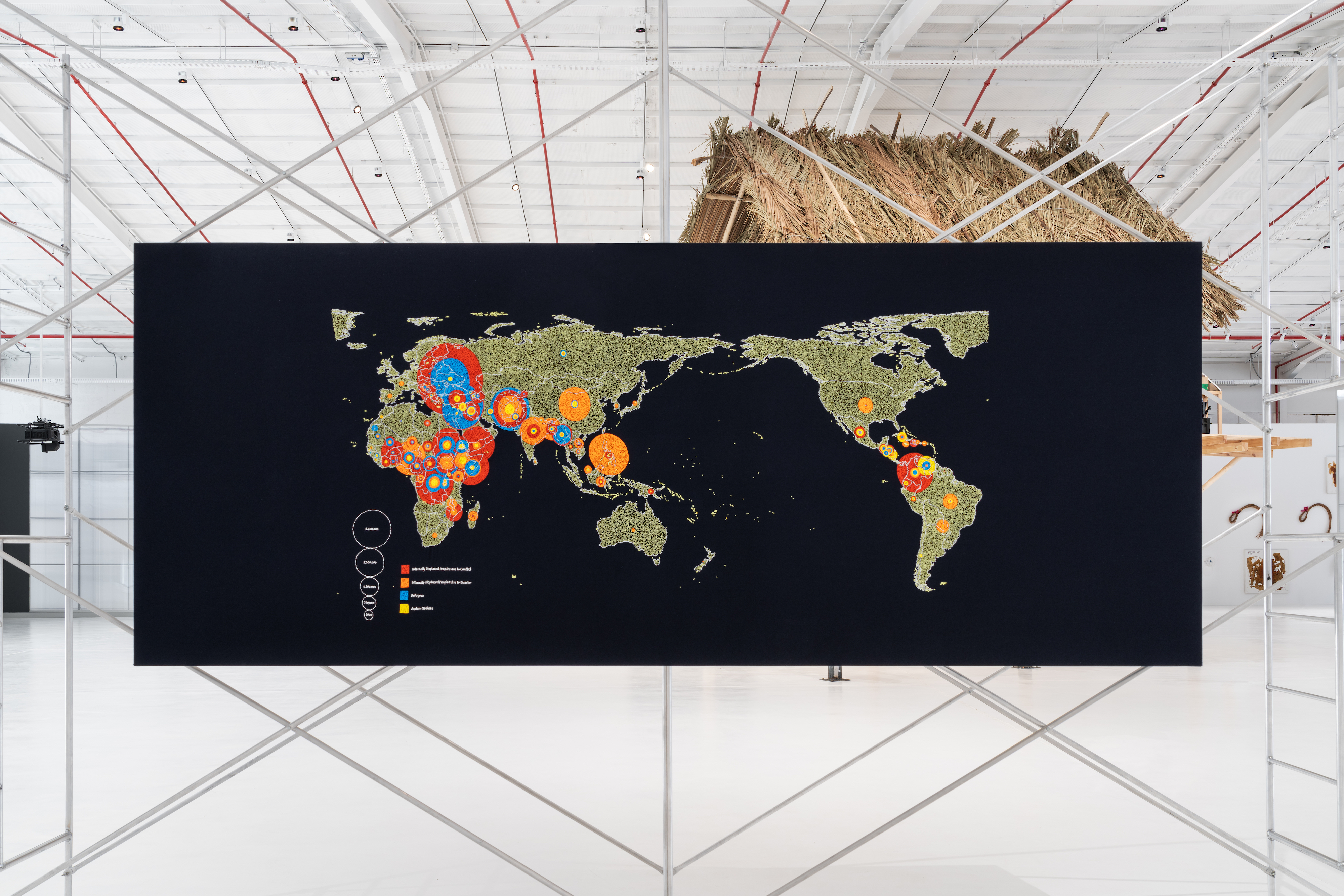
Embroidery on fabric
Commissioned by the Diriyah Biennale Foundation
Installation view of “After Rain” –
the 2nd Diriyah Contemporary Art Biennale 2024.
Photo by Marco Cappelletti.
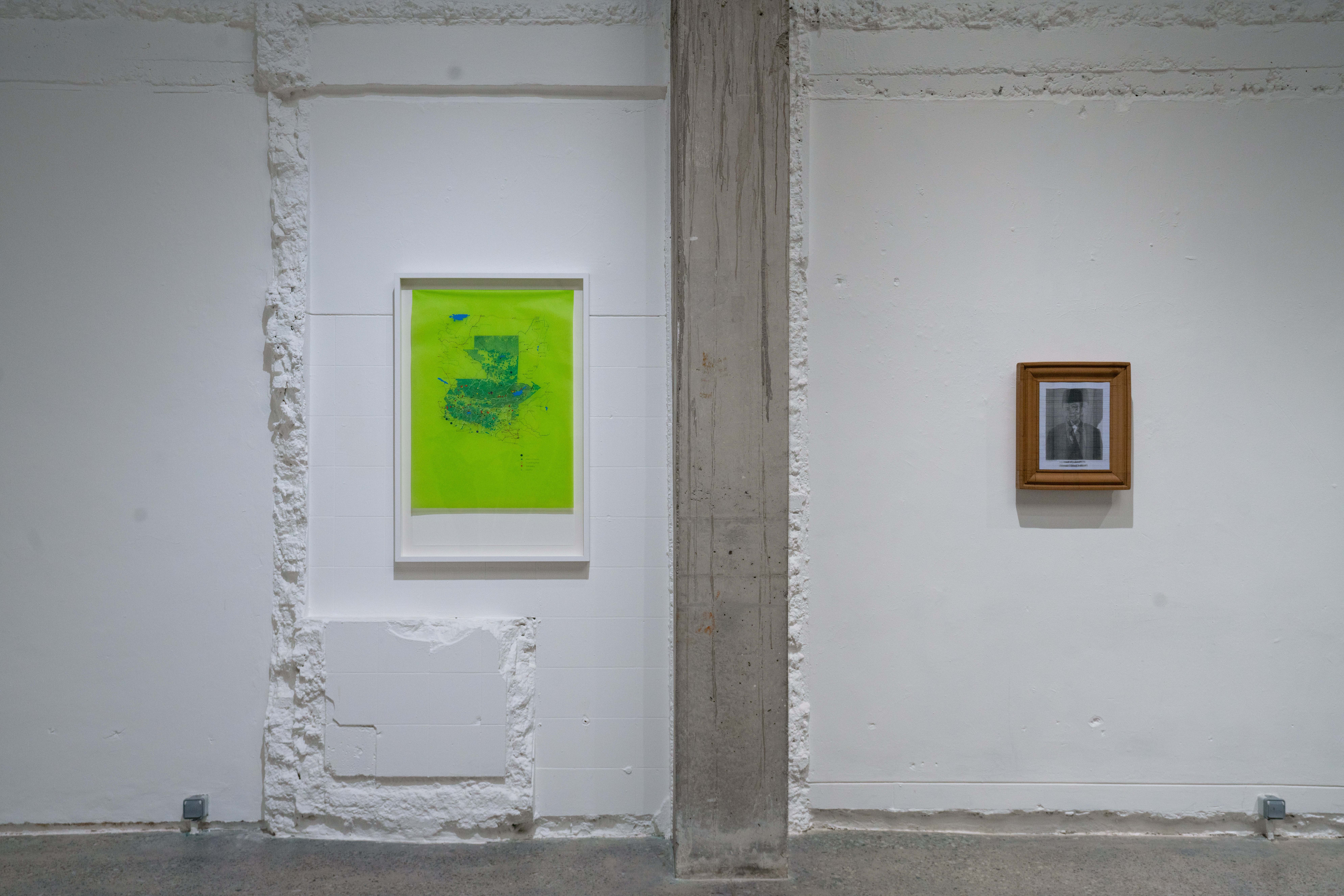
Acrylic, ink, and oil on vellum & paper
101.6 x 64 cm (unframed)
113 x 75.5 cm (framed)
Installation view of of “Unbearable Lightness”, ROH, Jakarta, Indonesia, 2024. Image courtesy of ROH.
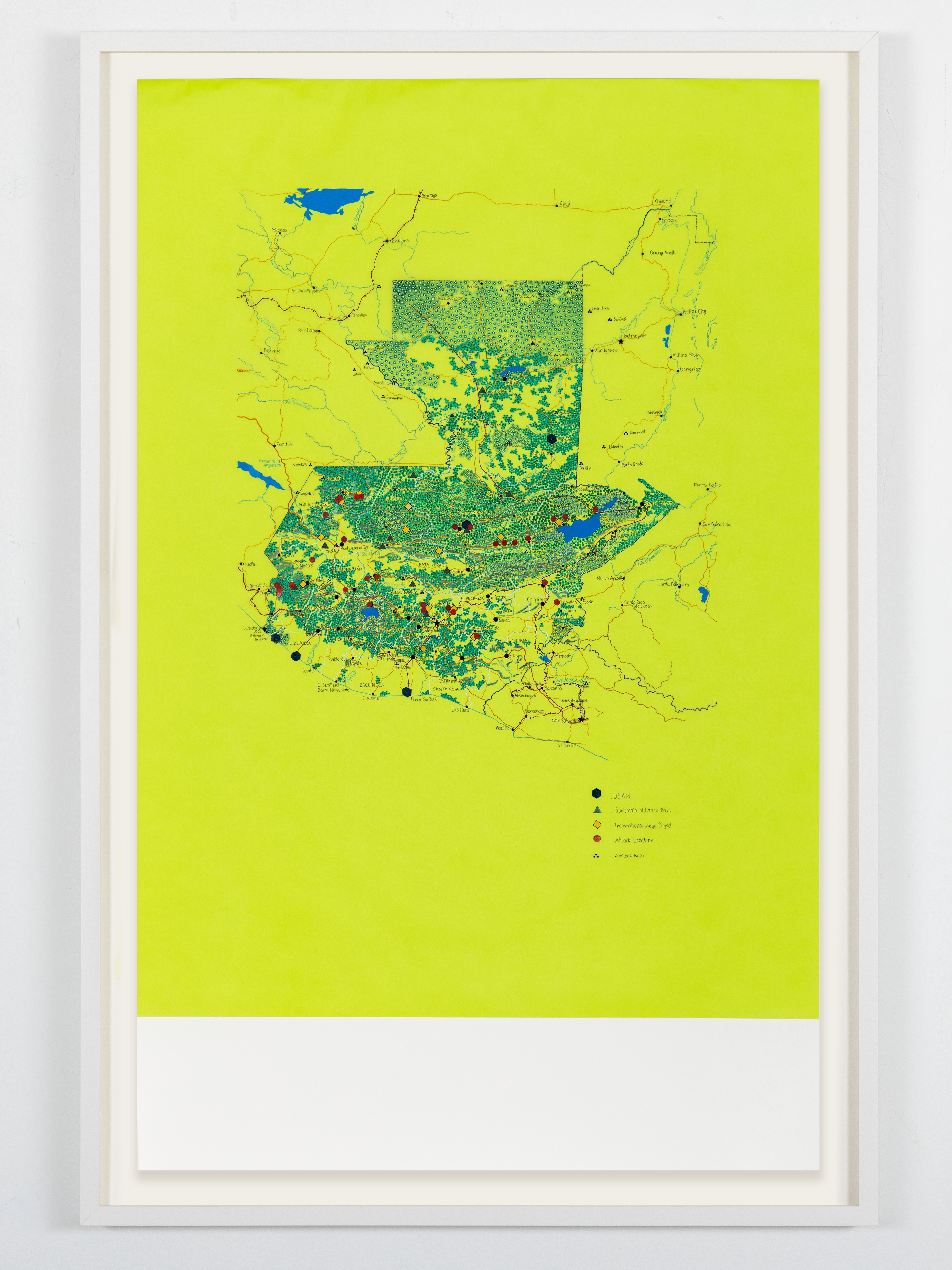
Acrylic, ink, and oil on vellum & paper
101.6 x 64 cm (unframed)
113 x 75.5 cm (framed)
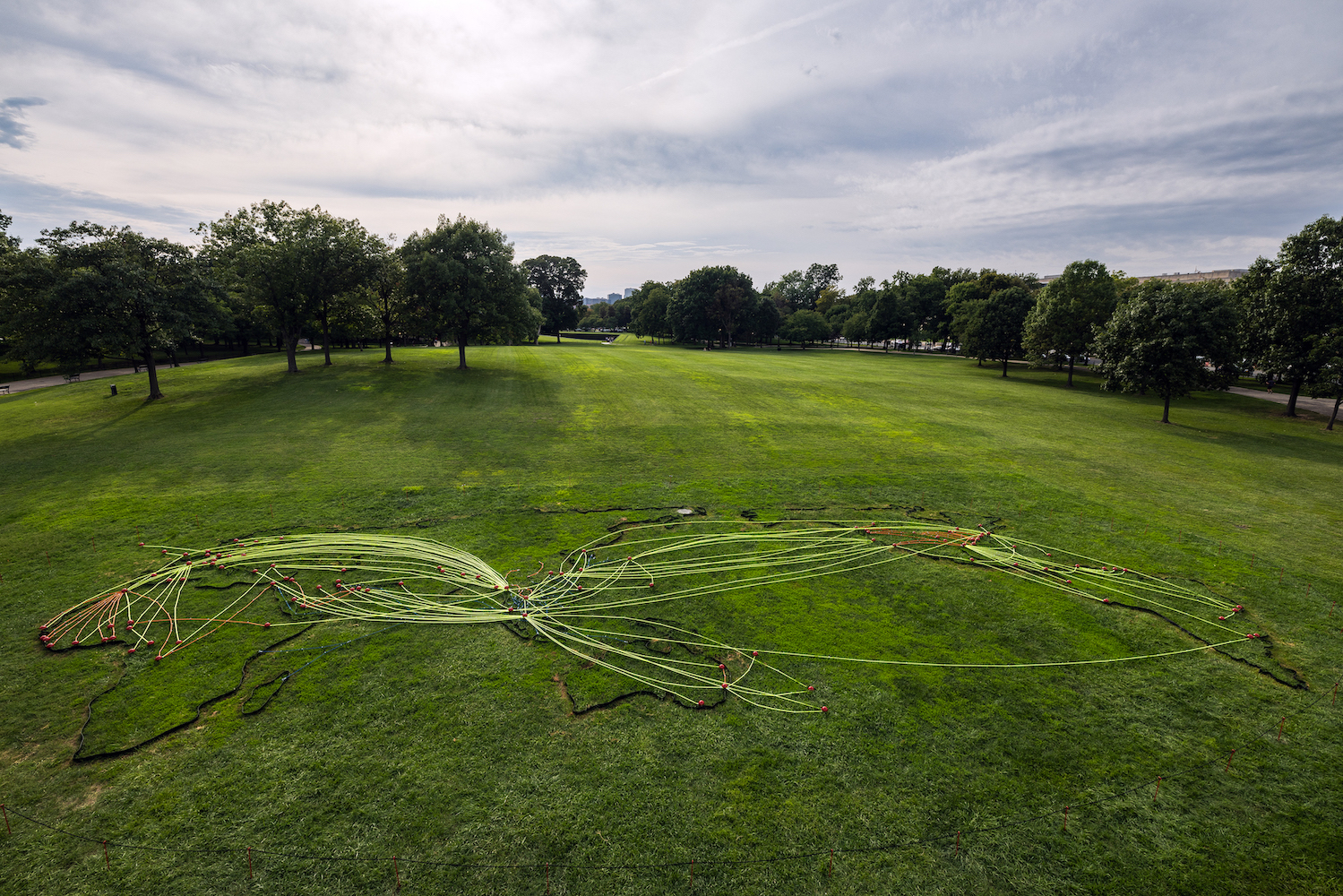
Installation view of “Beyond Granite: Pulling Together”, National Mall, Washington DC, U.S.A., 2023.
Photo by Steven Weinik.
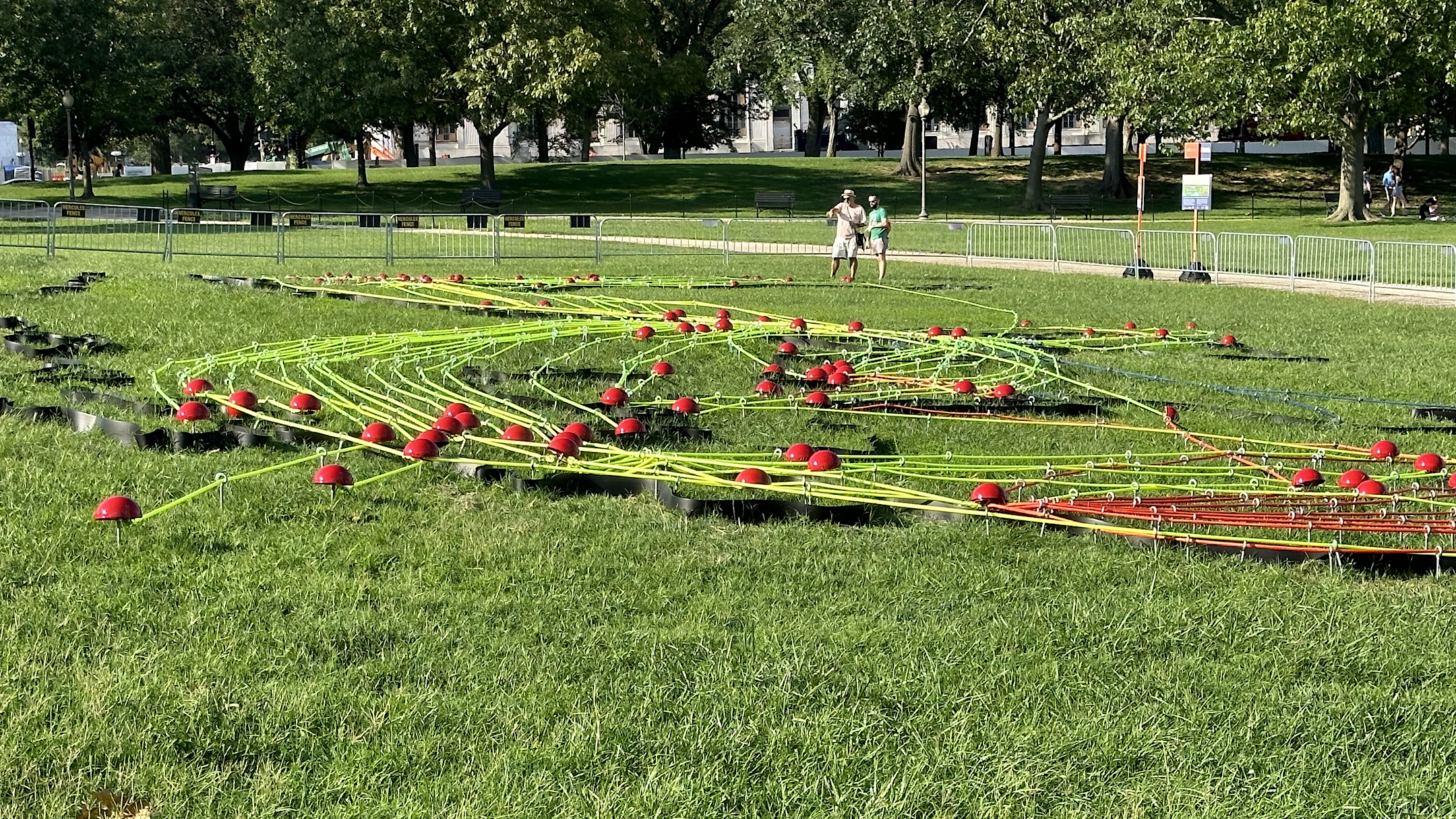
Installation view of “Beyond Granite: Pulling Together”, National Mall, Washington DC, U.S.A., 2023.
Photo by the artist.
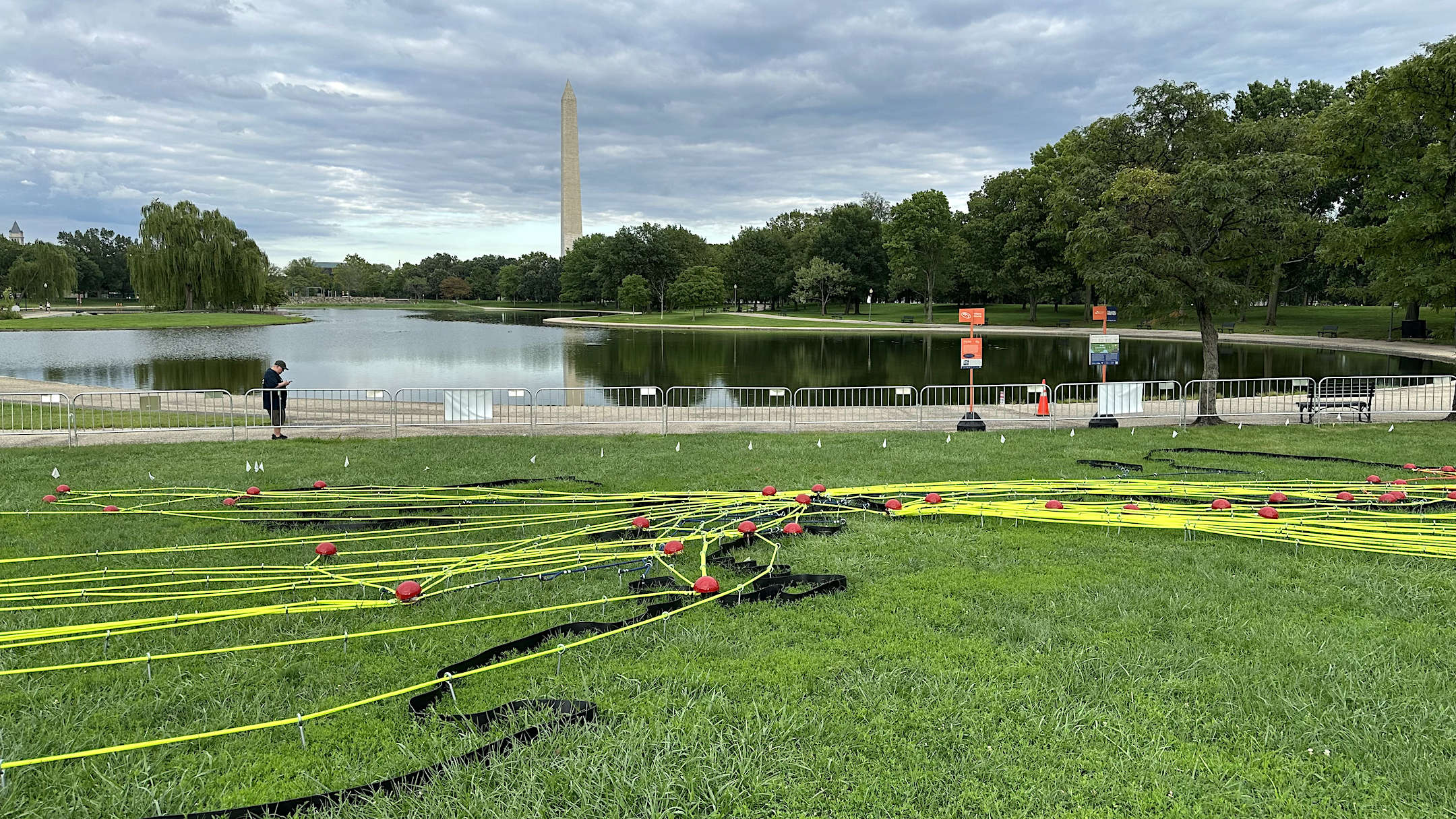
Installation view of “Beyond Granite: Pulling Together”, National Mall, Washington DC, U.S.A., 2023.
Photo by the artist.
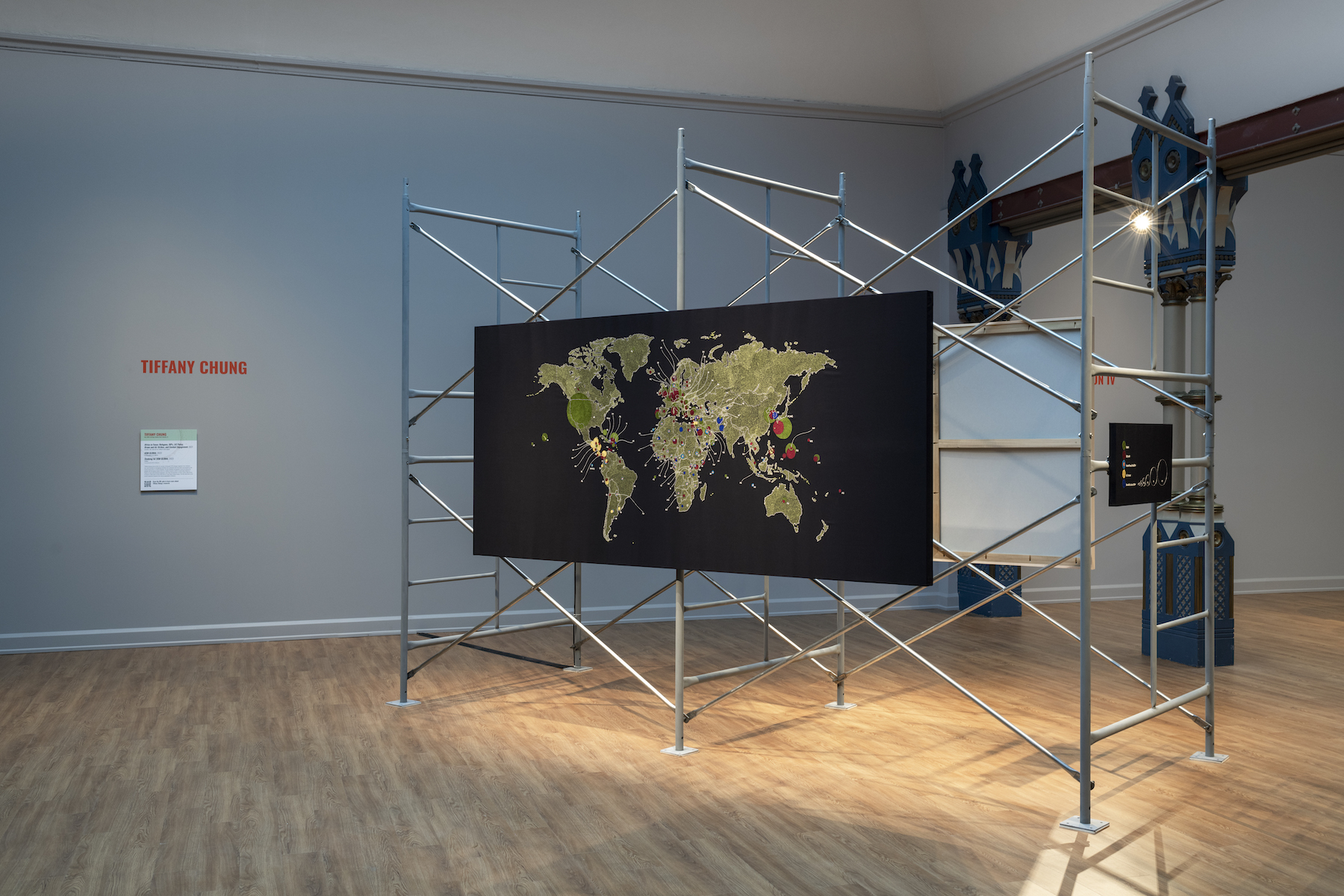
Installation view, ‘Rising Sun: Artists in an Uncertain America’, PAFA, Pennsylvania Academy of the Fine Arts, Philadelphia, USA, 2023
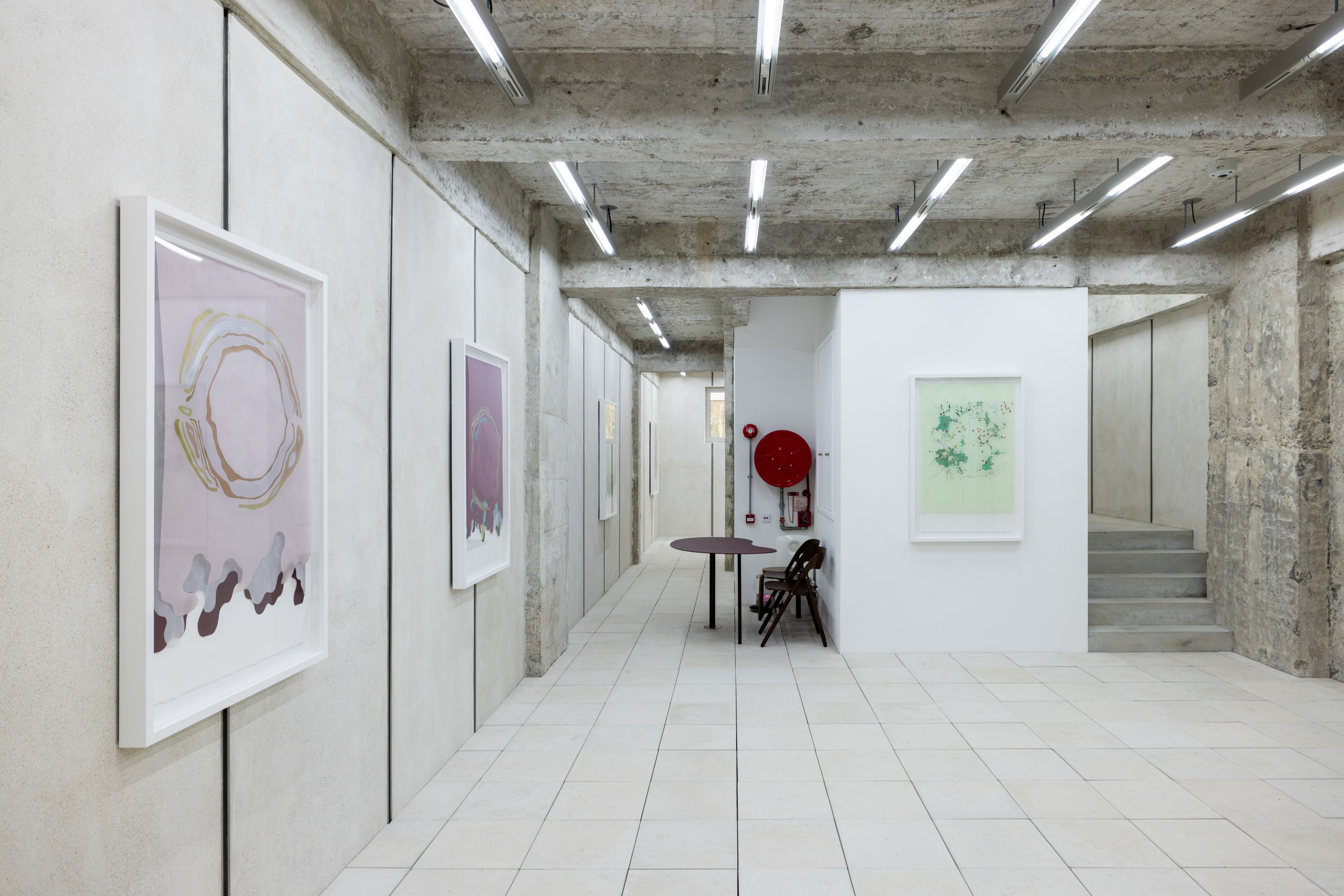
Installation view, ‘entangled traces, disremembered landscapes’, Kiang Malingue, Wanchai, 2023.
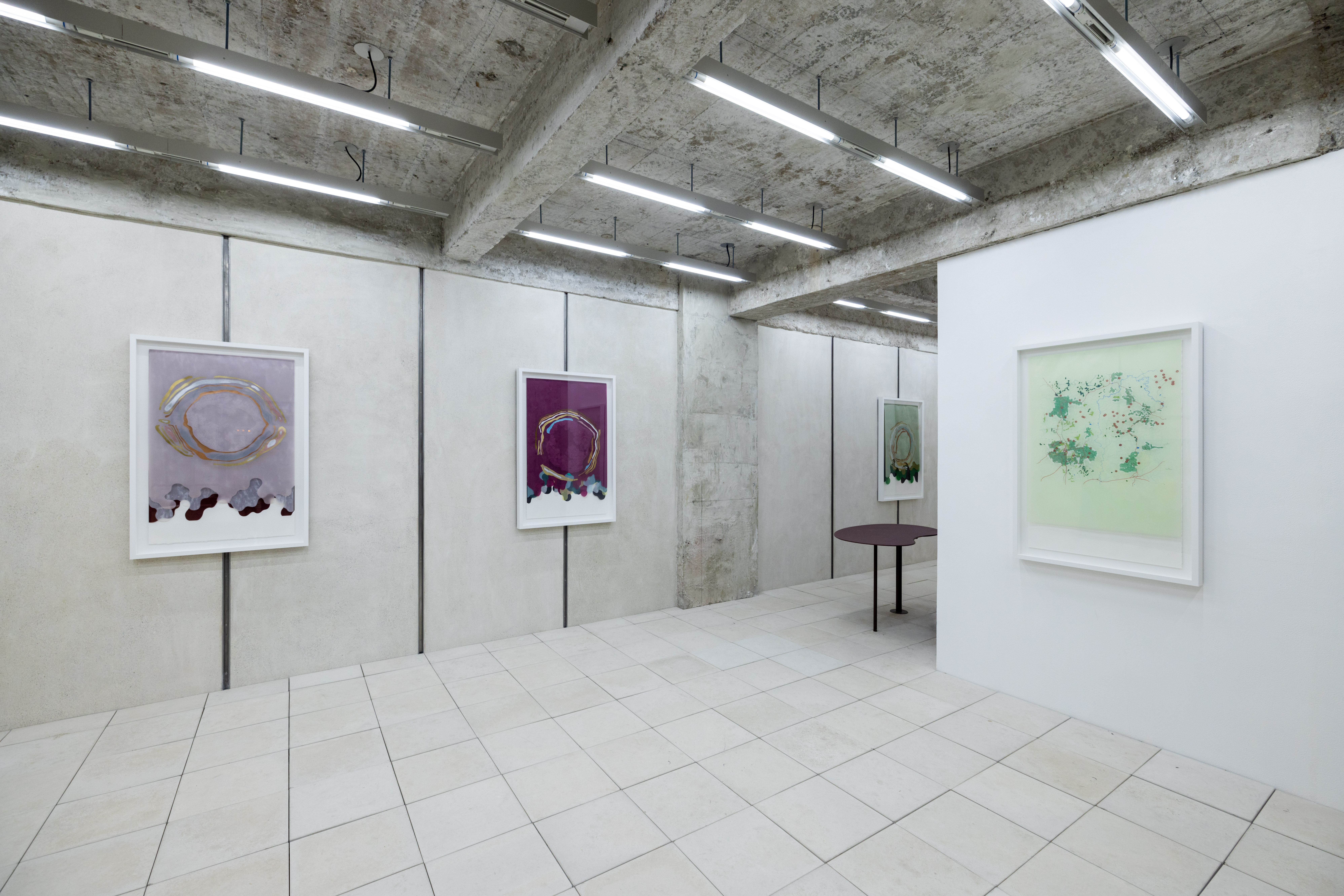
Installation view, ‘entangled traces, disremembered landscapes’, Kiang Malingue, Wanchai, 2023.
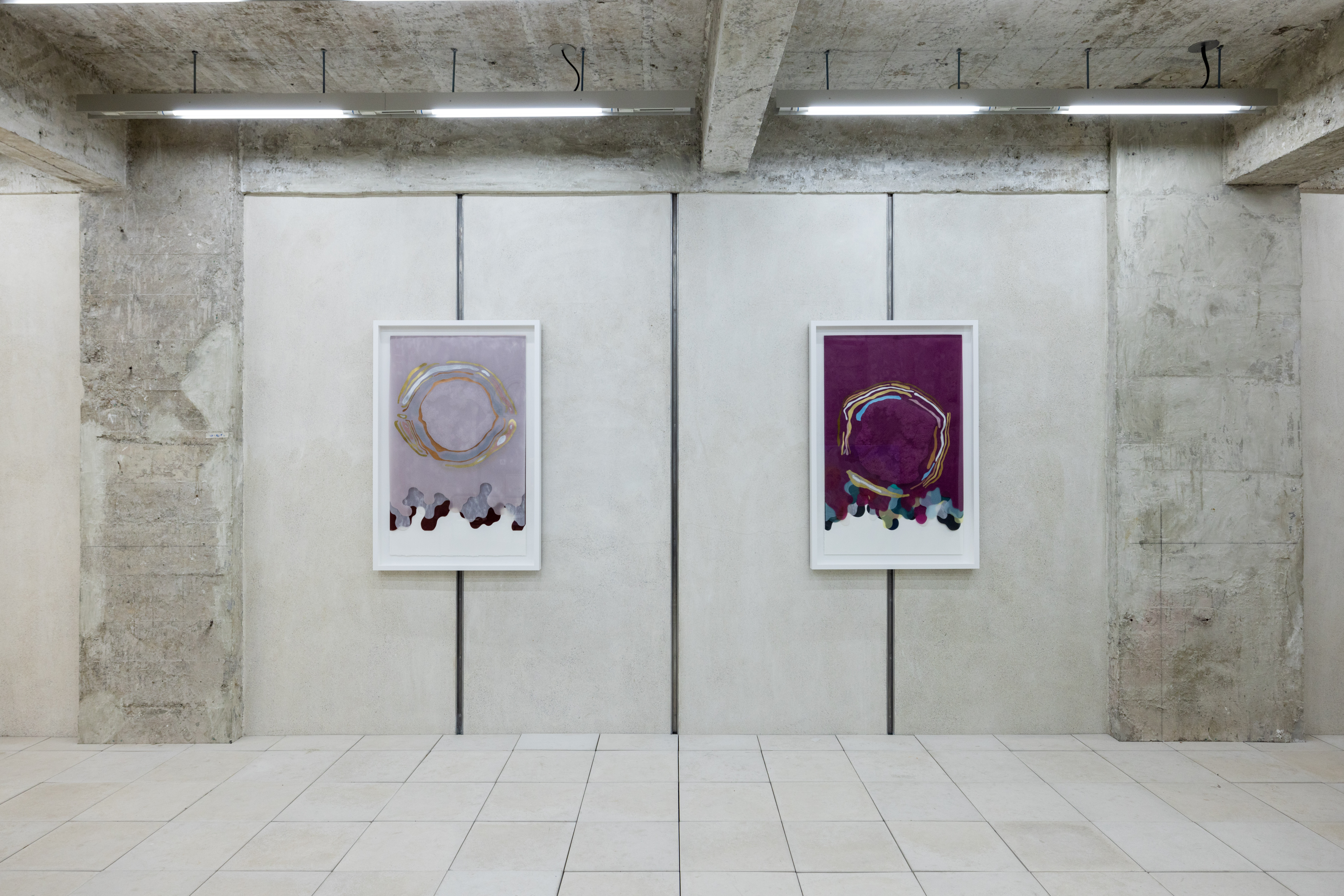
Installation view, ‘entangled traces, disremembered landscapes’, Kiang Malingue, Wanchai, 2023.
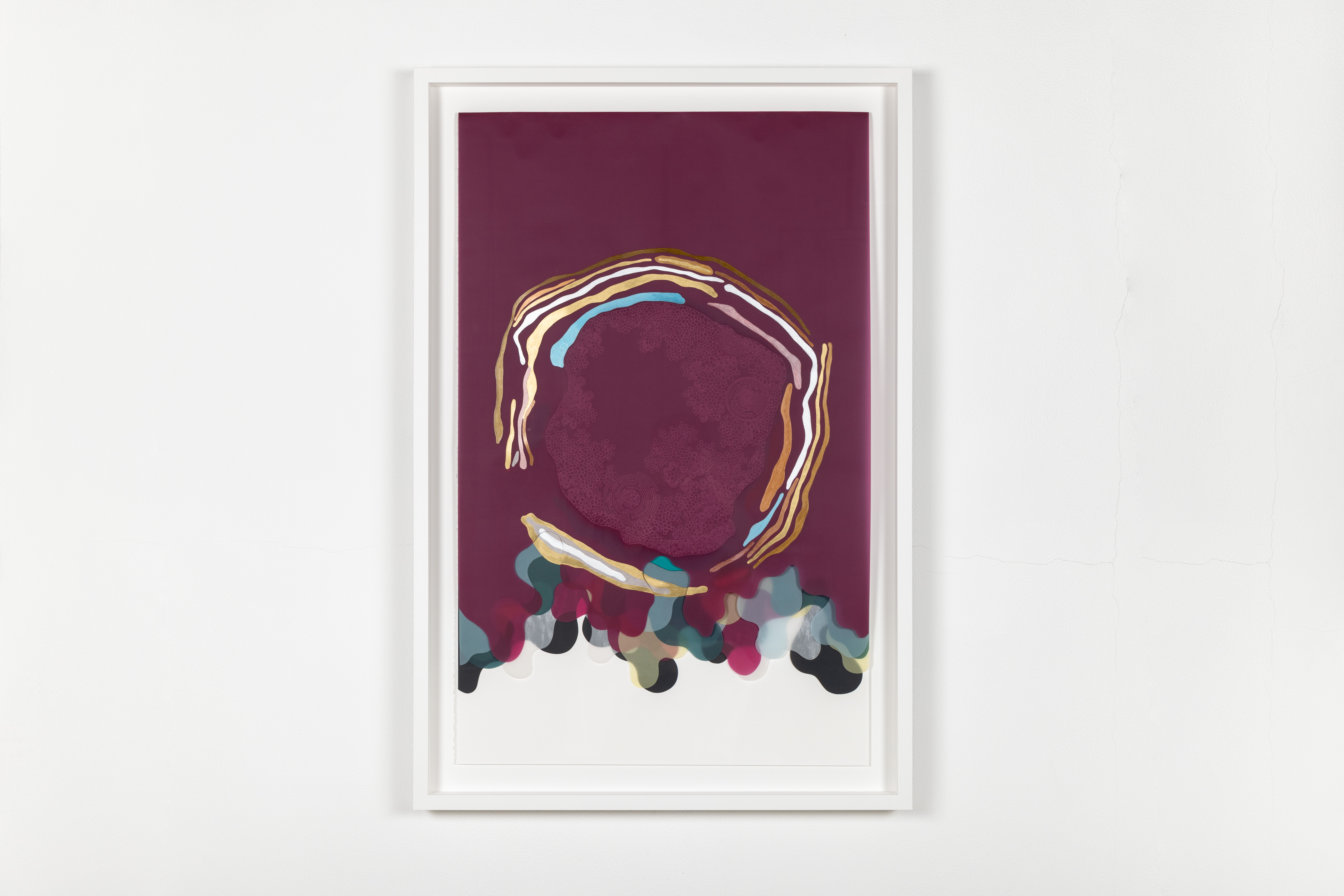
Ink, oil, and hand perforating on vellum and paper
Unframed: 113 x 70.5 cm; Framed: 127 x 85 cm
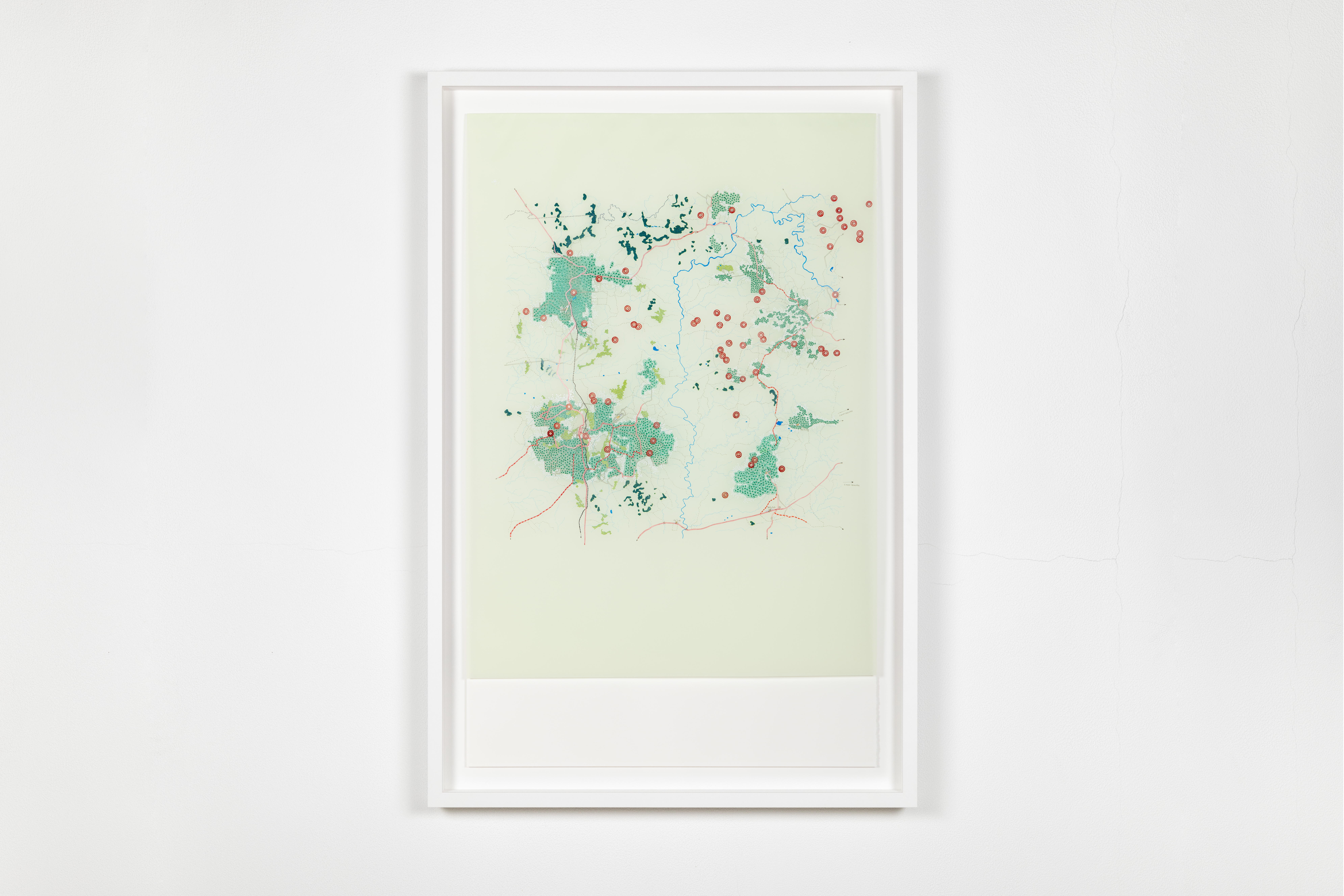
Acrylic, ink, and oil on vellum & papeR
Unframed: 113 x 70 cm; Framed: 126 x 85 cm
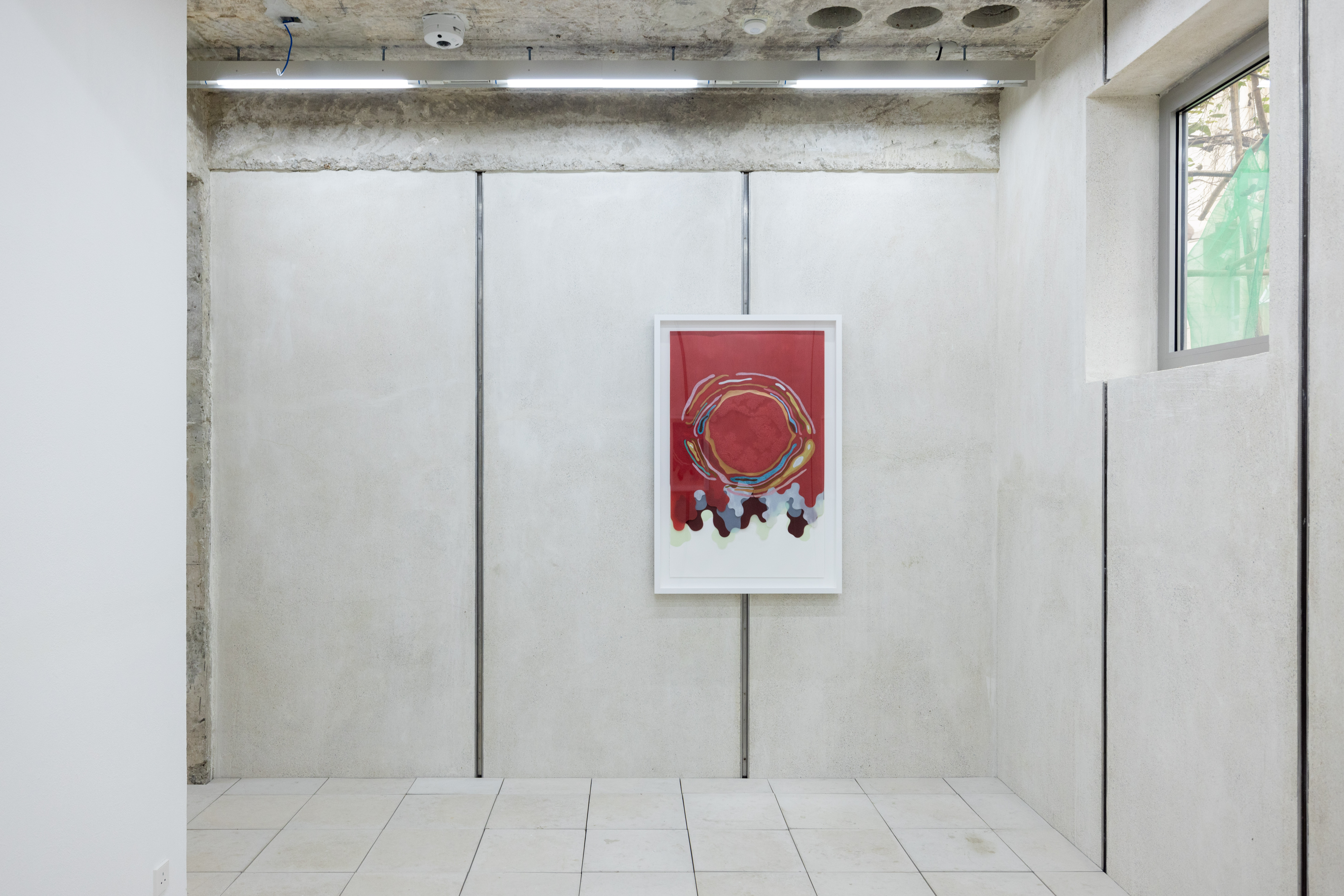
Ink, oil, and hand perforating on vellum and paper
Unframed: 113 x 70 cm; Framed: 127 x 85 cm
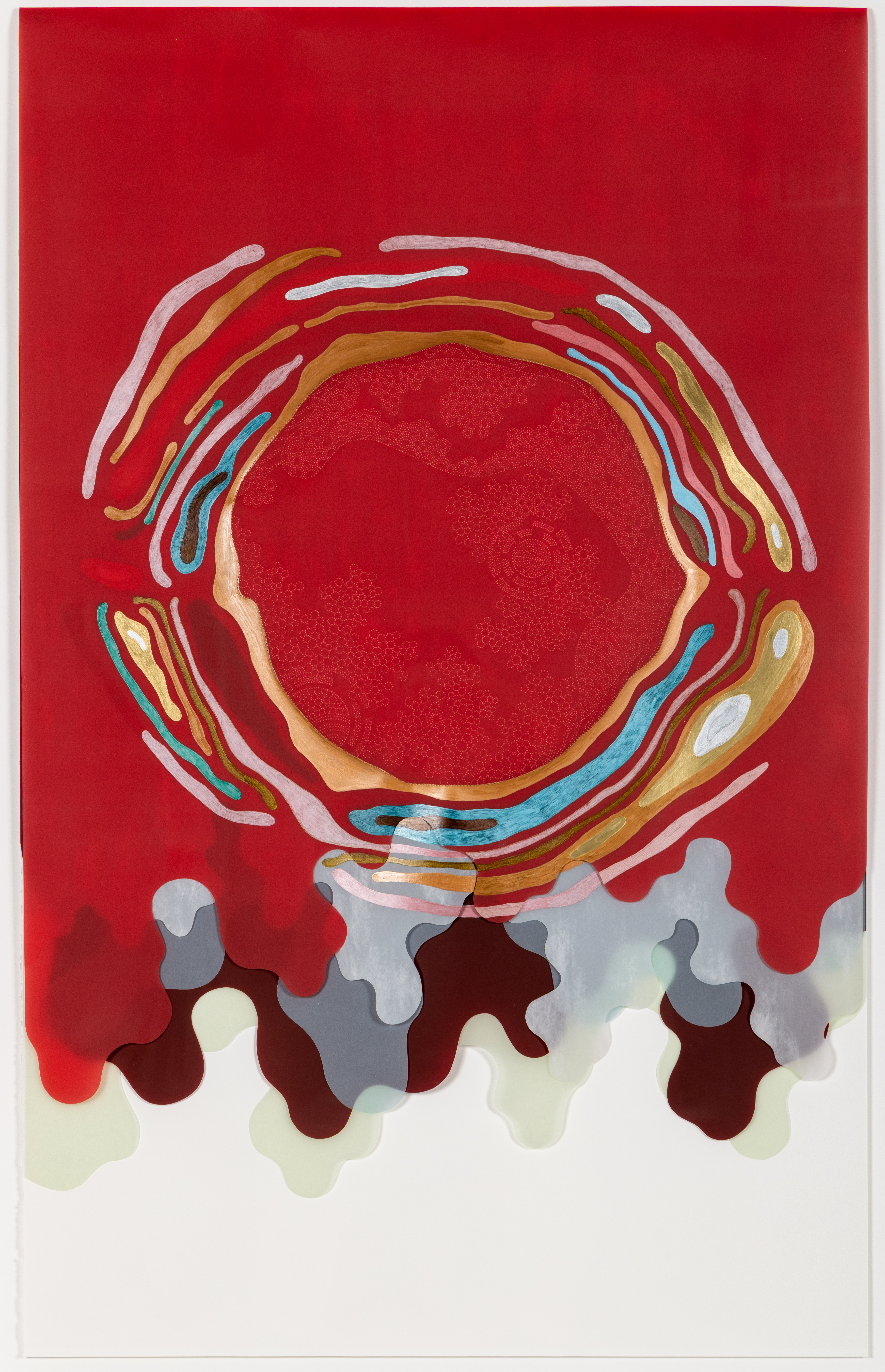
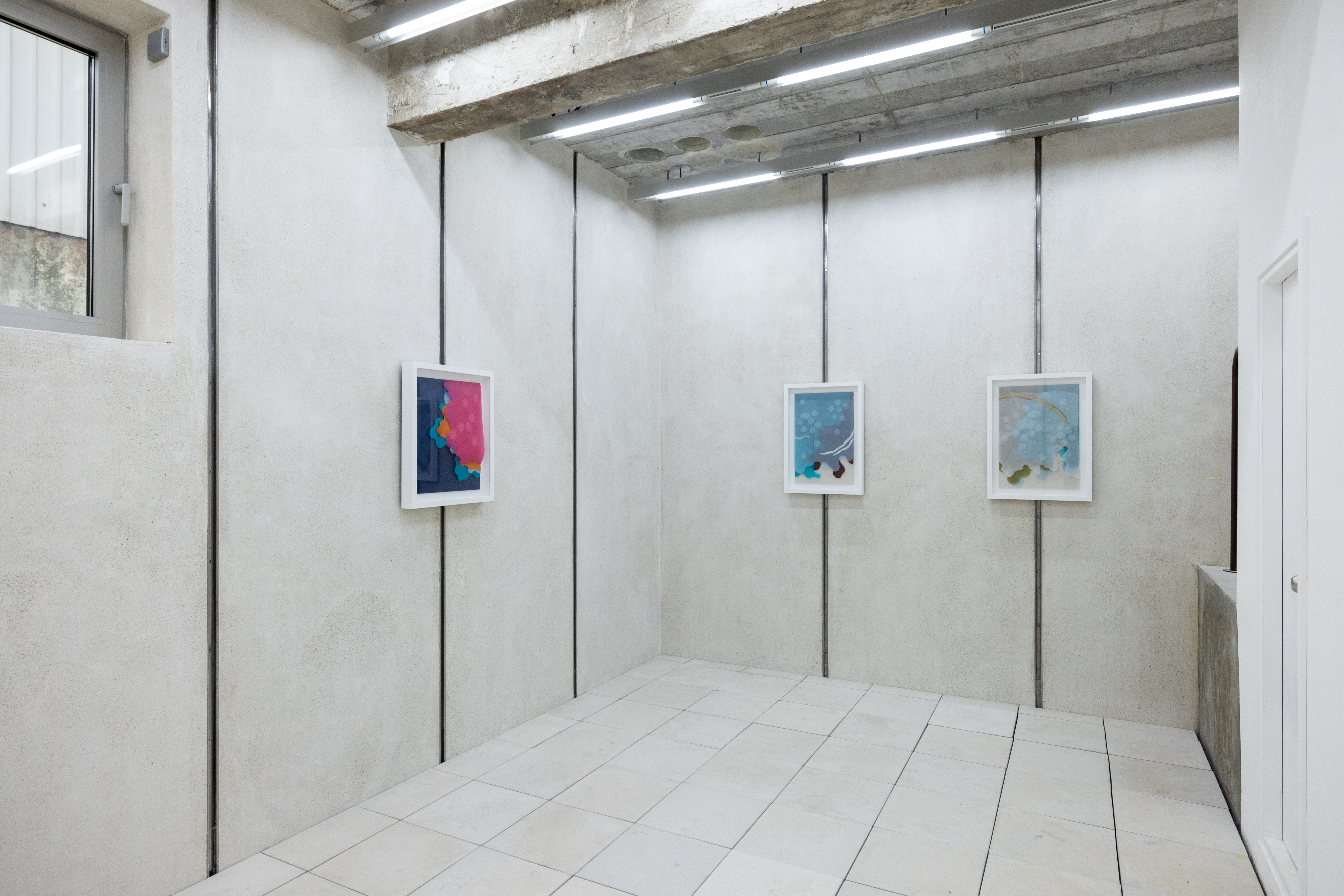
Installation view, ‘entangled traces, disremembered landscapes’, Kiang Malingue, Wanchai, 2023.
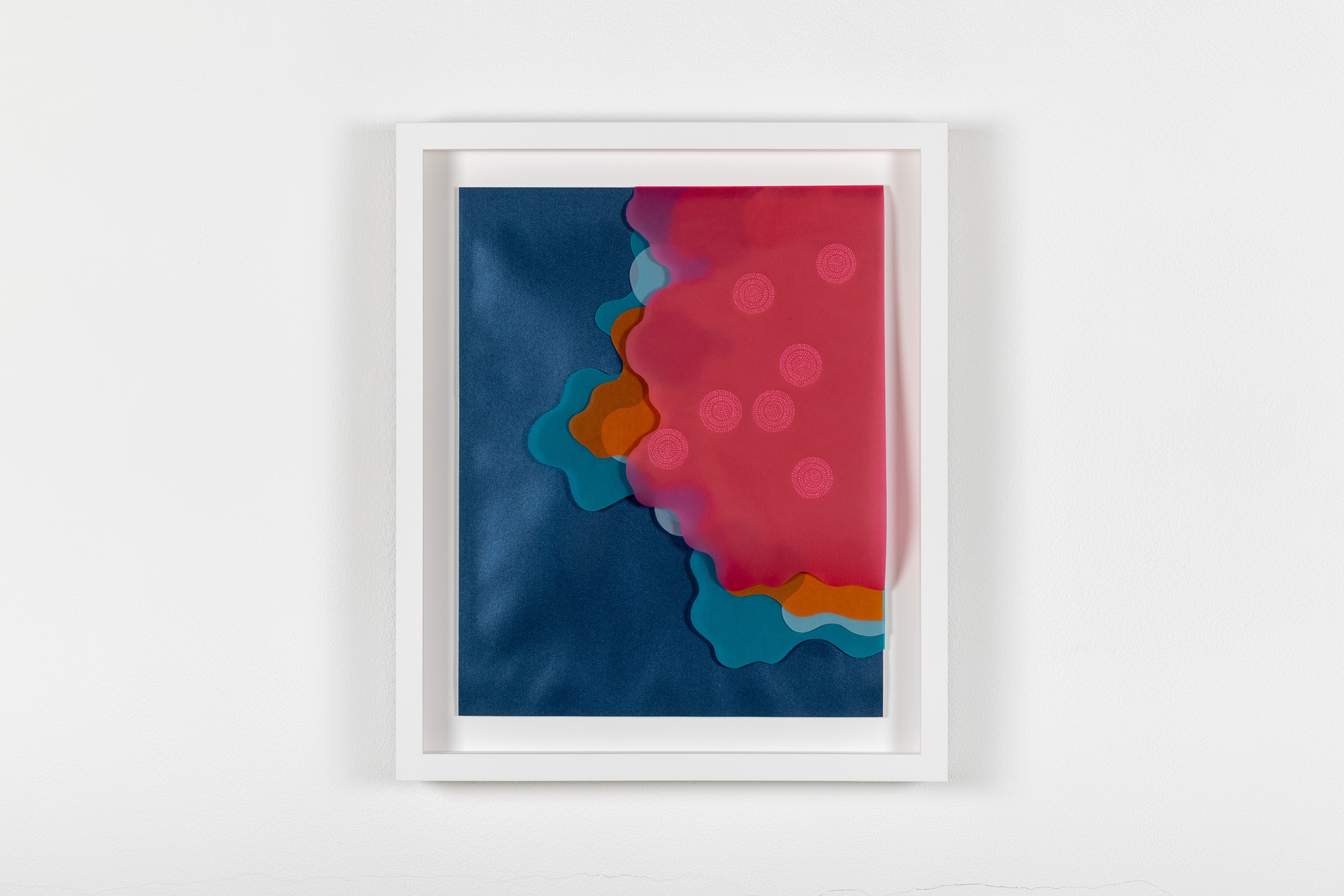
Hand perforating on vellum & paper
Unframed: 50.8 x 45.7 cm; Framed: 62.5 x 52 cm
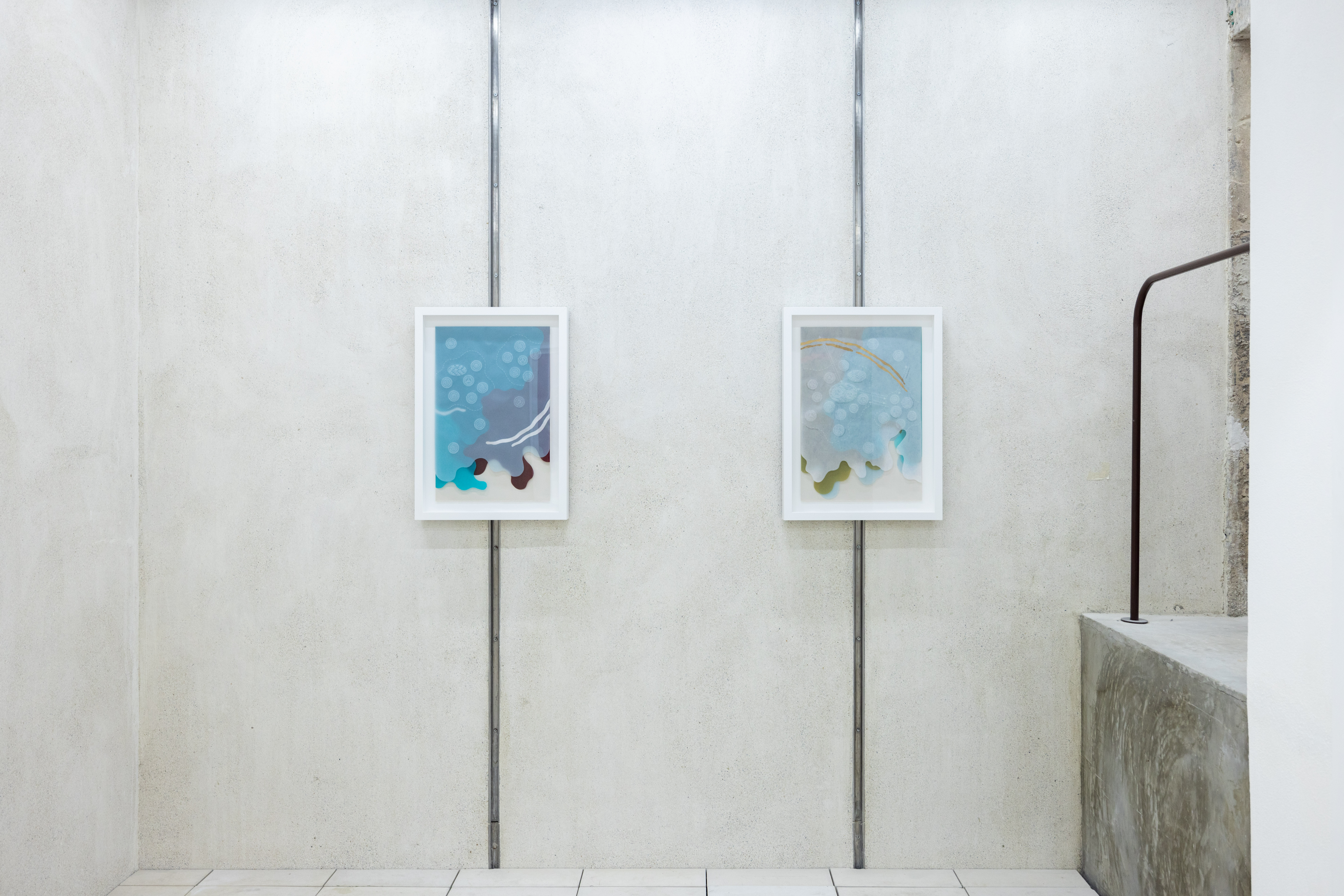
Installation view, ‘entangled traces, disremembered landscapes’, Kiang Malingue, Wanchai, 2023.
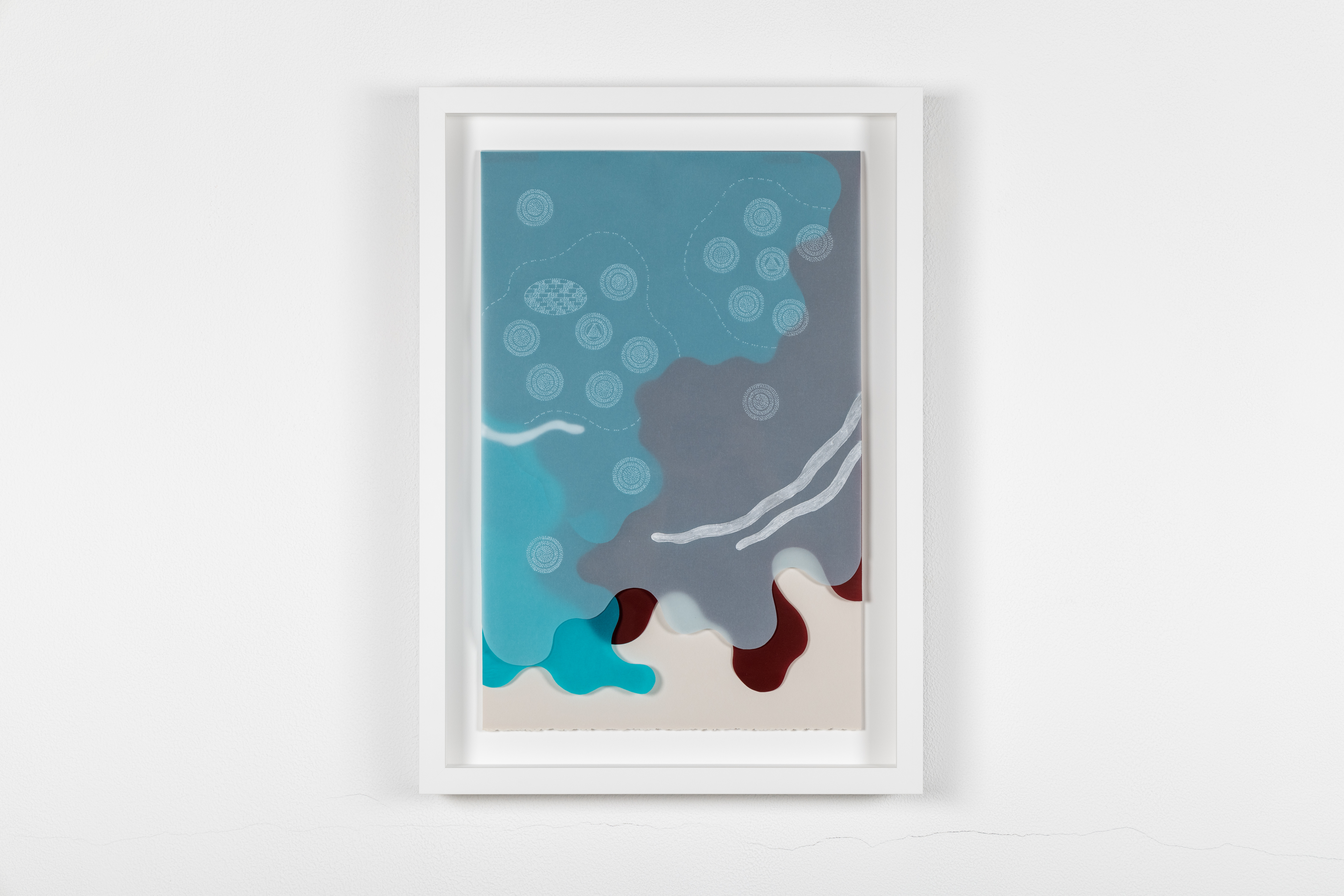
Oil and hand perforating on vellum & paper
Unframed: 56.7 x 37 cm; Framed: 69 x 51 cm
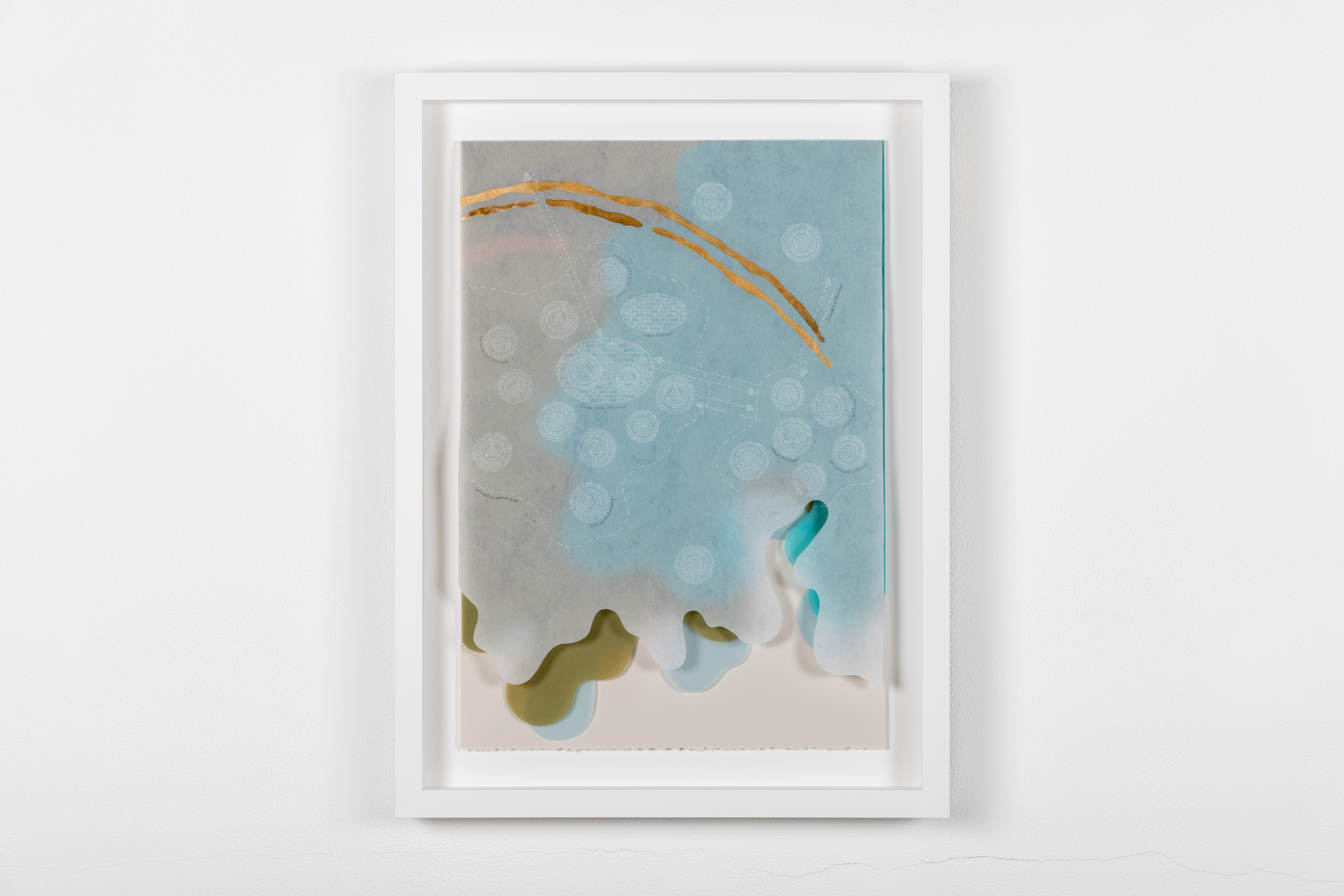
Oil and hand perforating on vellum & paper
Unframed: 56.7 x 39.4 cm; Framed: 69 x 51 cm
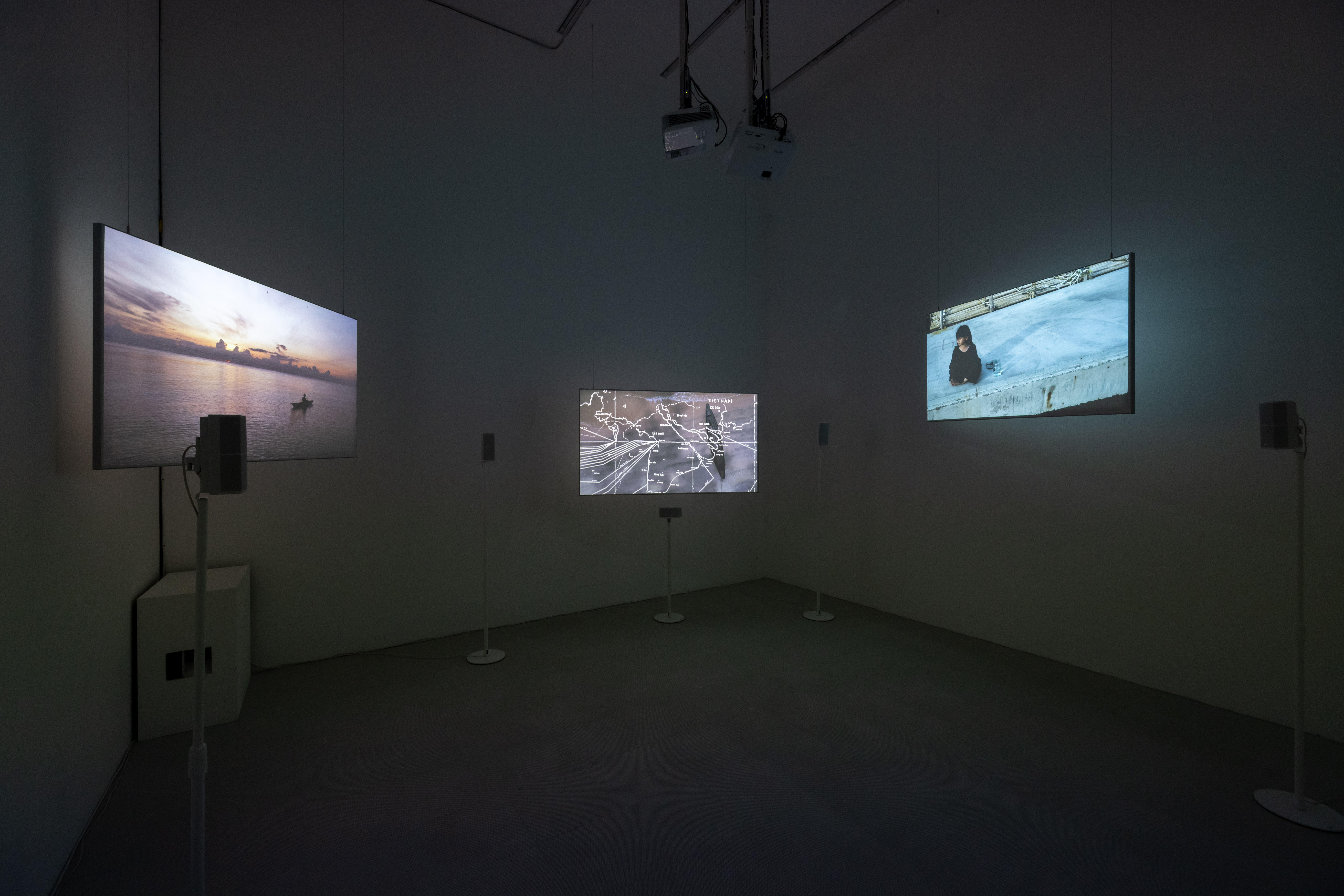
3-channel HD video; 5.1 sound, 6 min
Tracking the cost of war, not in number but in forced displacement, Tiffany Chung retrieved from the UNHCR archive in Geneva some statistics, archival maps, and coordinates of pirate attack locations between October 1985 and June 1986 in the Gulf of Thailand, where she worked with a Thai crew to film the body of water that witnessed Vietnamese refugees enduring acts of violence. The 3- channel video If Water Has Memories (2022) performs a symbolic burial at sea as a poignant gesture of remembrance. It commemorates lost lives and calls for acknowledgment of historical atrocities in hope of healing.
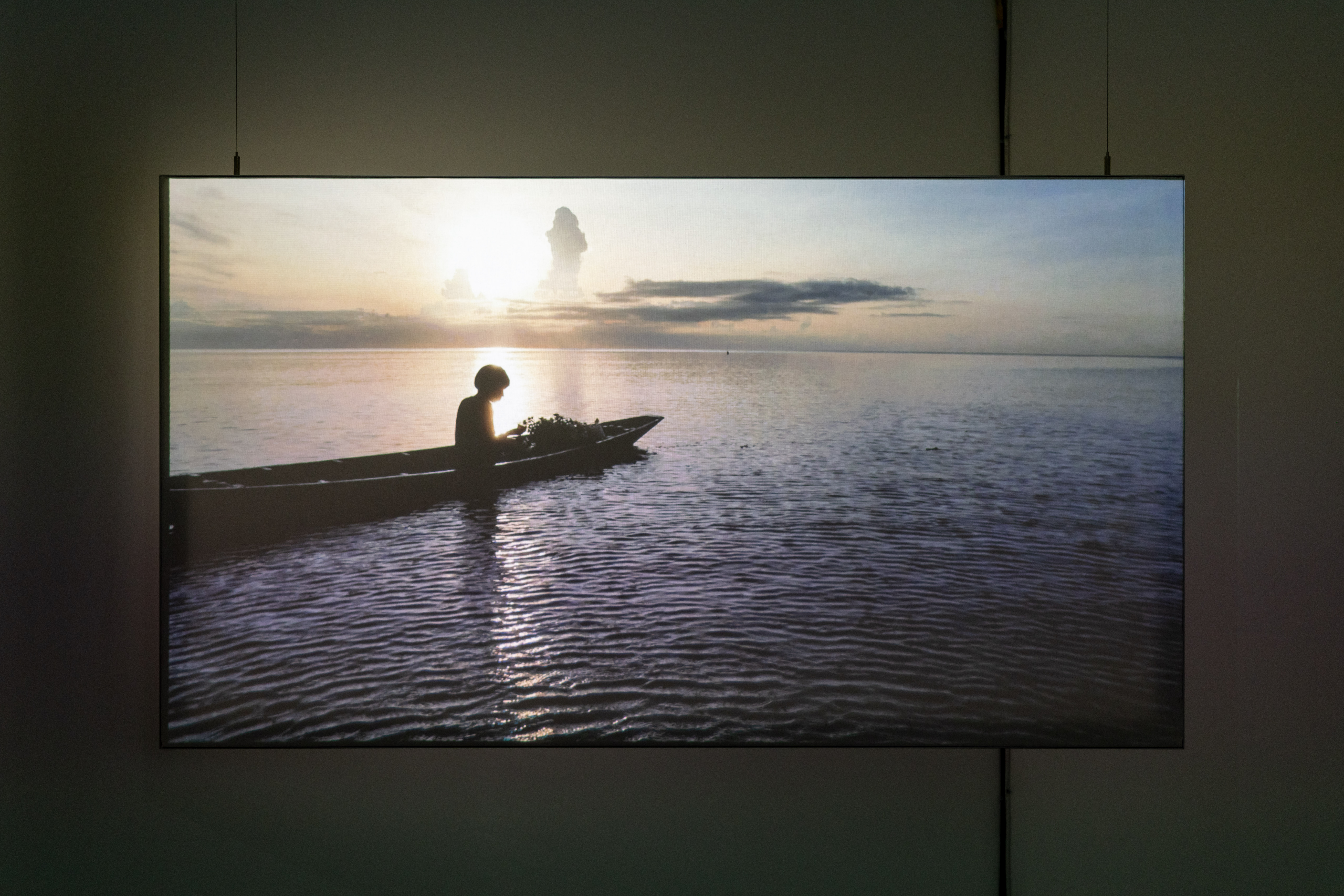
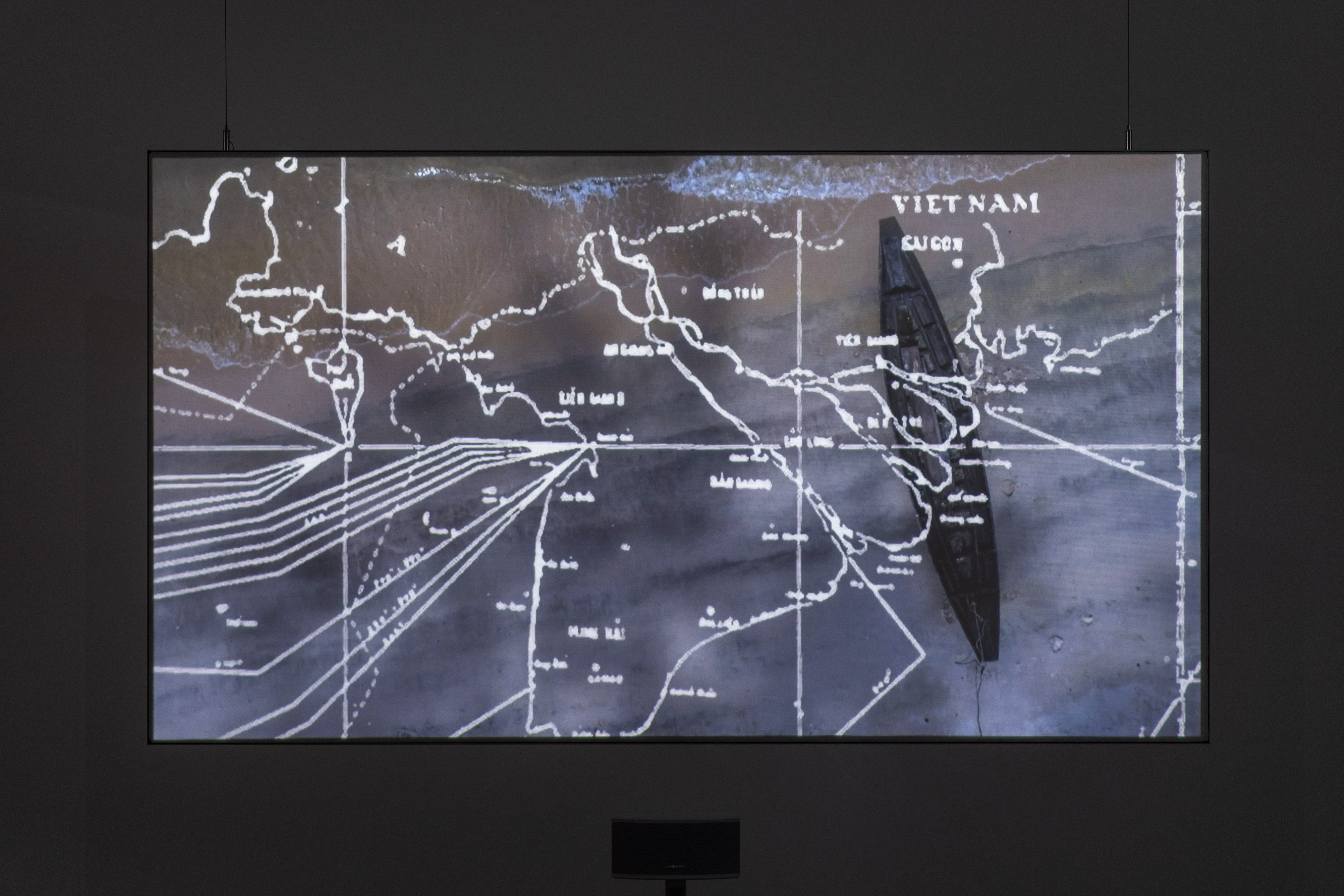
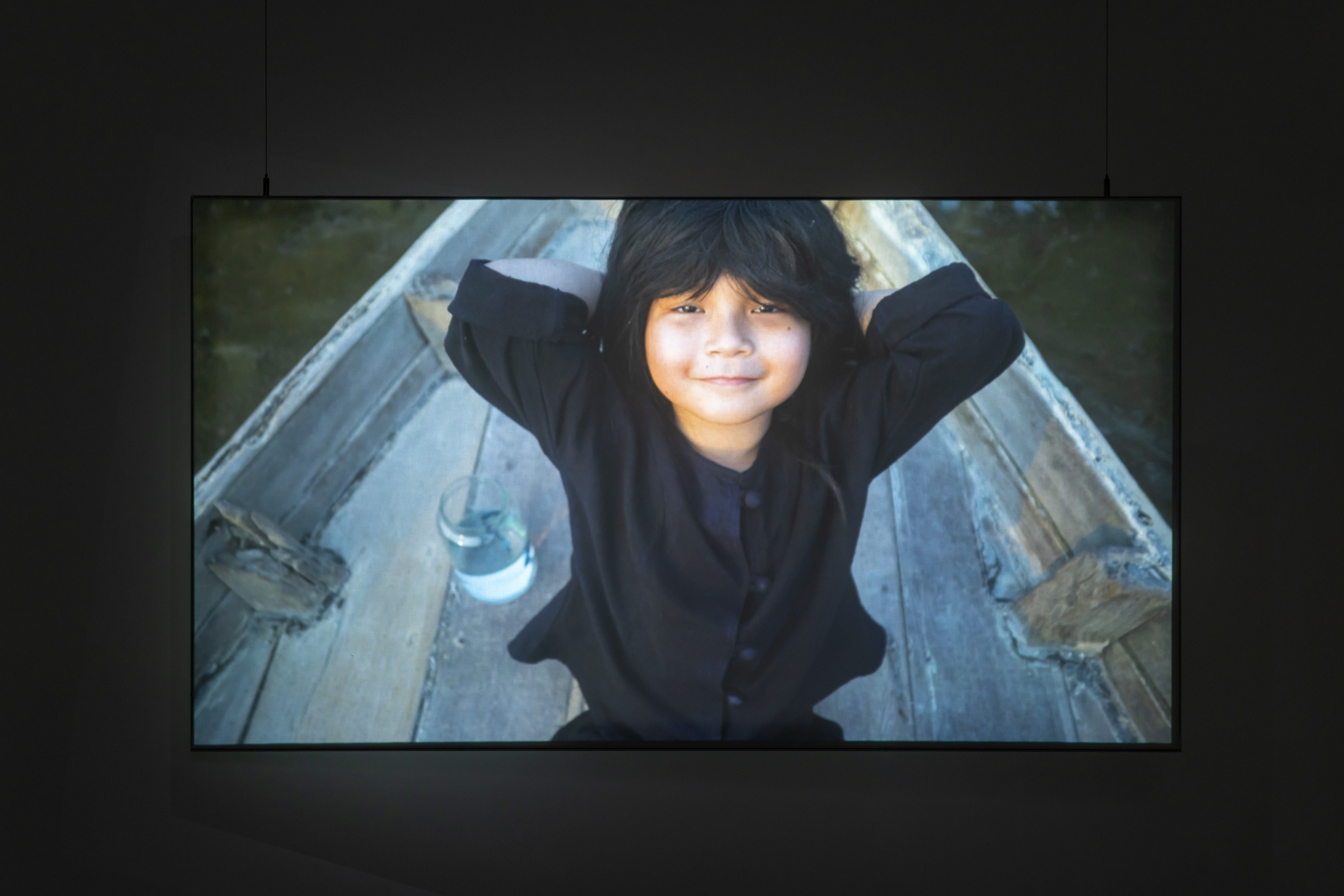
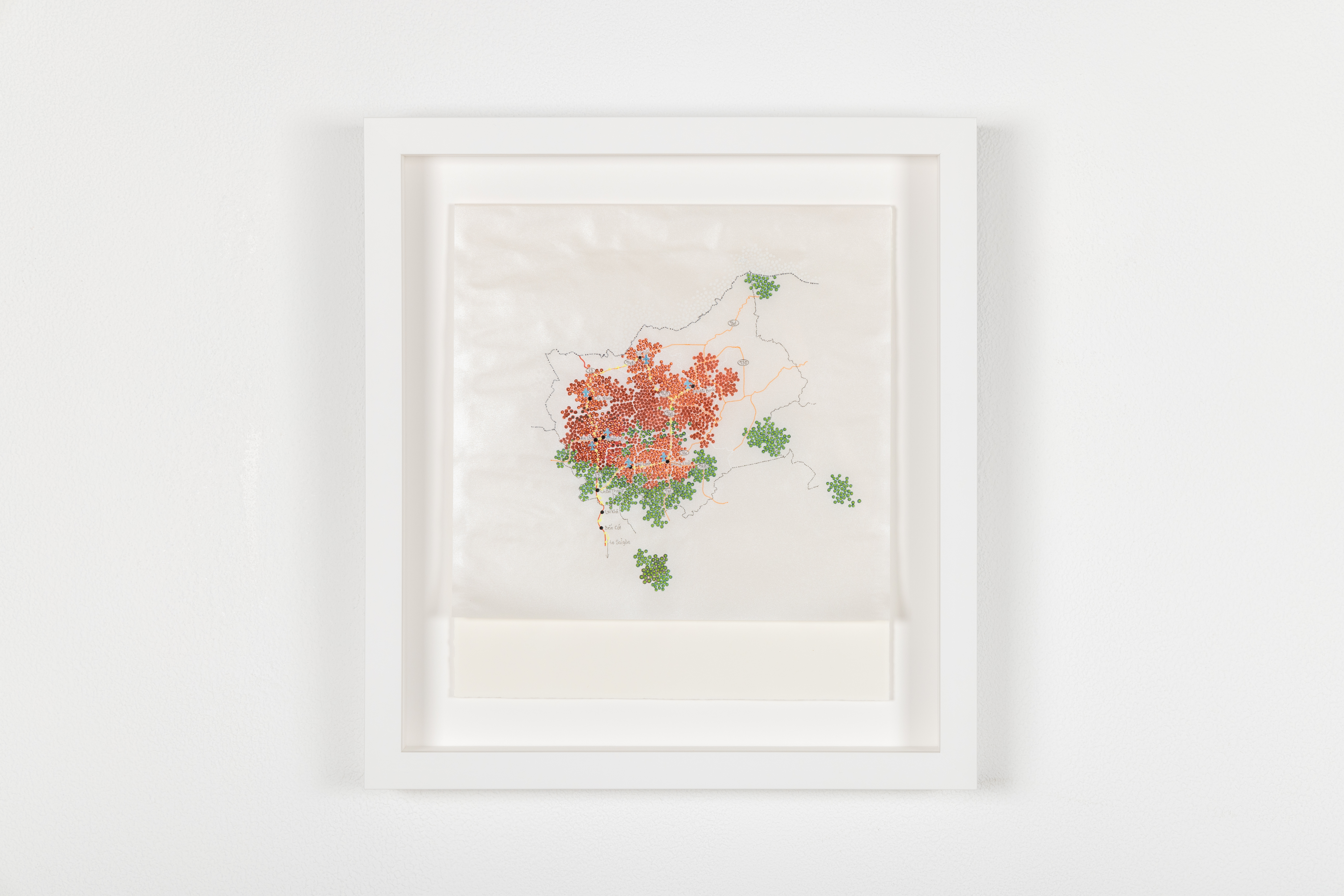
Acrylic, ink, and oil on vellum & paper
Unframed: 34.3 x 30.5 cm; Framed: 46 x 42 cm
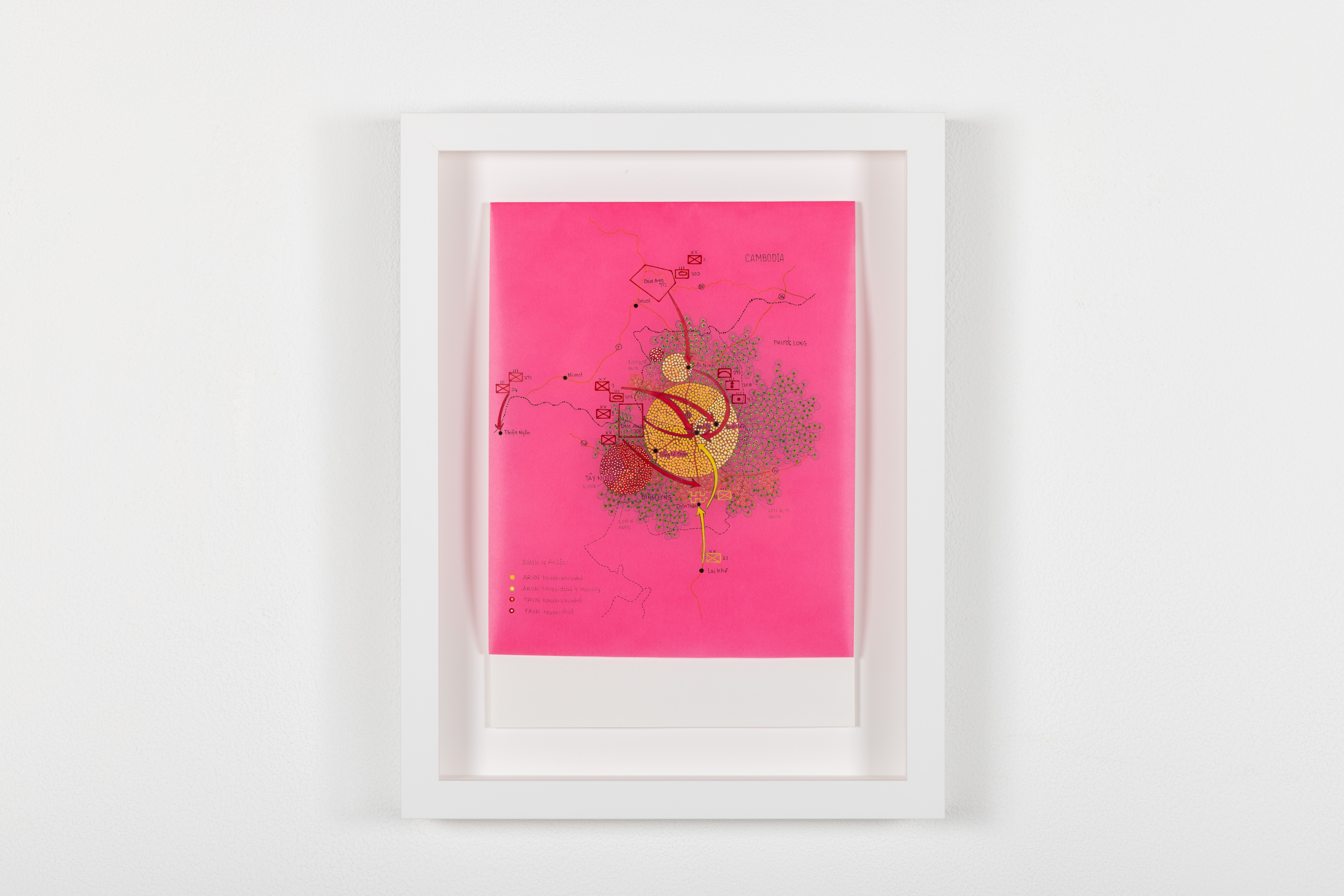
Acrylic, ink, and oil on vellum & paper
Unframed: 35.7 x 24.7 cm; Framed: 47 x 36 cm
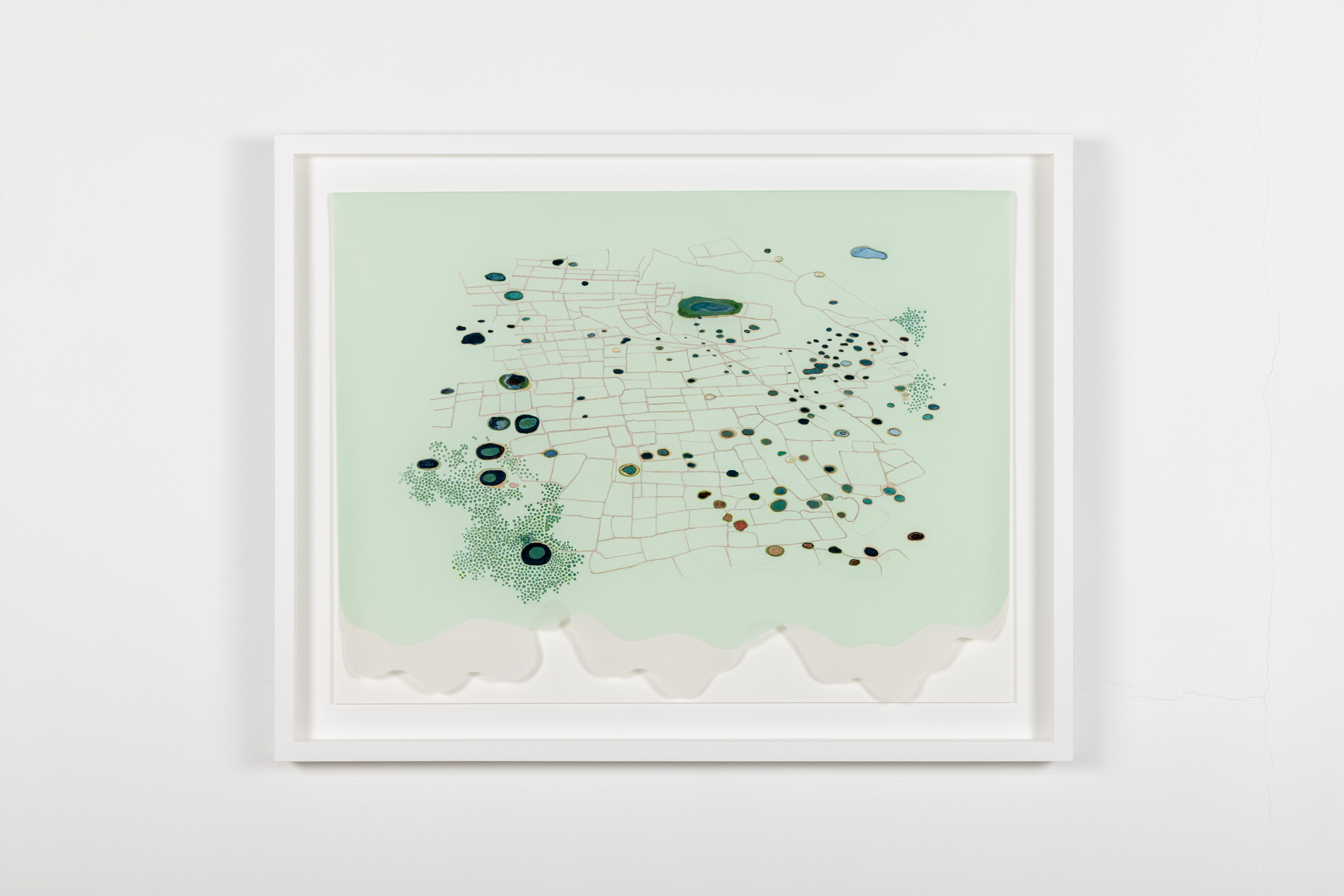
Ink, oil, color pencil, watercolor, and hand perforating on vellum & paper
Unframed: 66 x 88 cm; Framed: 80 x 102 cm
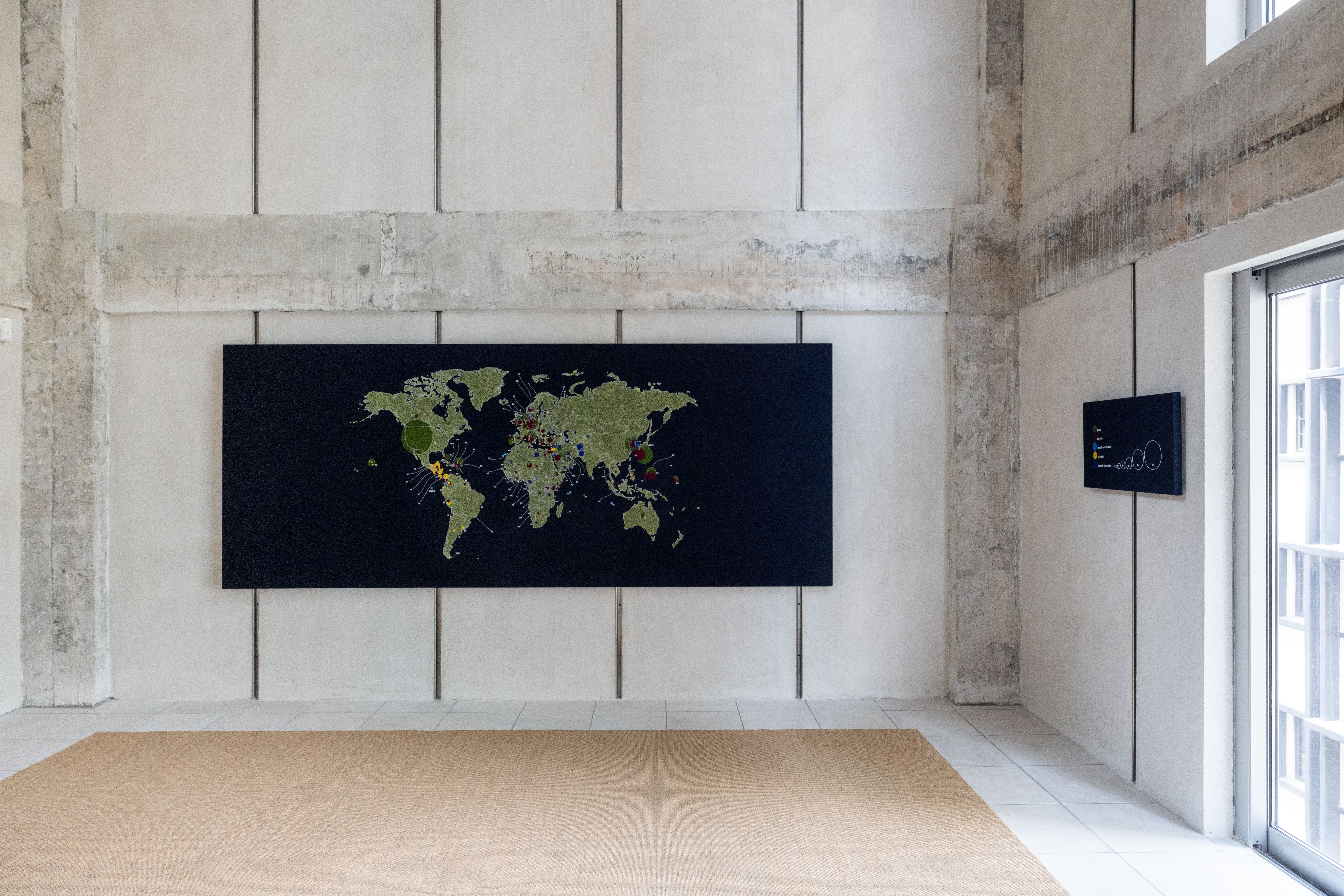
Installation view, ‘entangled traces, disremembered landscapes’, Kiang Malingue, Wanchai, 2023.
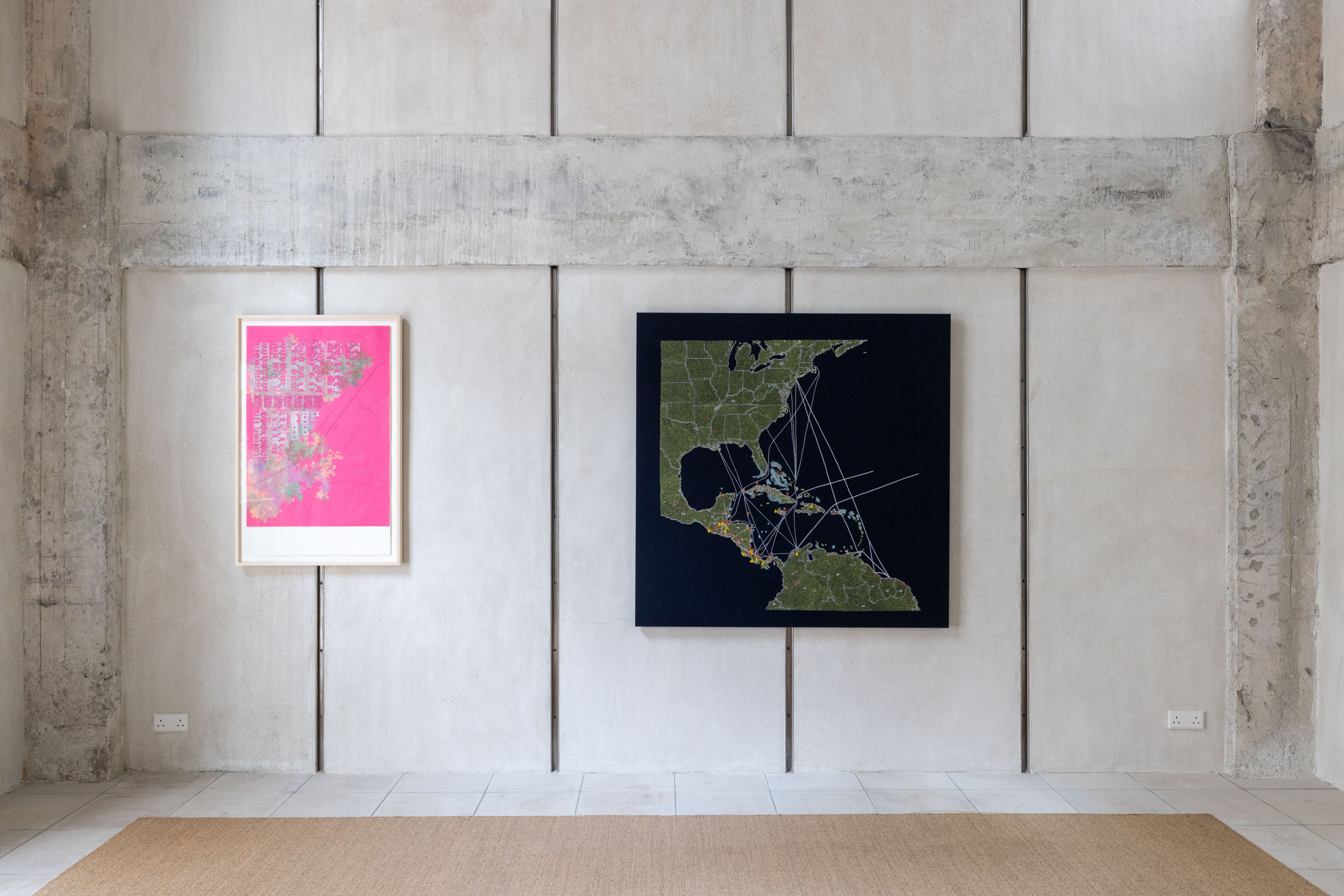
Installation view, ‘entangled traces, disremembered landscapes’, Kiang Malingue, Wanchai, 2023.
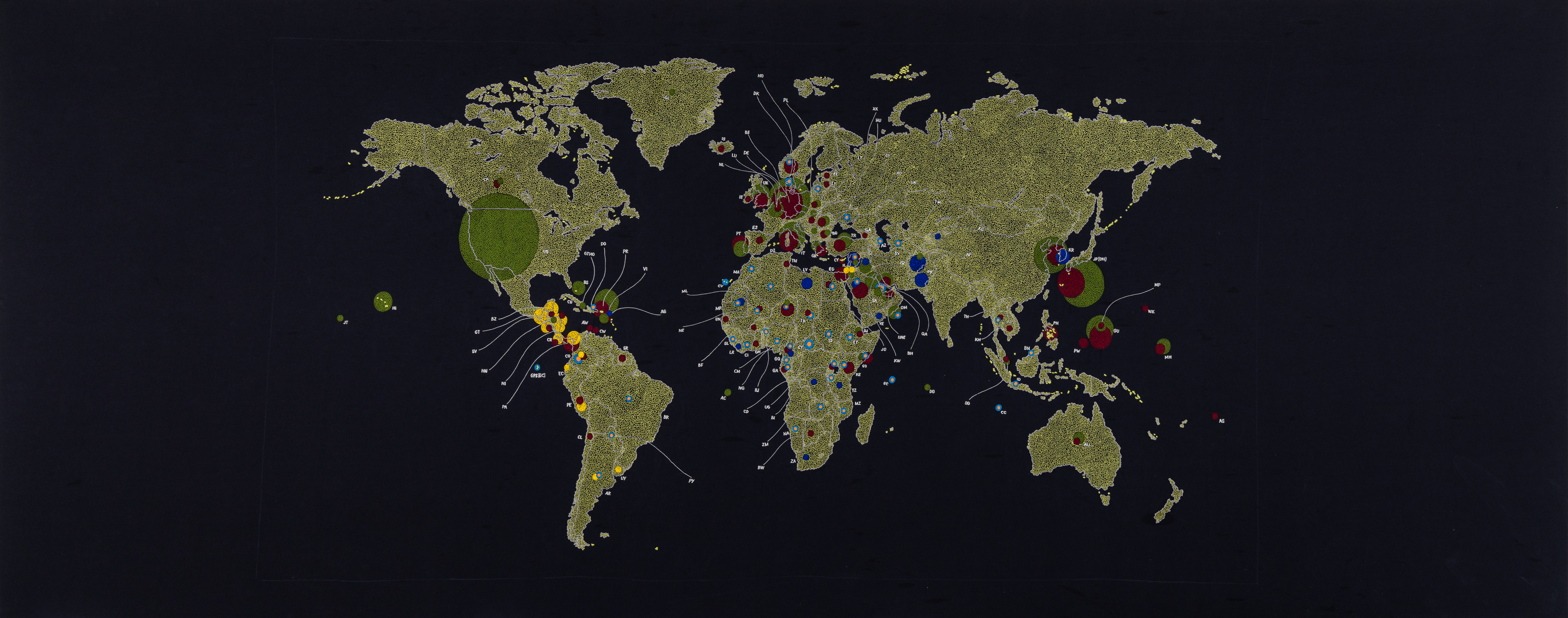
Embroidery on fabric
Size Varies
140 x 350 cm, 39 x 68 cm
The work USM GLOBAL commissioned by PAFA maps the U.S. military global footprint, with the location and number of their facilities in 125 countries and colonies. There is an accompanying website that has interactive maps and archives Tiffany Chung’s research materials for this mapping project, which puts in focus several regions including countries in Sub-Saharan Africa, Pacific.
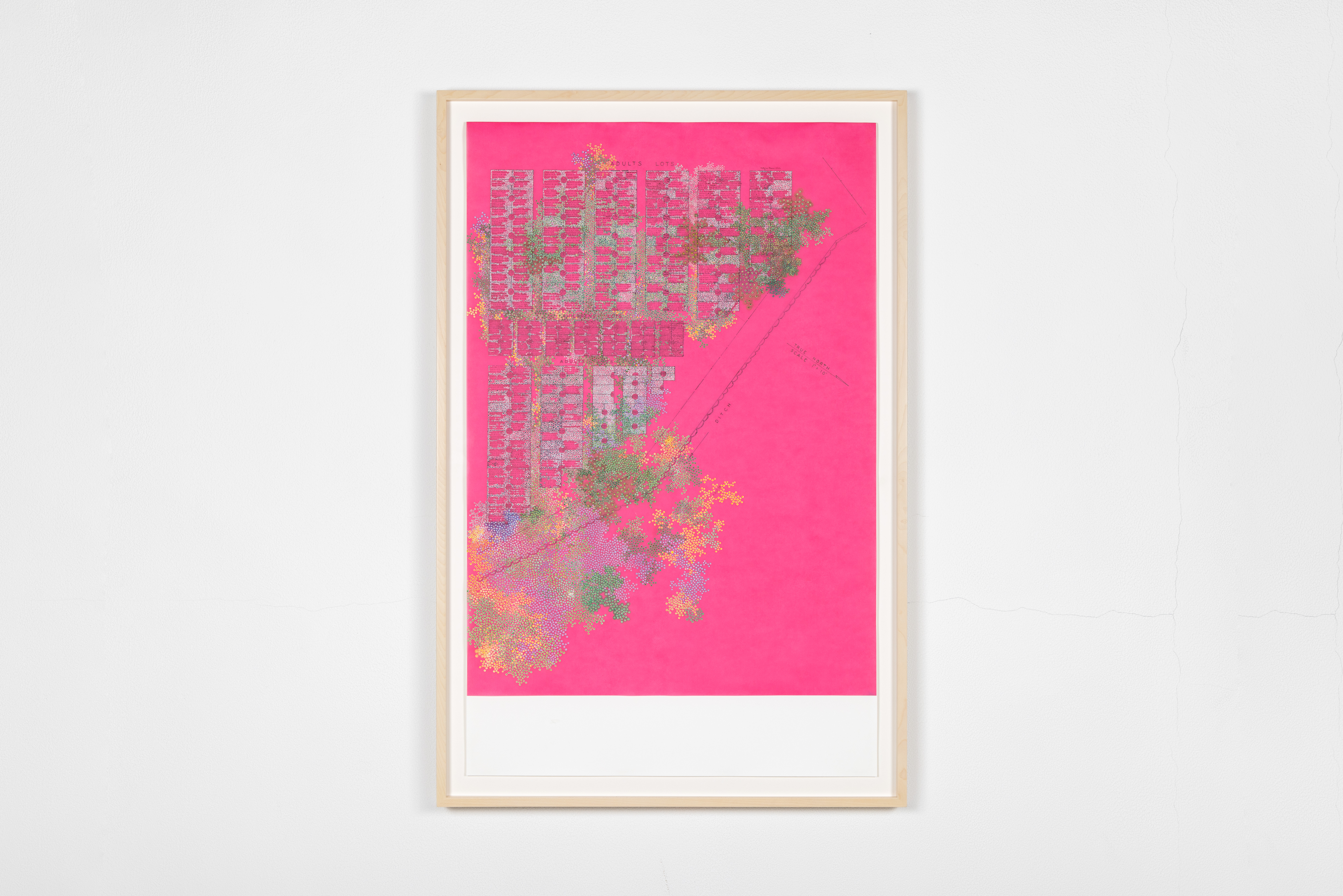
Acrylic, ink, and oil on vellum and paper
Unframed: 102 x 64 cm; Framed: 111 x 73 cm
The drawing From Faraway Lands to Dust We Return marks the cemetery plots of the forgotten Ewa Plantation Cemetery in O’ahu, where many of the deceased migrant workers were buried—referencing Hawai’i as a traumatic site of memory: transpacific migration, plantation labor, economic expansion, and military imperialism.
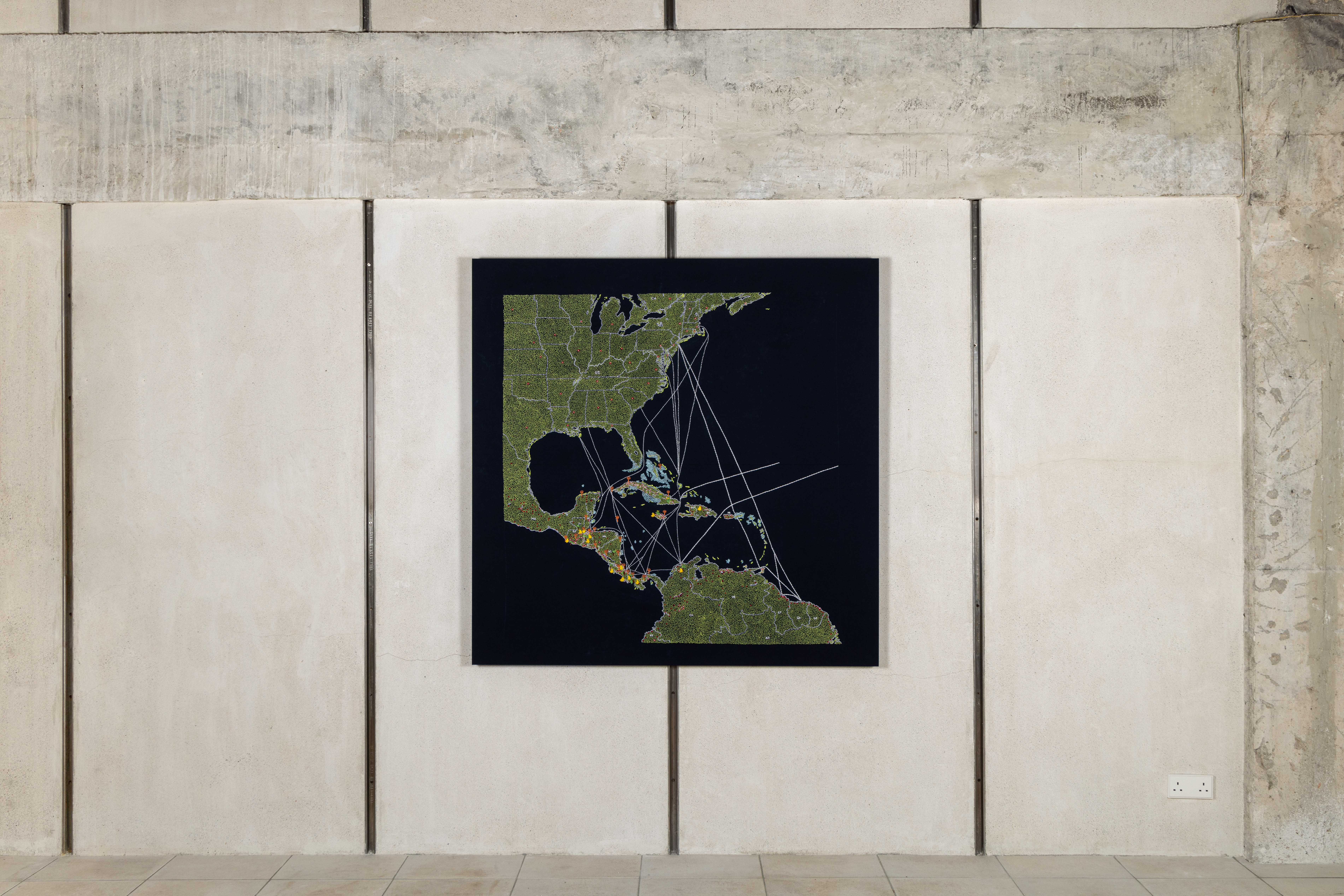
Embroidery on fabric
139 x 139 cm
In the book Nothing Ever Dies, Viet Thanh Nguyen quotes Martin Luther King Jr. saying, “the problem of racism, the problem of economic exploitation, and the problem of war are all tied together.” Tiffany Chung has sought to understand war by tracing her father’s journey, who was captured as a POW in Laos and kept in North Vietnam’s prison camps for 14 years. In this quest, Chung comes across the intertwinement of the United States’ commercial interests and its Cold War policy in places like Guatemala, exemplified in the embroidery El Pulpo: UFCo’s Great White Fleet Routes and Properties in Central America & the Caribbean. Foregrounding Hawai’i as another case of economic interest shaping foreign policy. She revisits the 1875 Reciprocity Treaty between the U.S. and Hawai’I, a free trade agreement that guaranteed a tariff-free market of the U.S. for Hawaiian sugar in return for the U.S. special economic privileges, which ratified in 1887 to include exclusive rights to establish a U.S. Naval base at Pearl Harbor in O’ahu.

Commissioned by Sharjah Art Foundation.
Installation view of “In the Heart of Another Country: The
Diasporic Imagination Rises”, Al Mureijah Art Spaces, Sharjah, 2023.
Image courtesy of Sharjah Art Foundation. Photo: Shafeek Nalakath Kareem
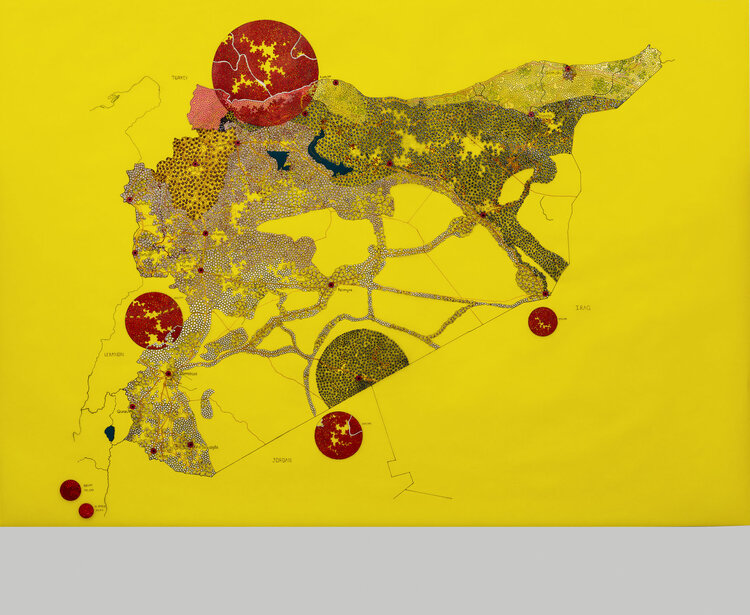
“The Syria Project: Tracking Conflict and Displacement”, 2015-ongoing.
76 x 93 cm
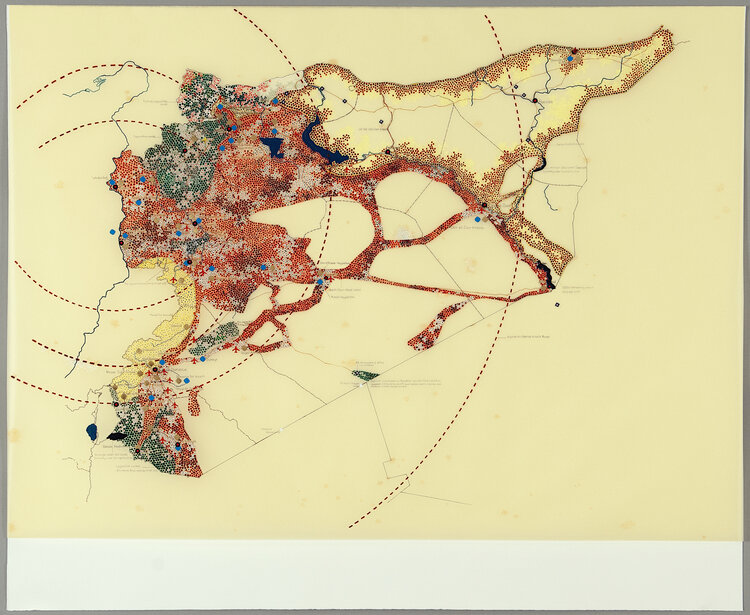
“The Syria Project: Tracking Conflict and Displacement”, 2015-ongoing.
76 x 93 cm

Watercolor on paper
113.5 x 924.5 cm
(This painting is part of the Vietnam Exodus History Learning Project, carried out in collaboration with Hồ Hưng and Huỳnh Quốc Bảo).
Image courtesy of the artist.
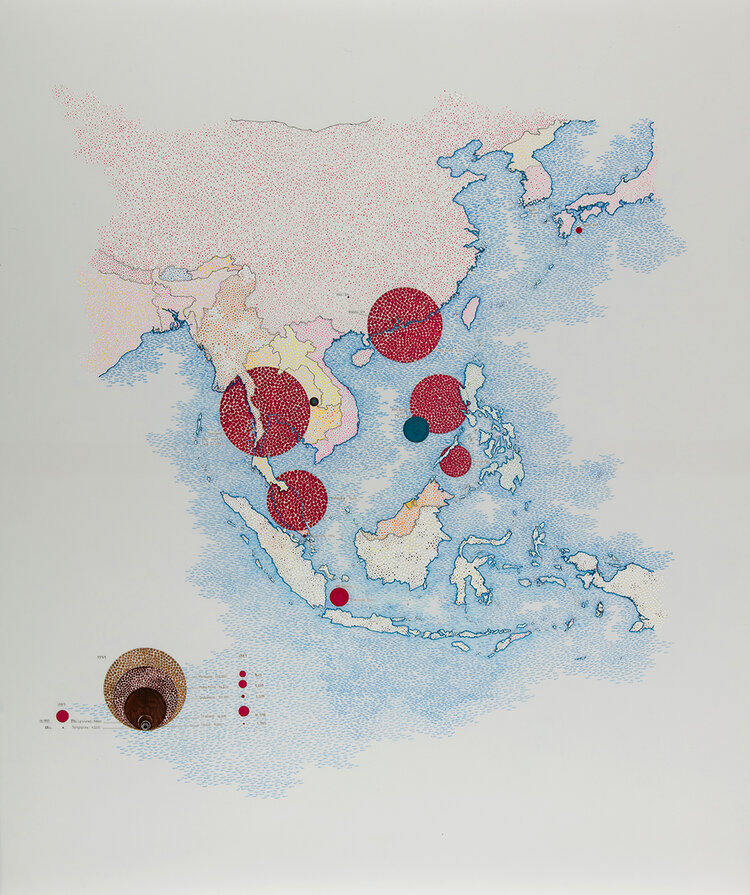
Acrylic, ink, oil on vellum & paper
110 x 92 cm
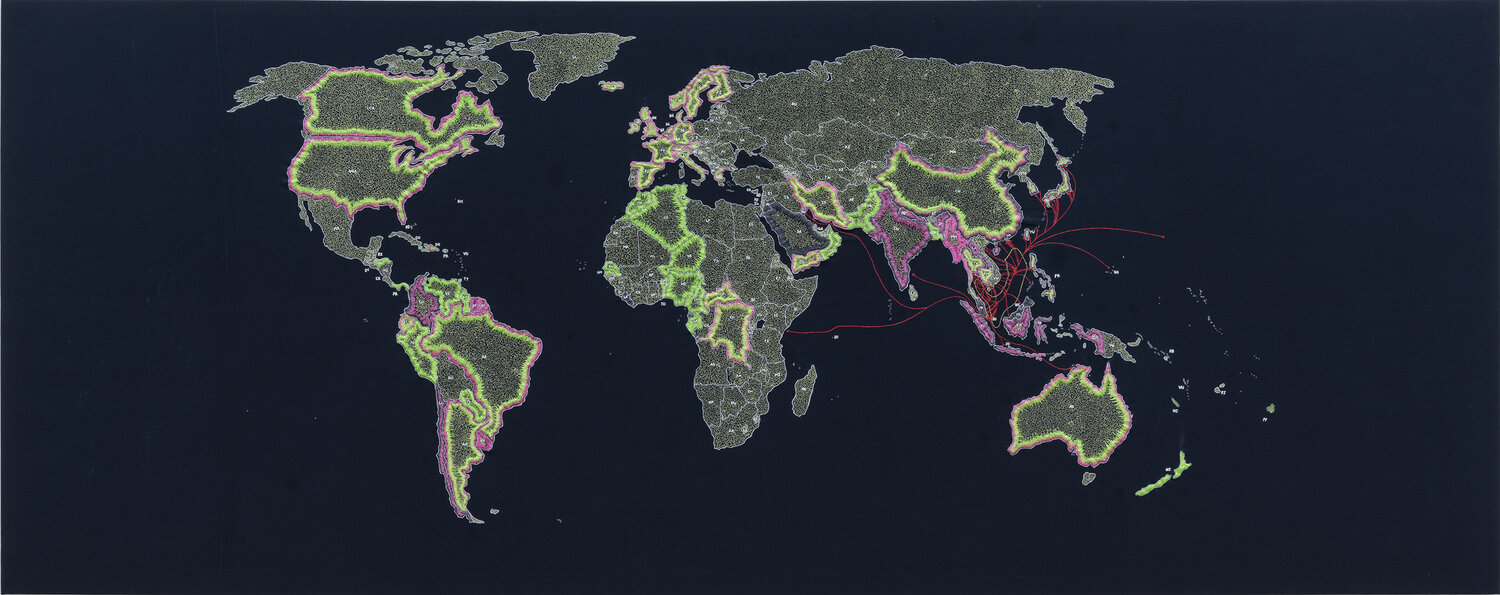
Embroidery on fabric
140 x 348 cm
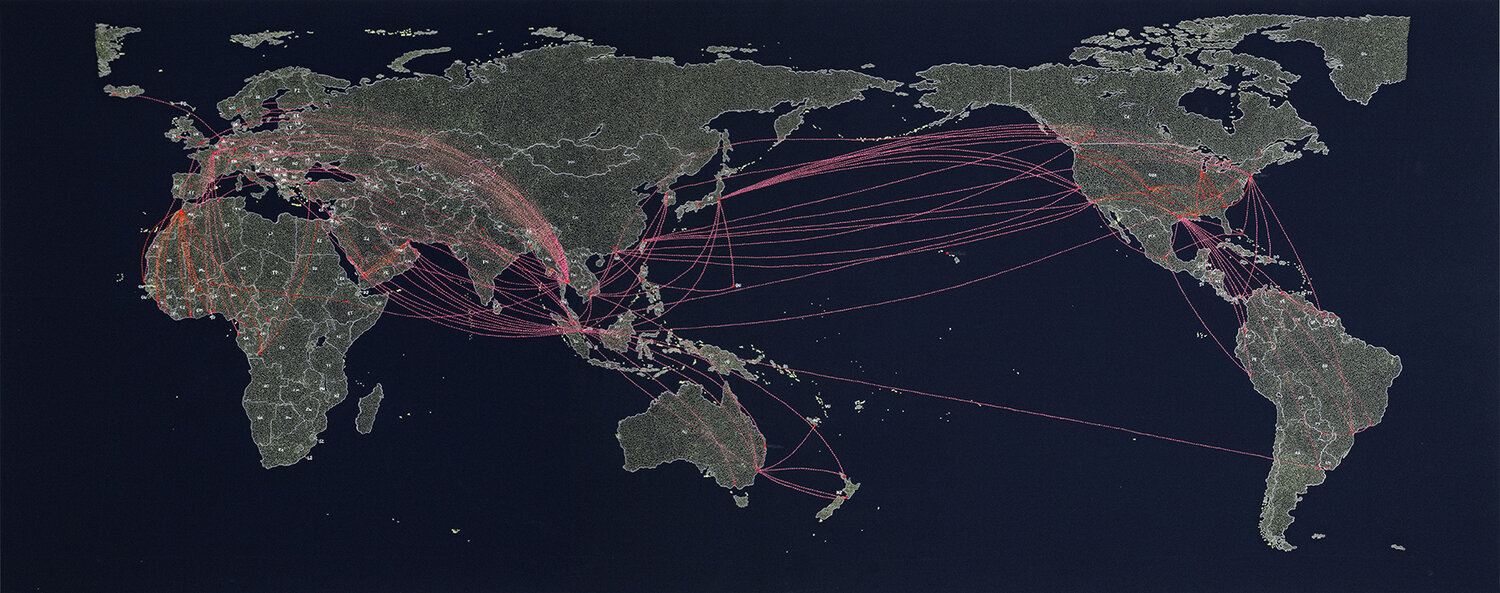
Embroidery on fabric
140 x 350 cm
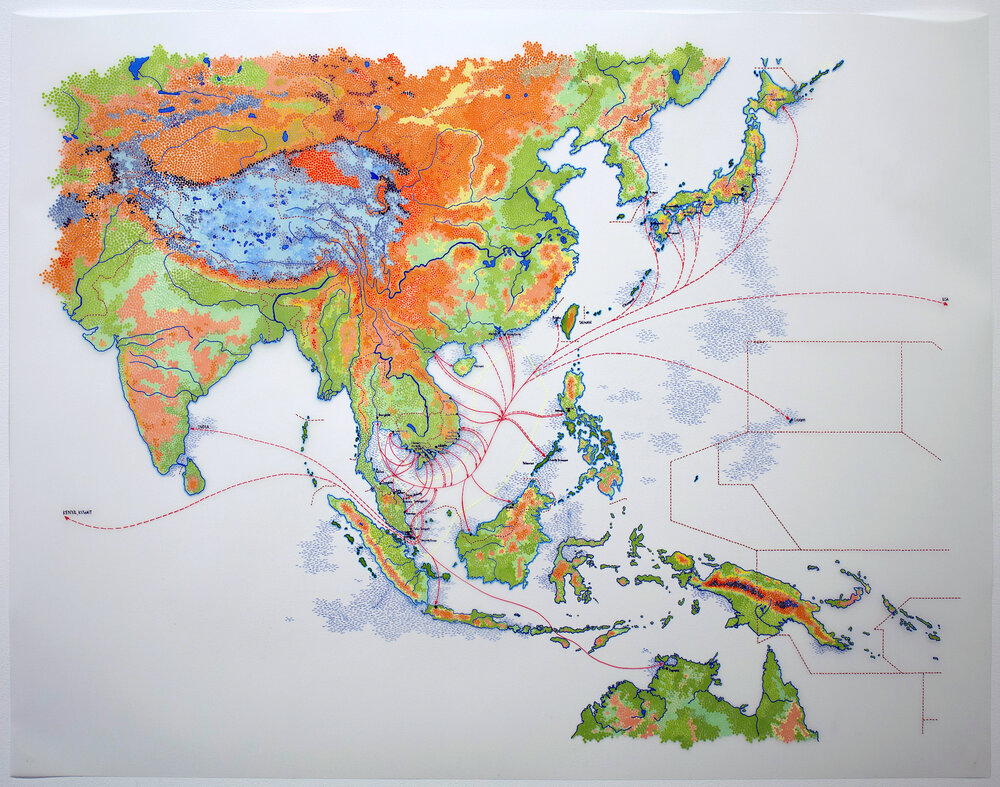
Acrylic, ink, oil on drafting film
92 x 119 cm
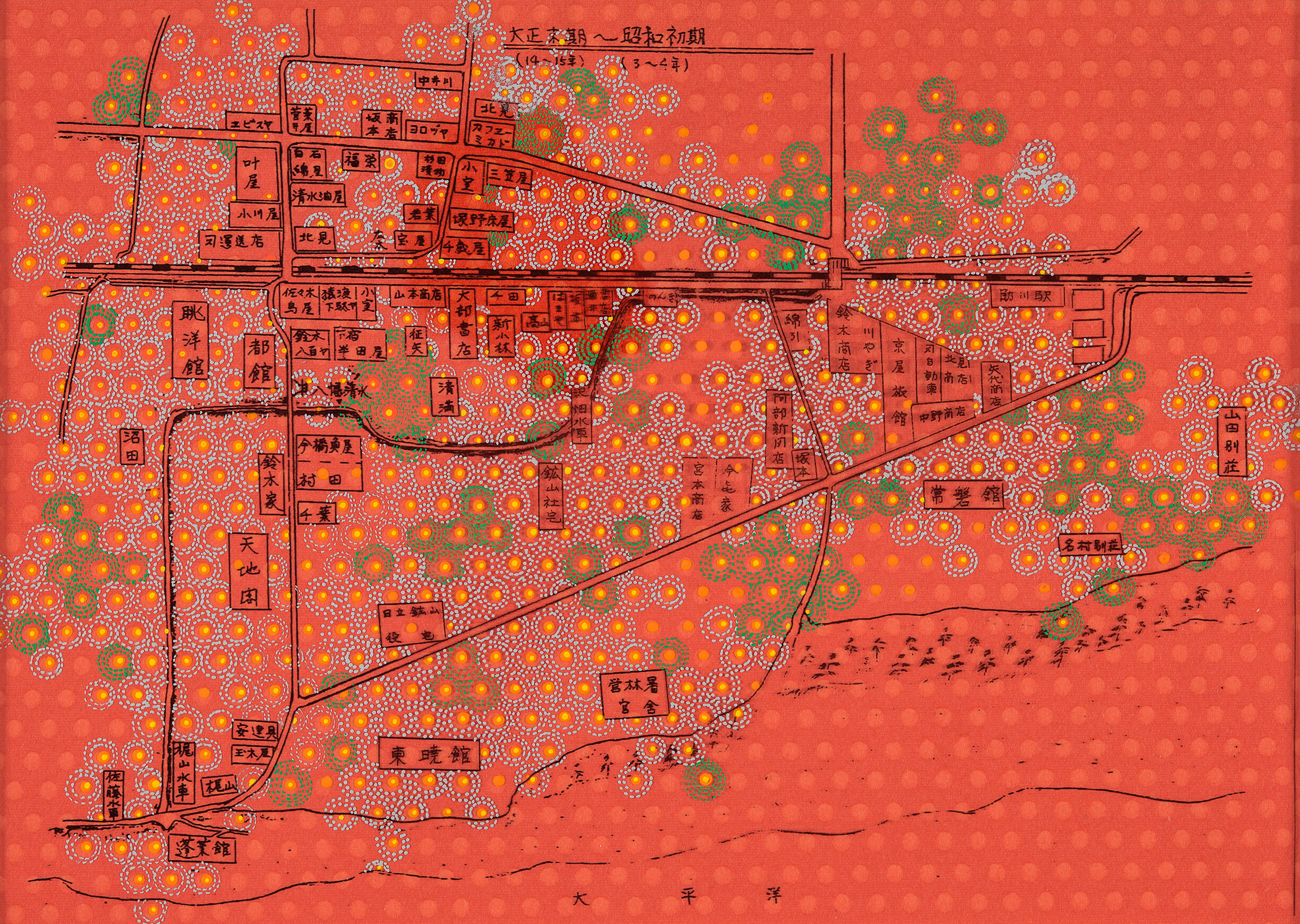
Acrylic, ink, oil on acetate and paper
21 x 29.5 cm
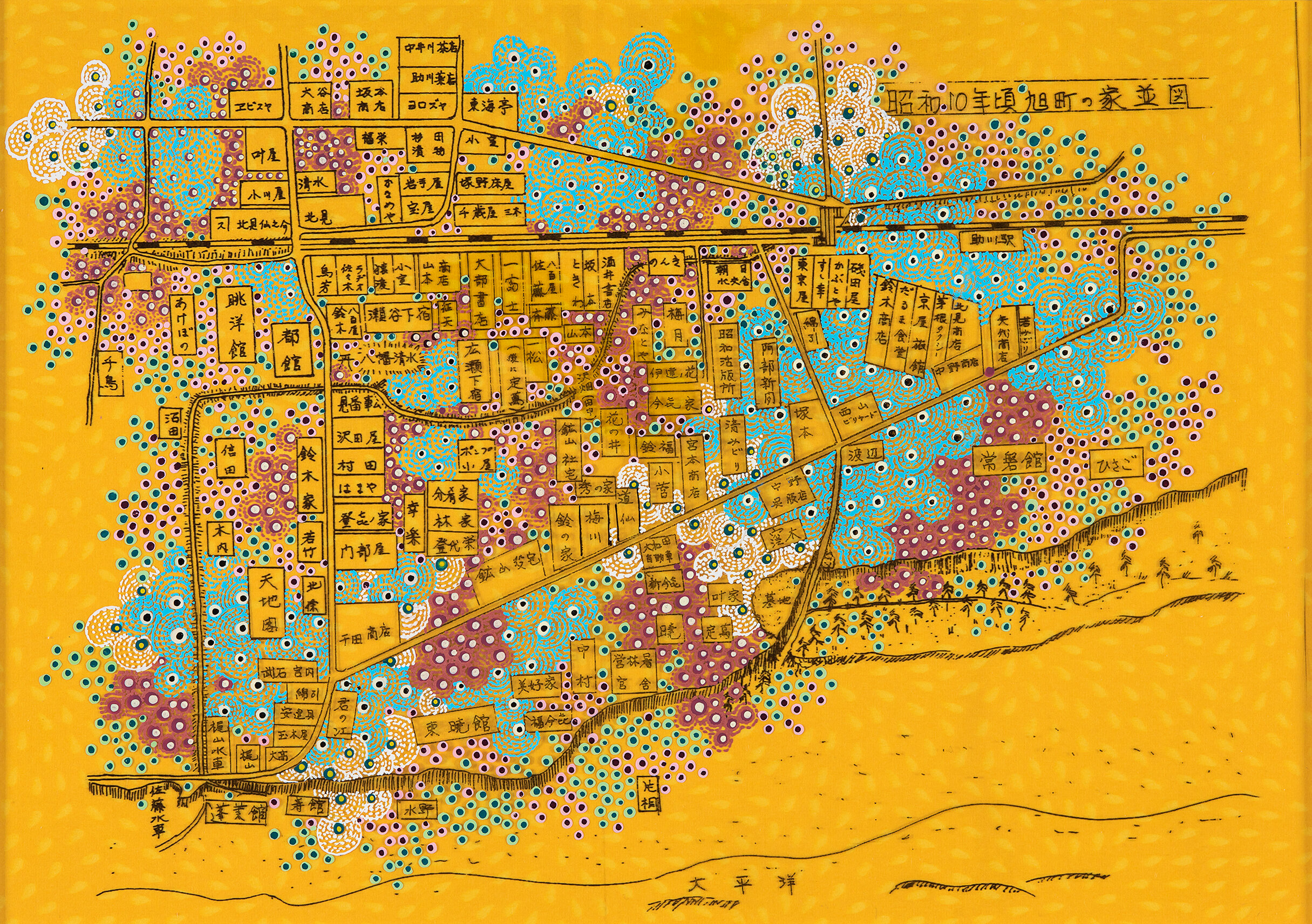
Acrylic, ink, oil on acetate and paper
21 x 29.5 cm
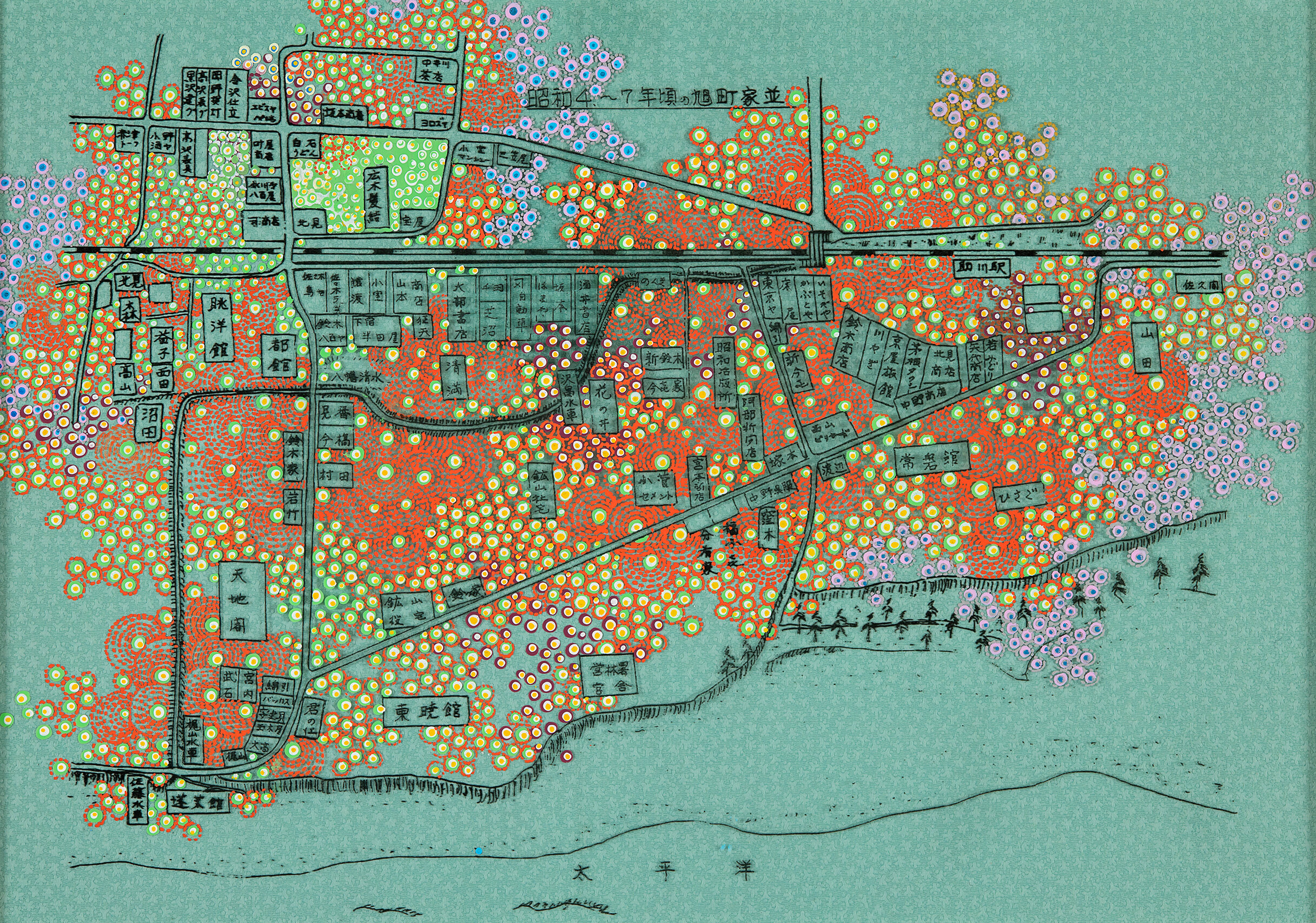
Acrylic, ink, oil on acetate and paper
21 x 29.5 cm
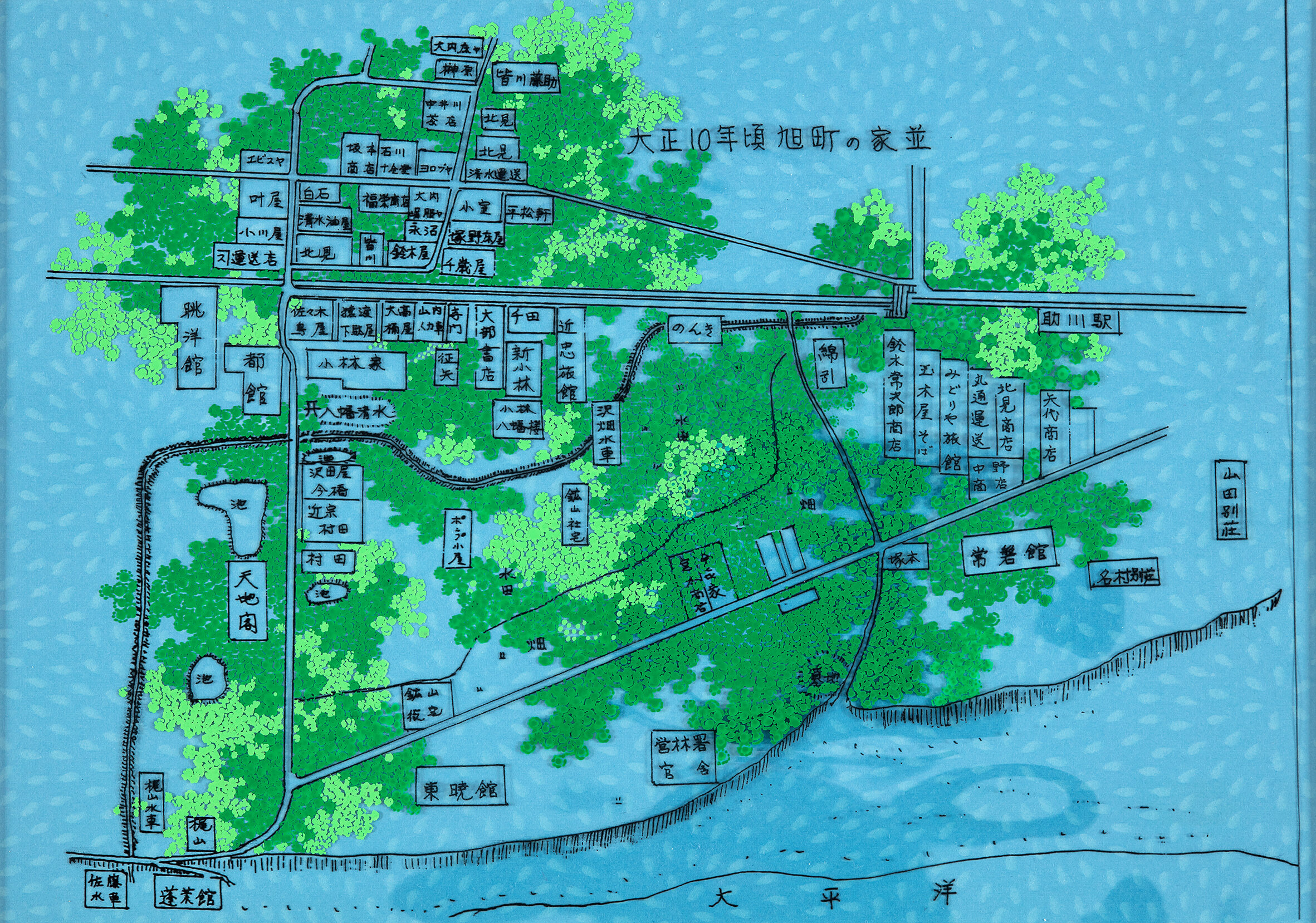
Acrylic, ink, oil on acetate and paper
21 x 29.5 cm
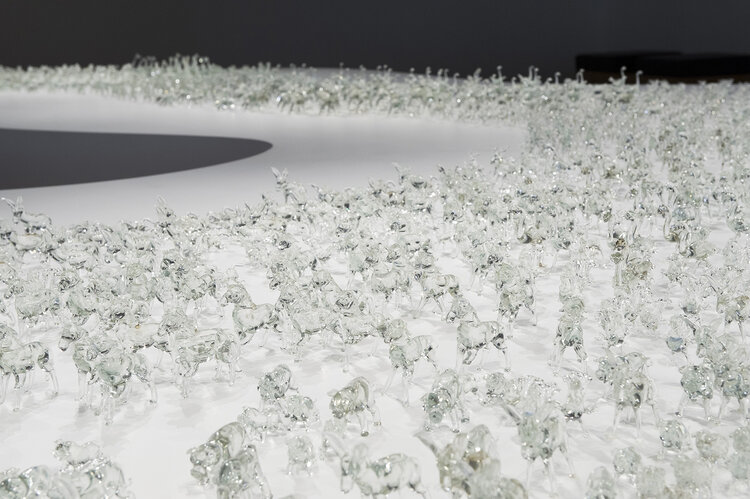
Installation view, ‘South East North West: New Works from the Collection’, San José Museum of Art,
2020.
Image courtesy of the artist.
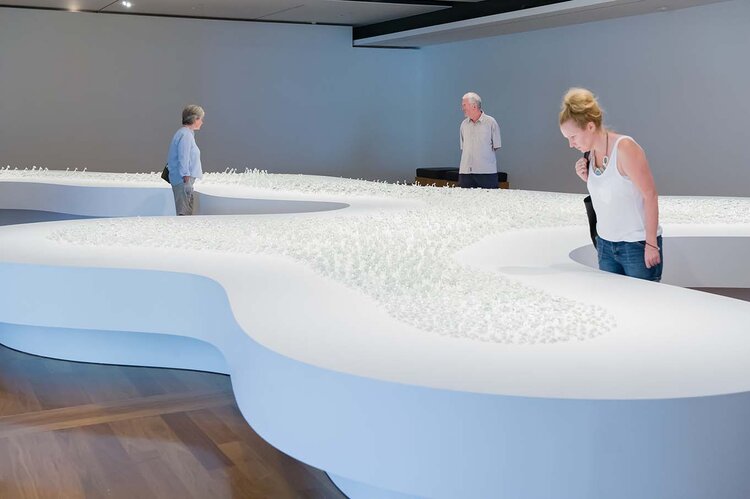
Installation view, roaming with the dawn: snow drifts, rain falls, desert wind blows, 2012. 4,000 hand-formed miniature glass animals, dimension of plinth: L 1,310 x W 700 x H 60 cm; dimensions of glass
animals variable
Commissioned by the 7th Asia Pacific Triennale, Brisbane, 2012
Photograph courtesy of Queensland Art Gallery / Gallery of Modern
Art; Collection of QAG/GOMA, Brisbane, Australia
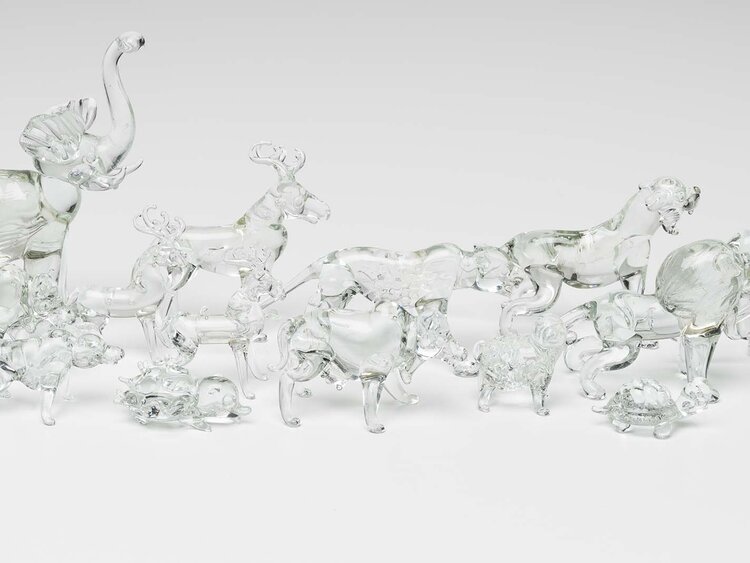
(Detail) roaming with the dawn: snow drifts, rain falls, desert wind blows, 2012. 4,000 hand-formed miniature glass animals, dimension of plinth: L 1,310 x W 700 x H 60 cm; dimensions of glass
animals variable
Commissioned by the 7th Asia Pacific Triennale, Brisbane, 2012
Photograph courtesy of Queensland Art Gallery / Gallery of Modern
Art; Collection of QAG/GOMA, Brisbane, Australia